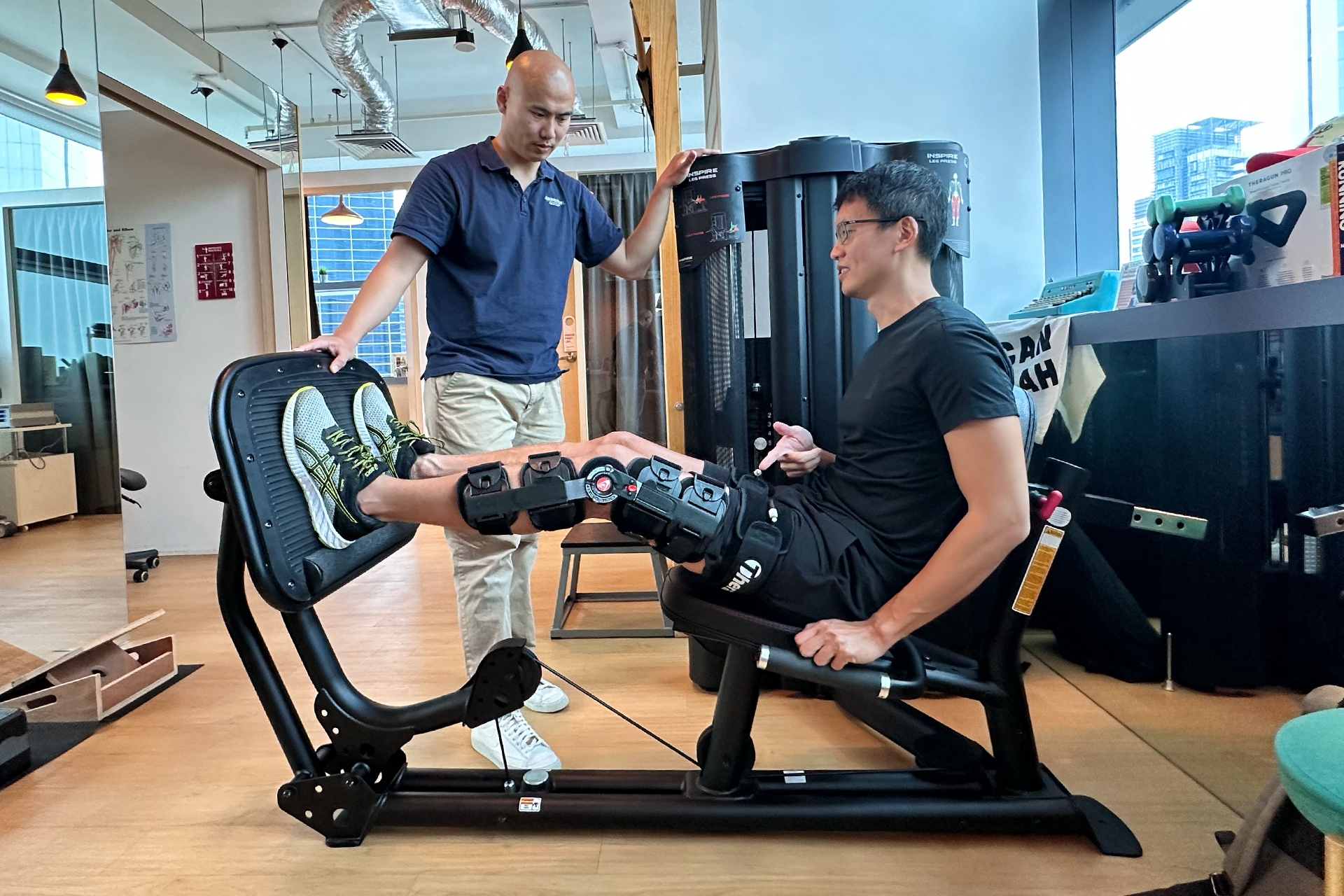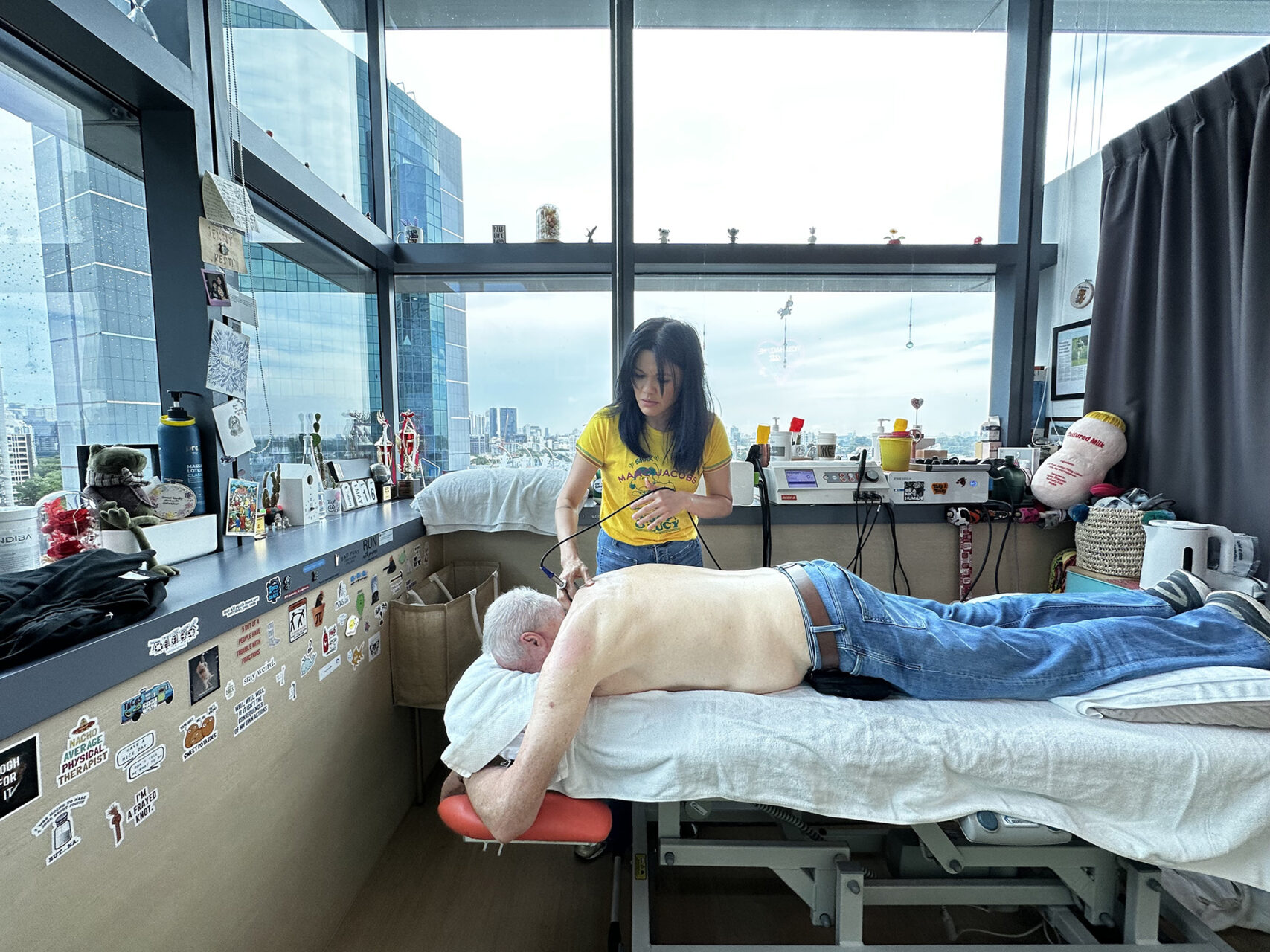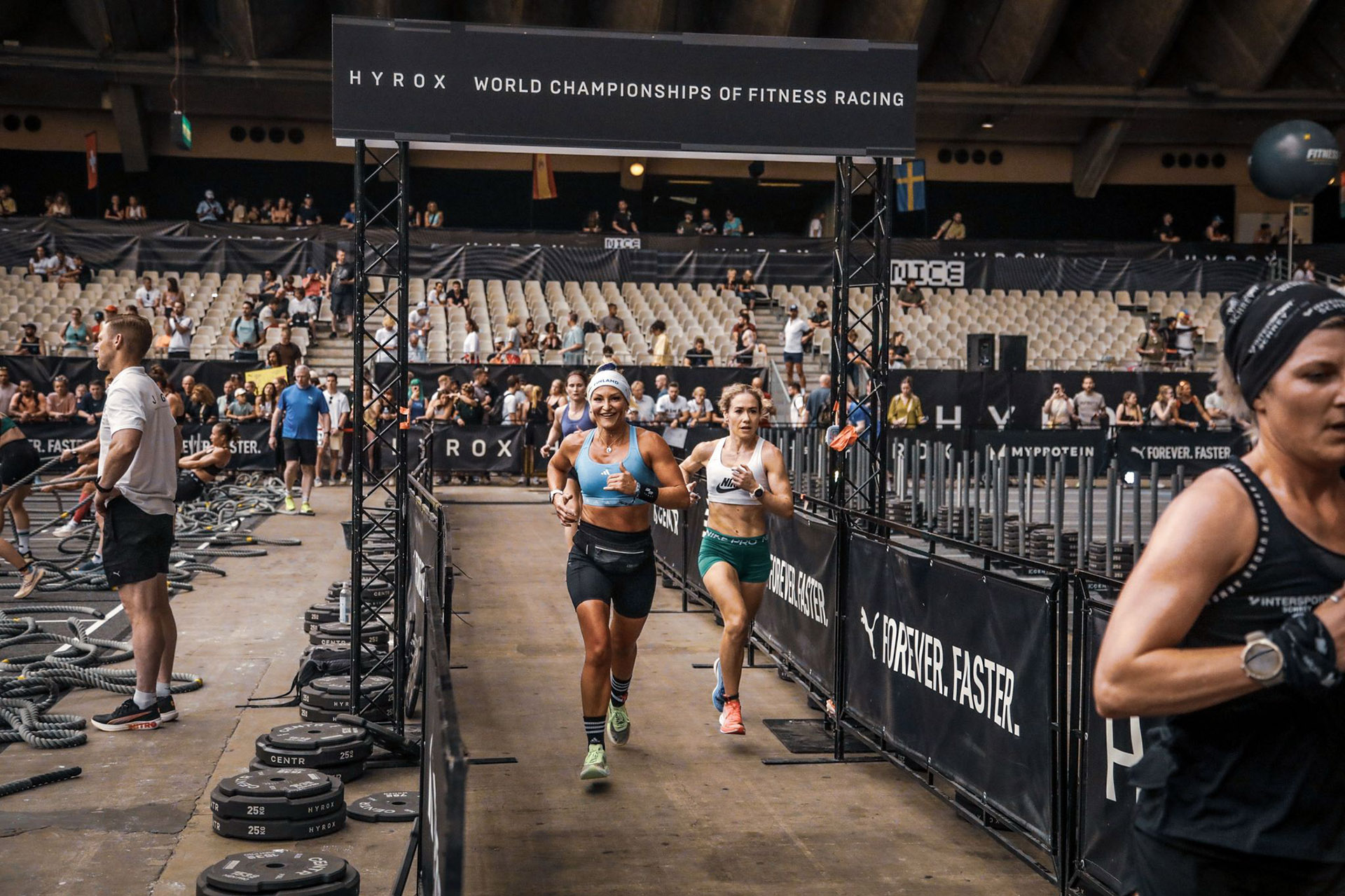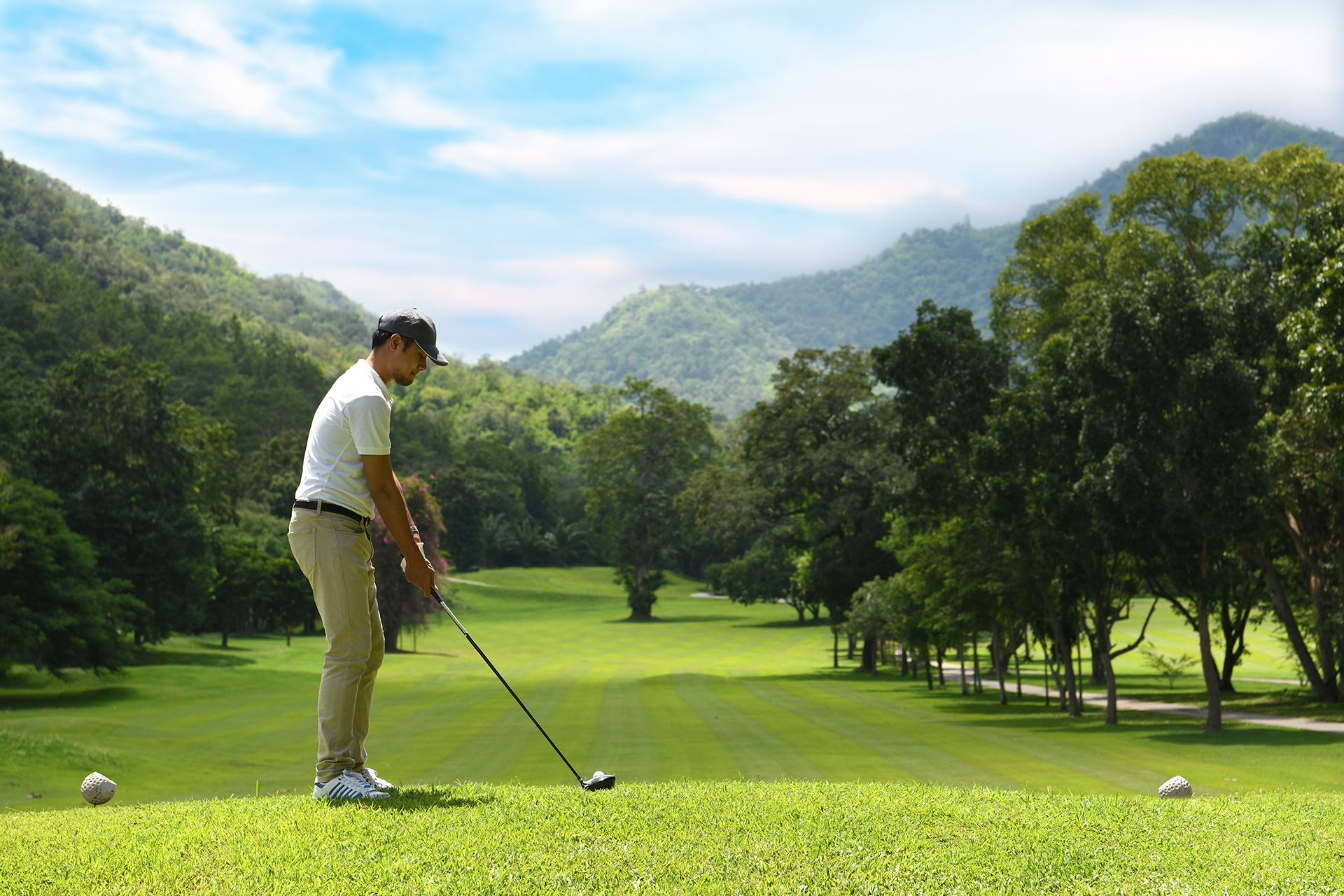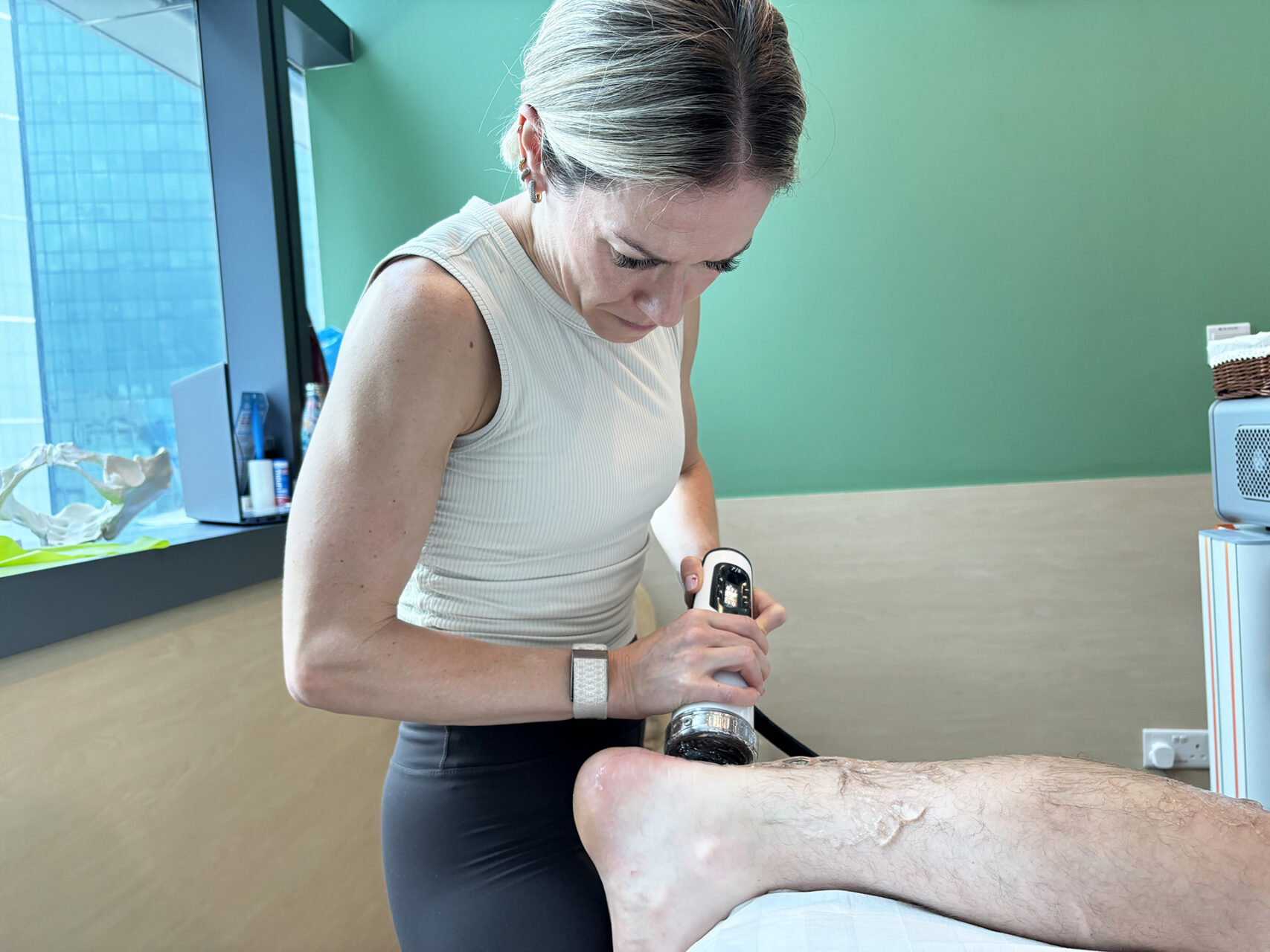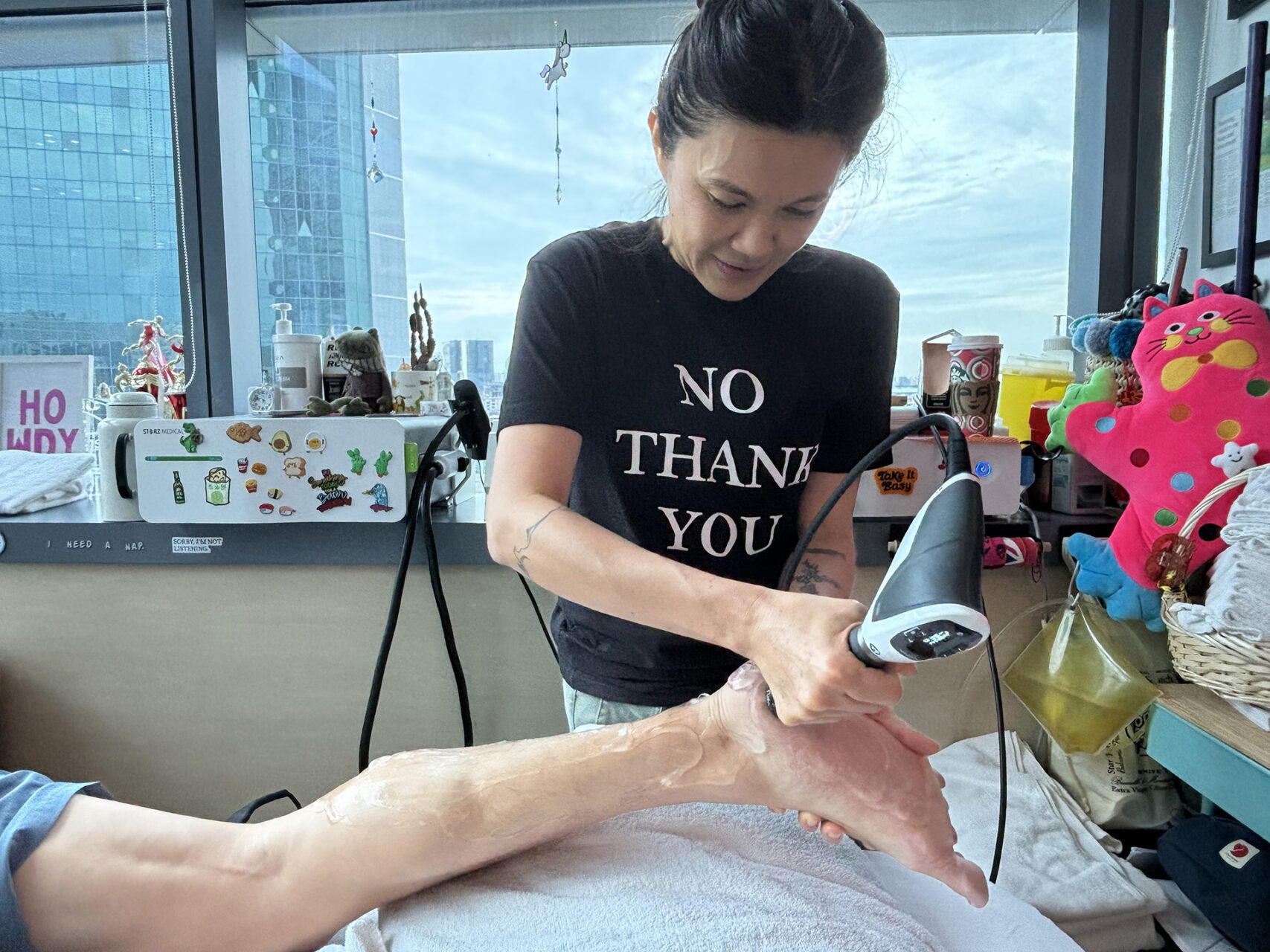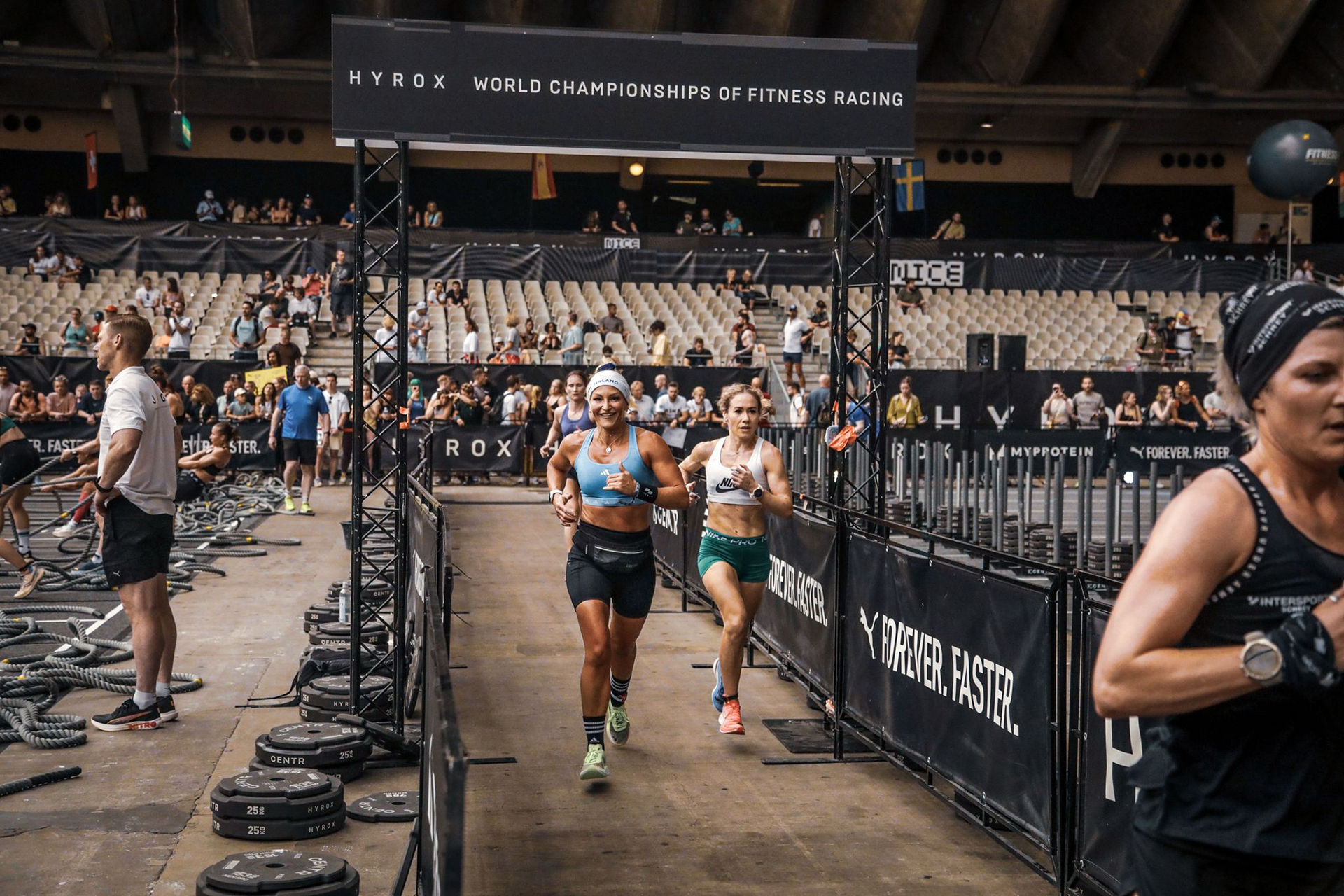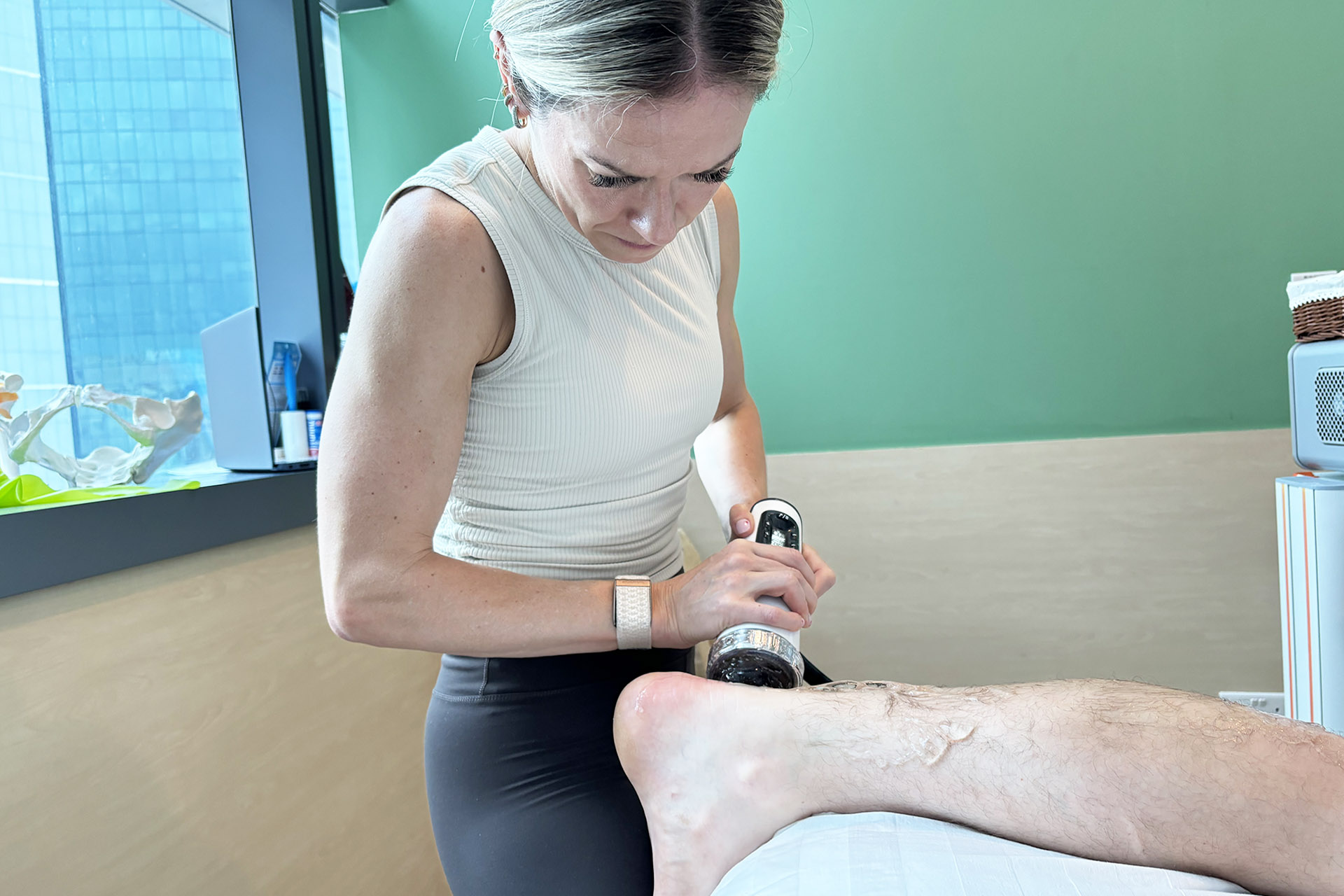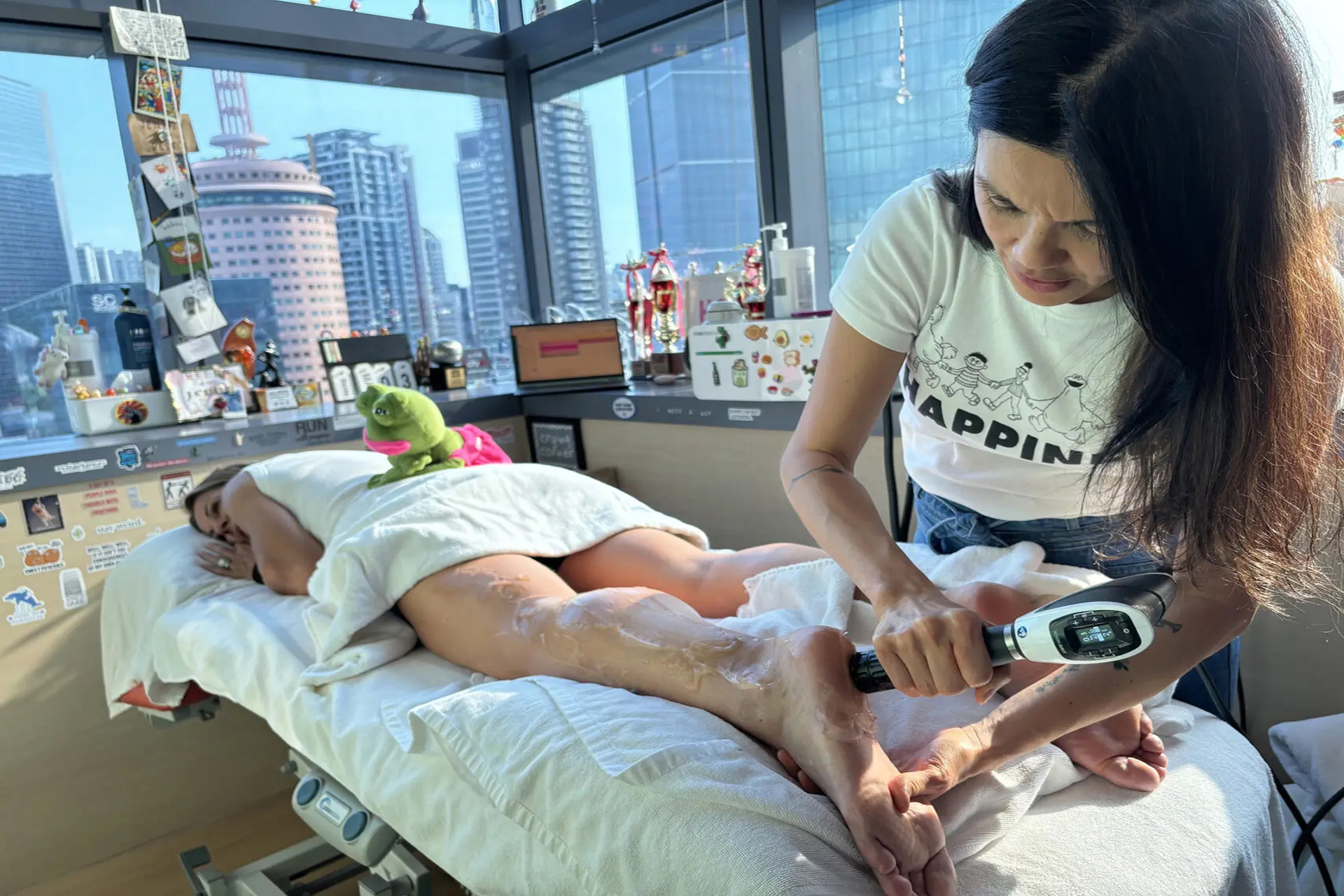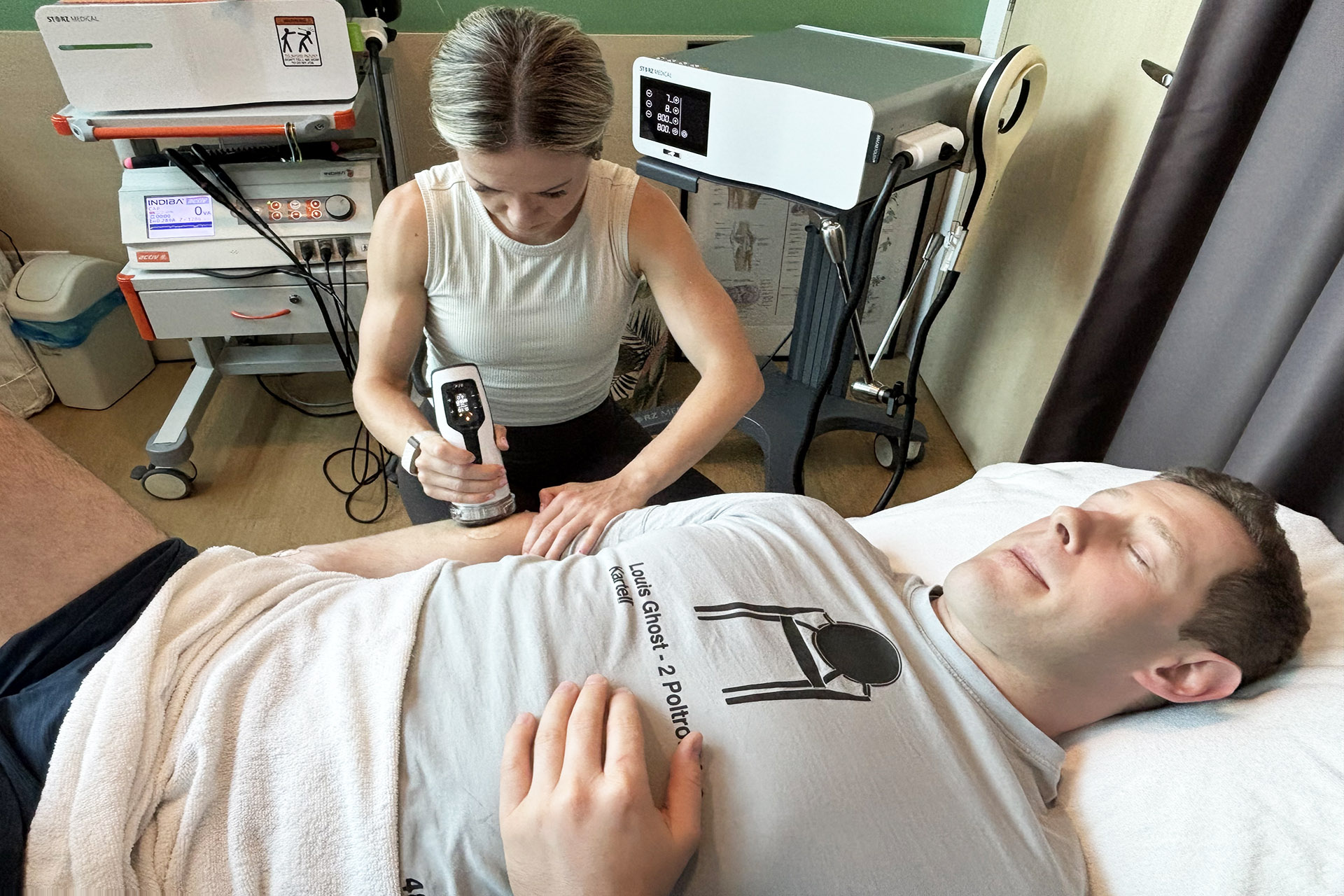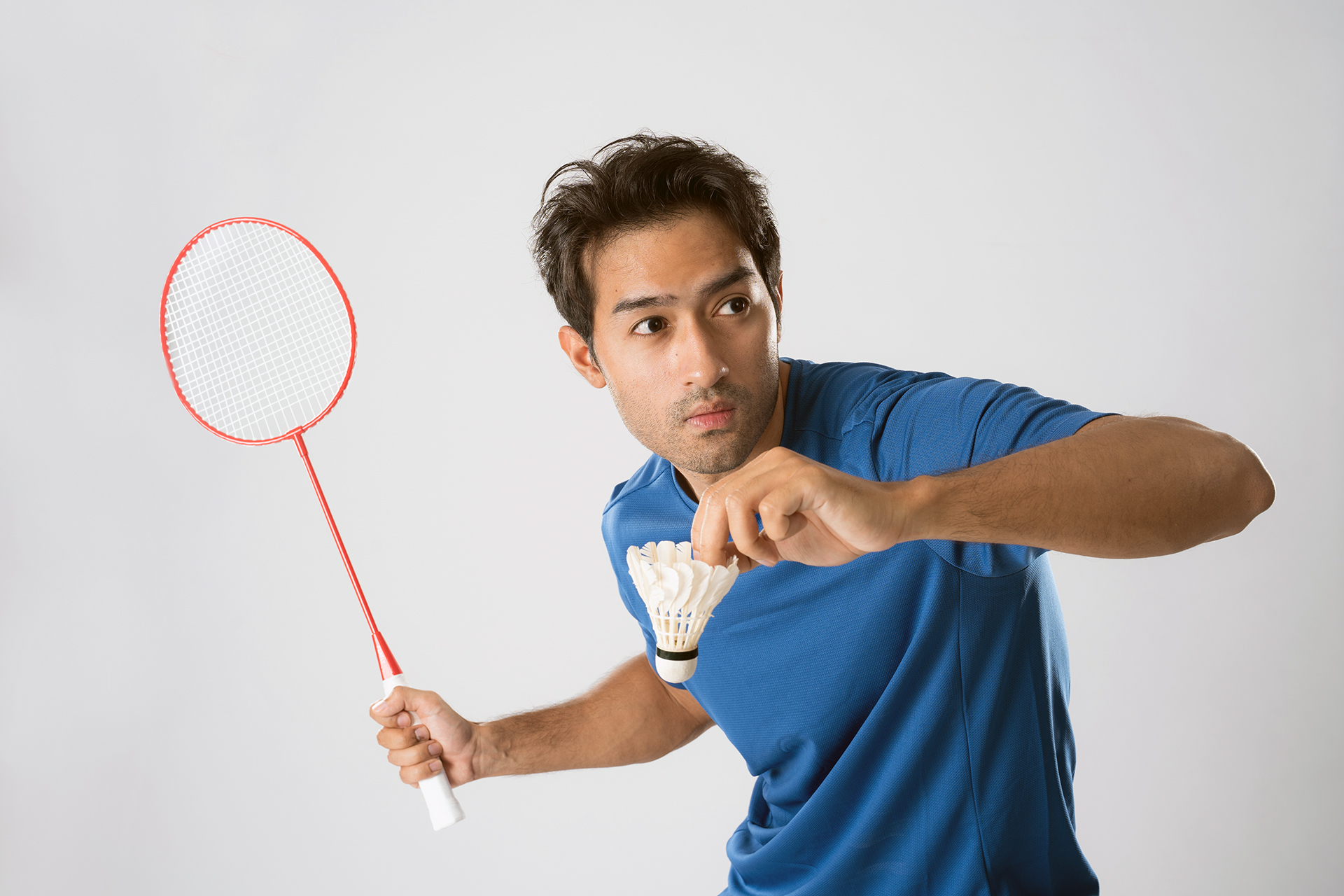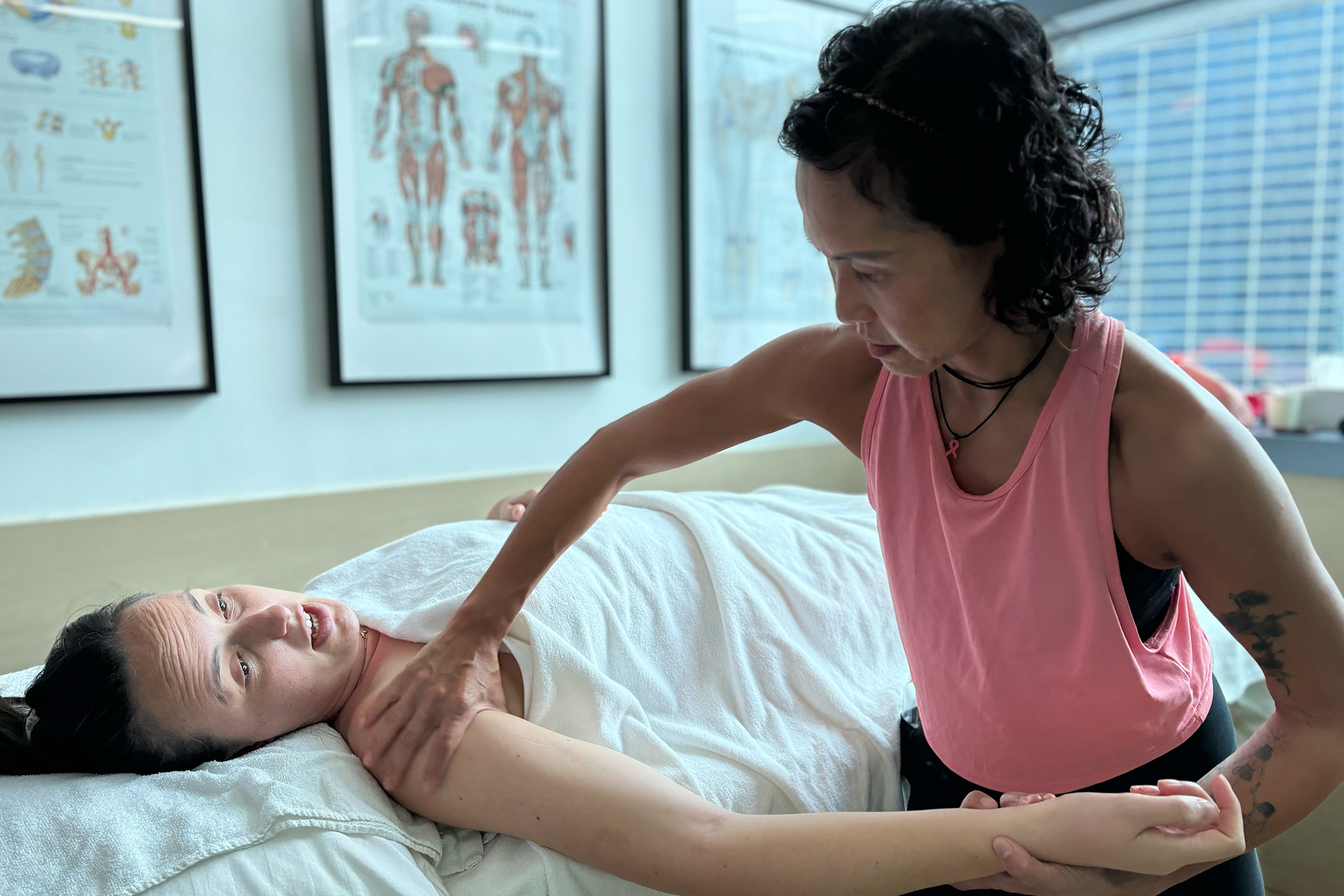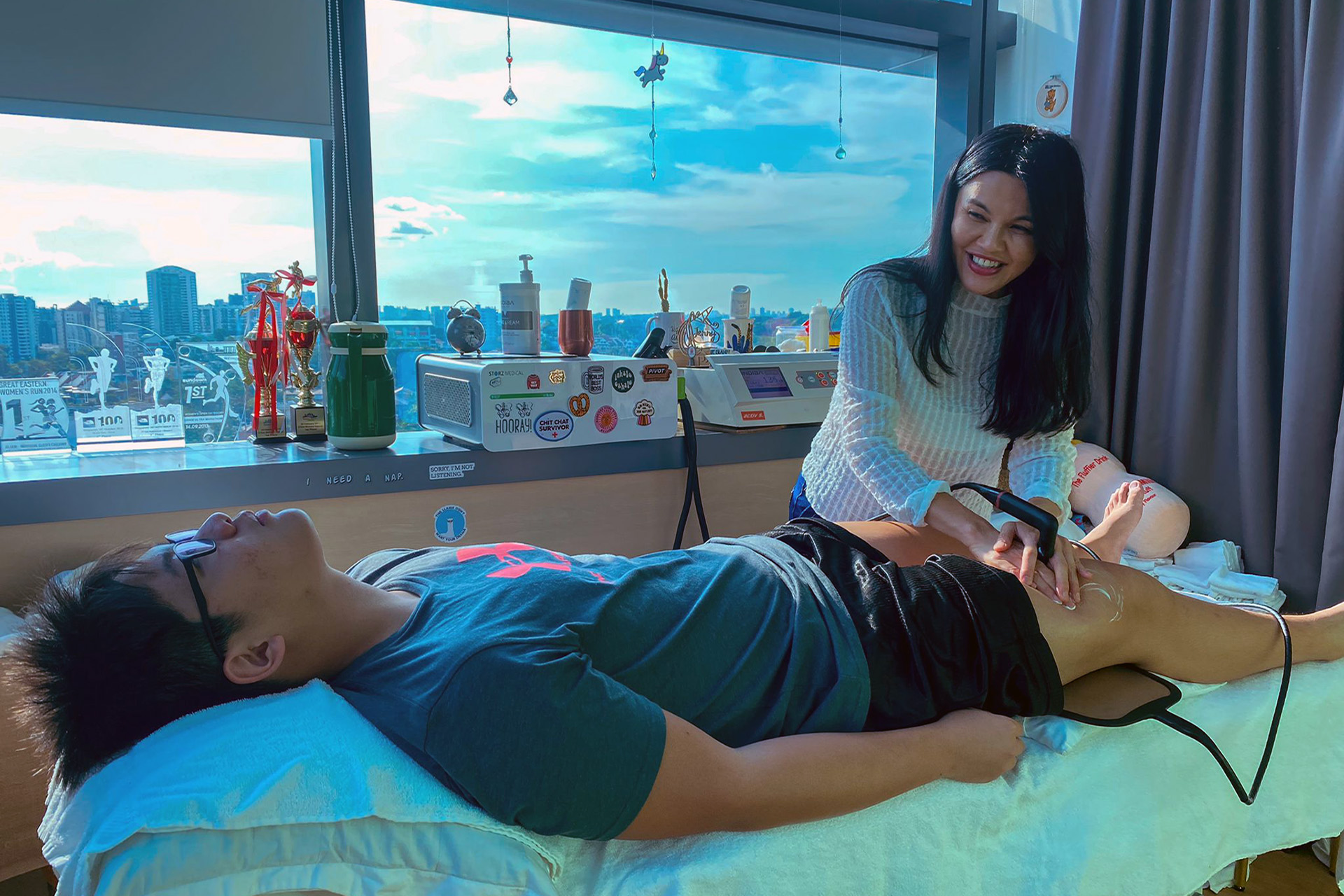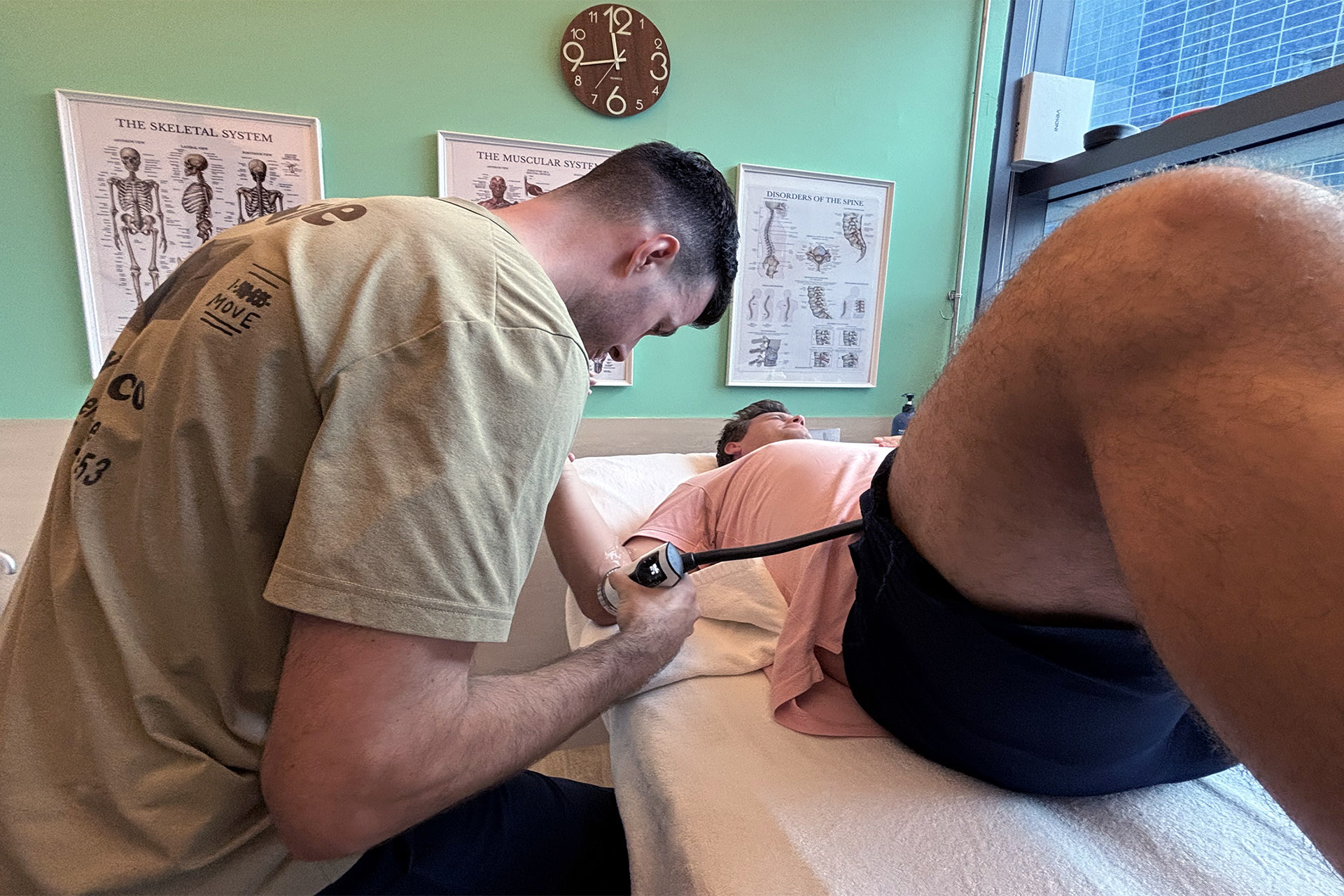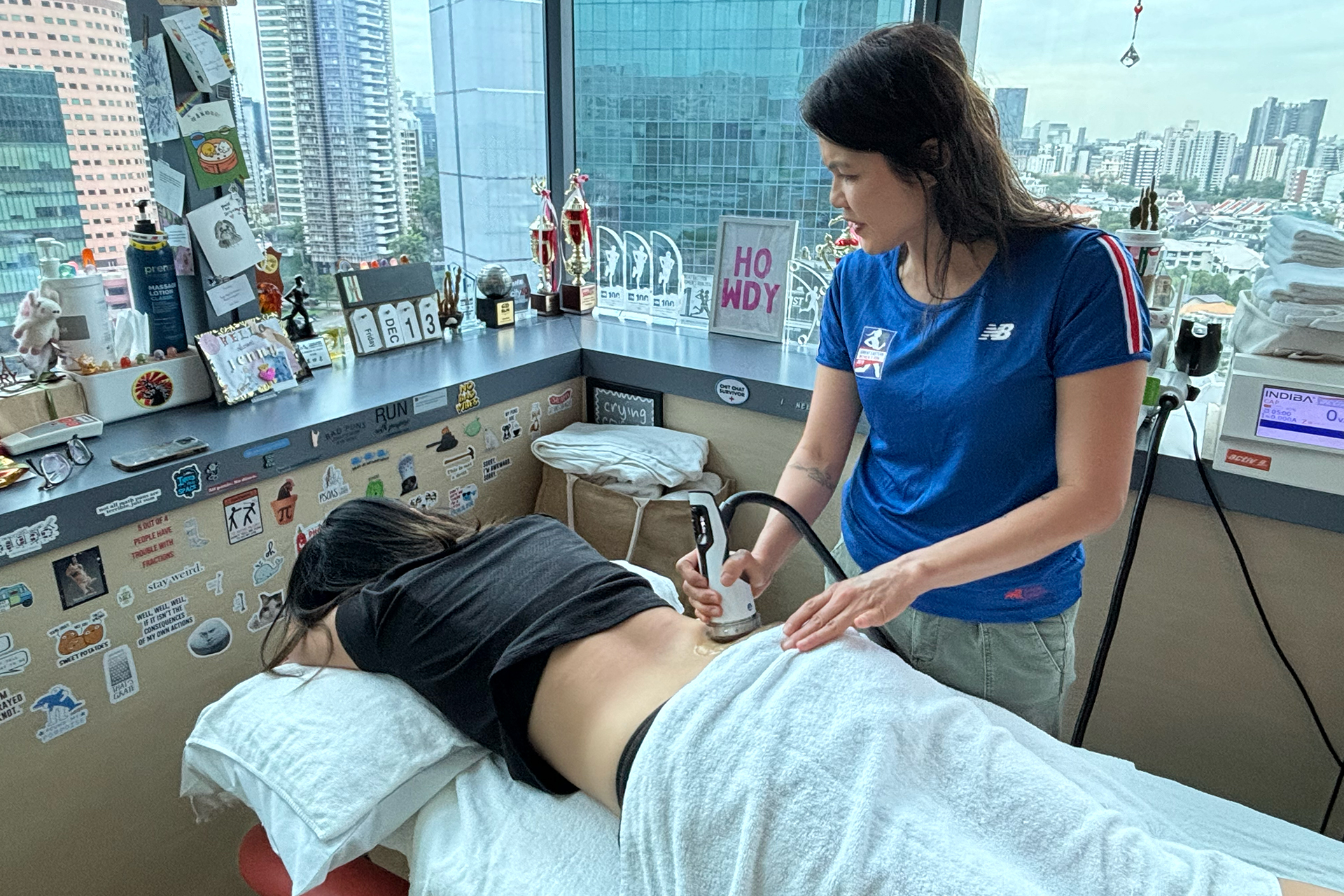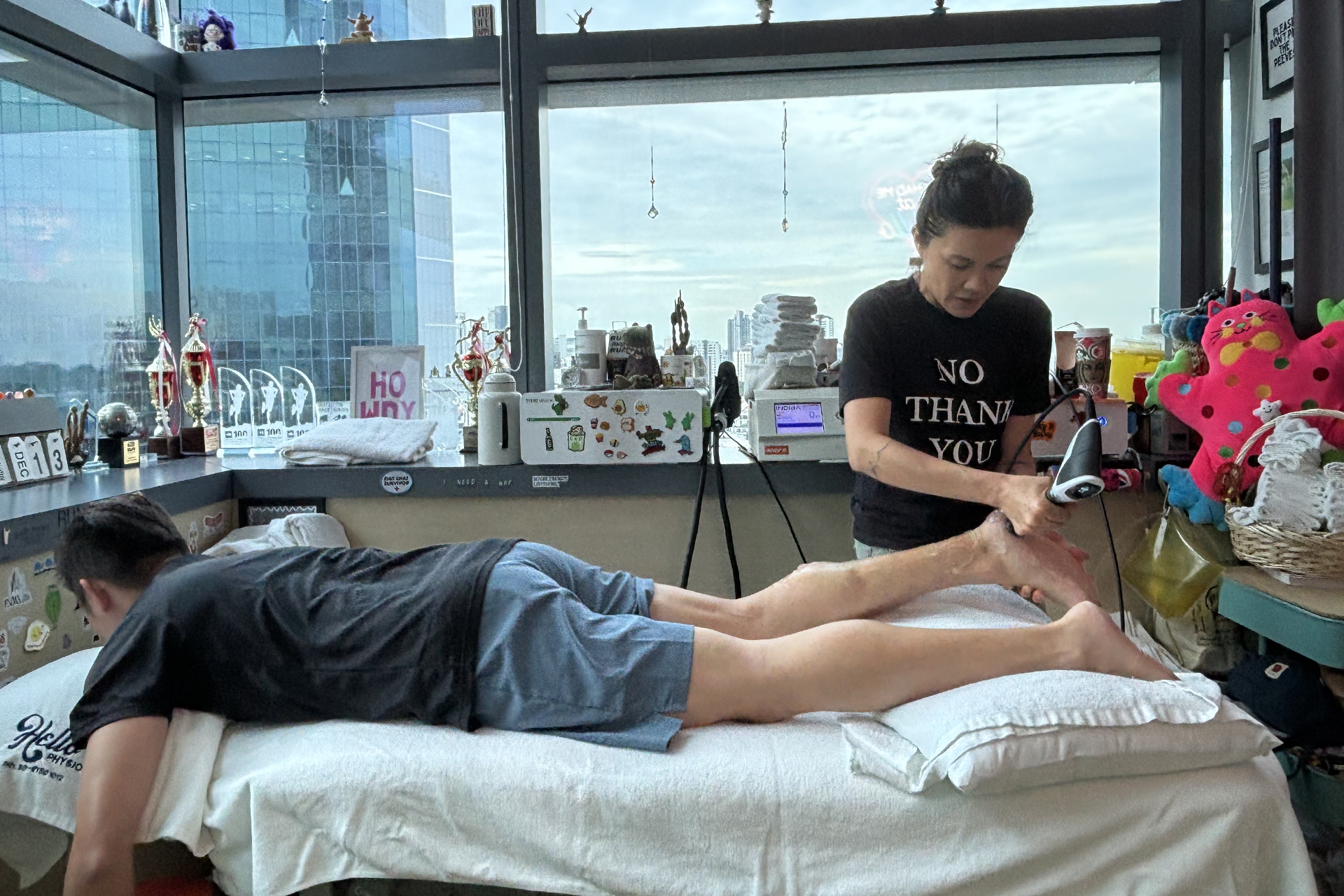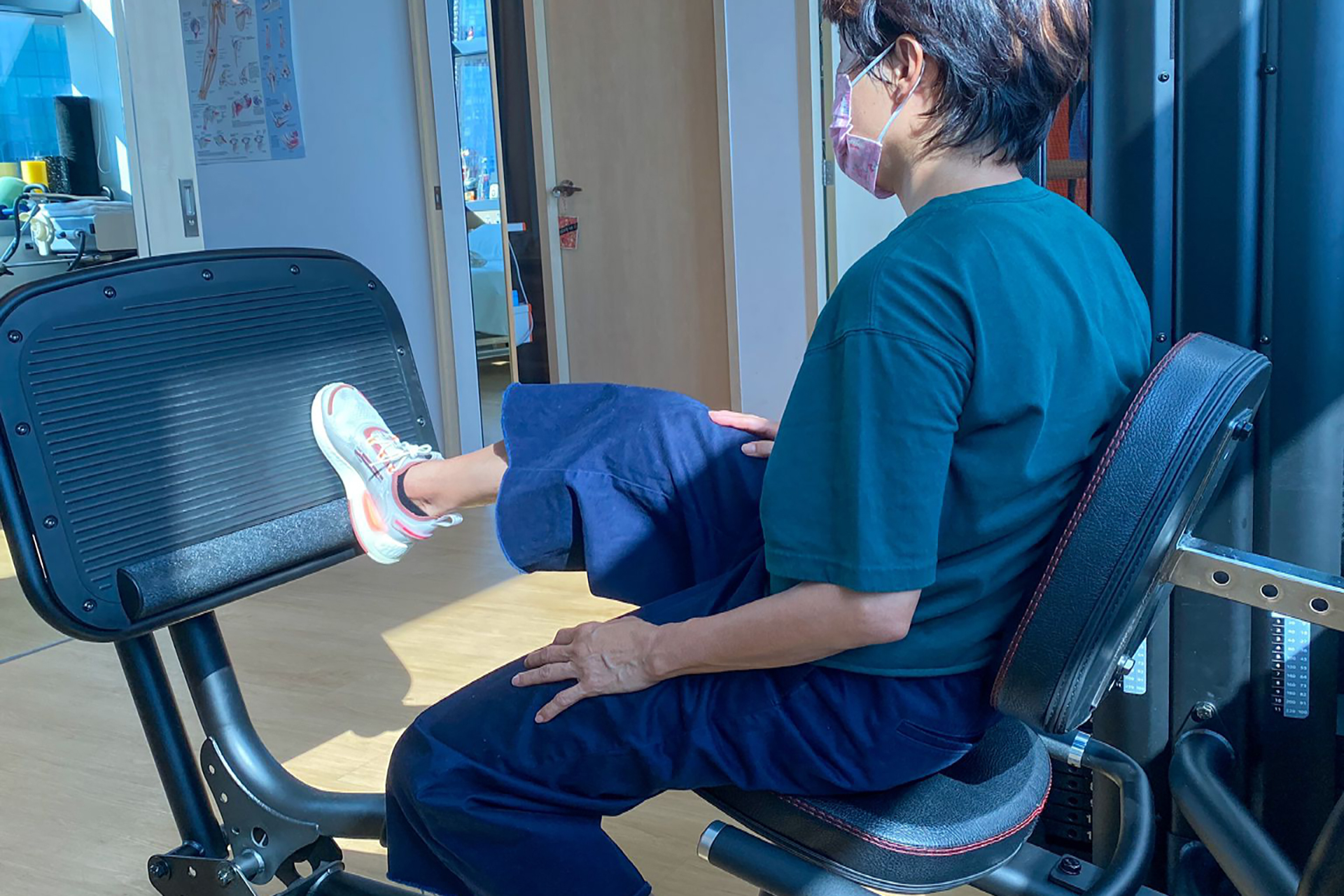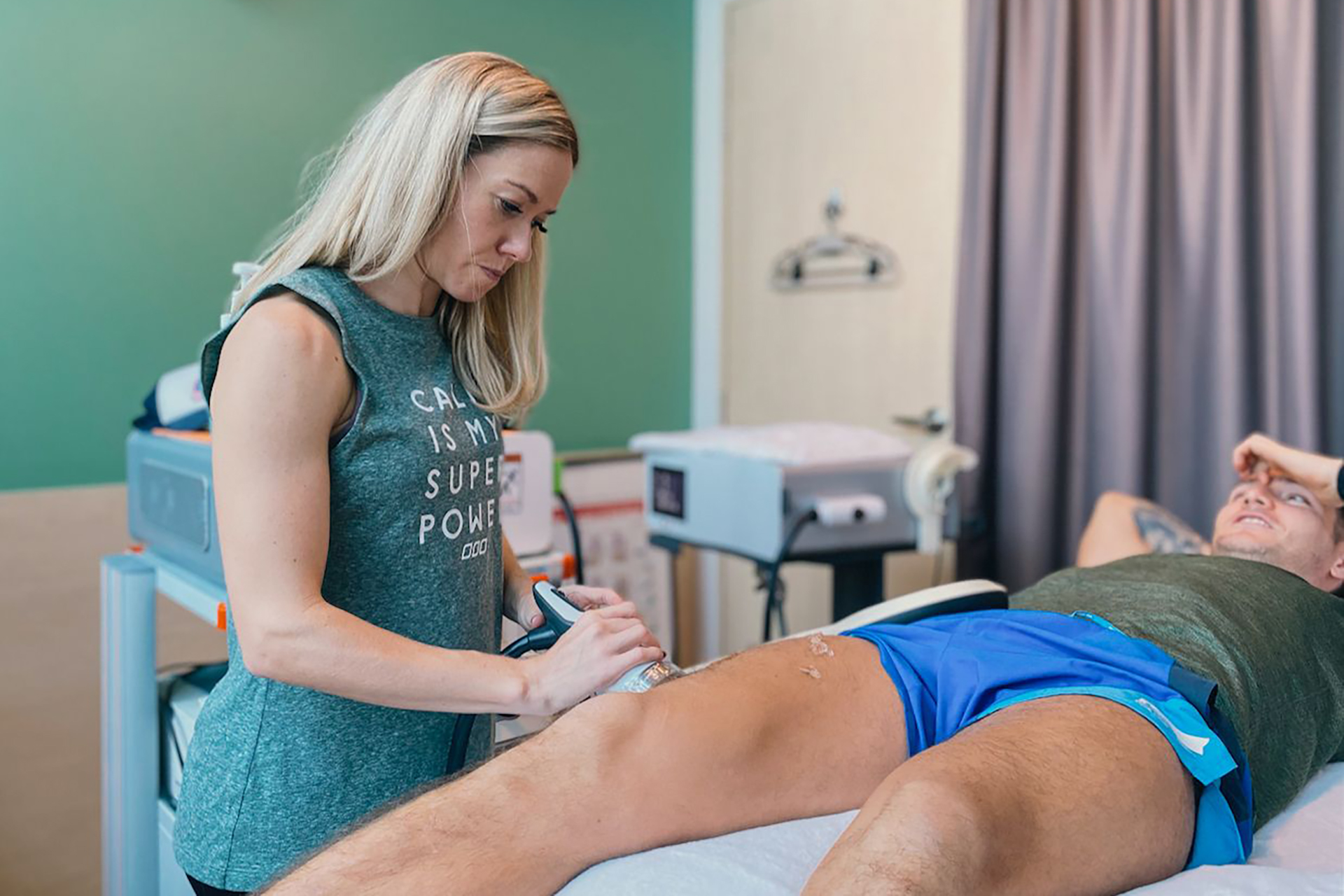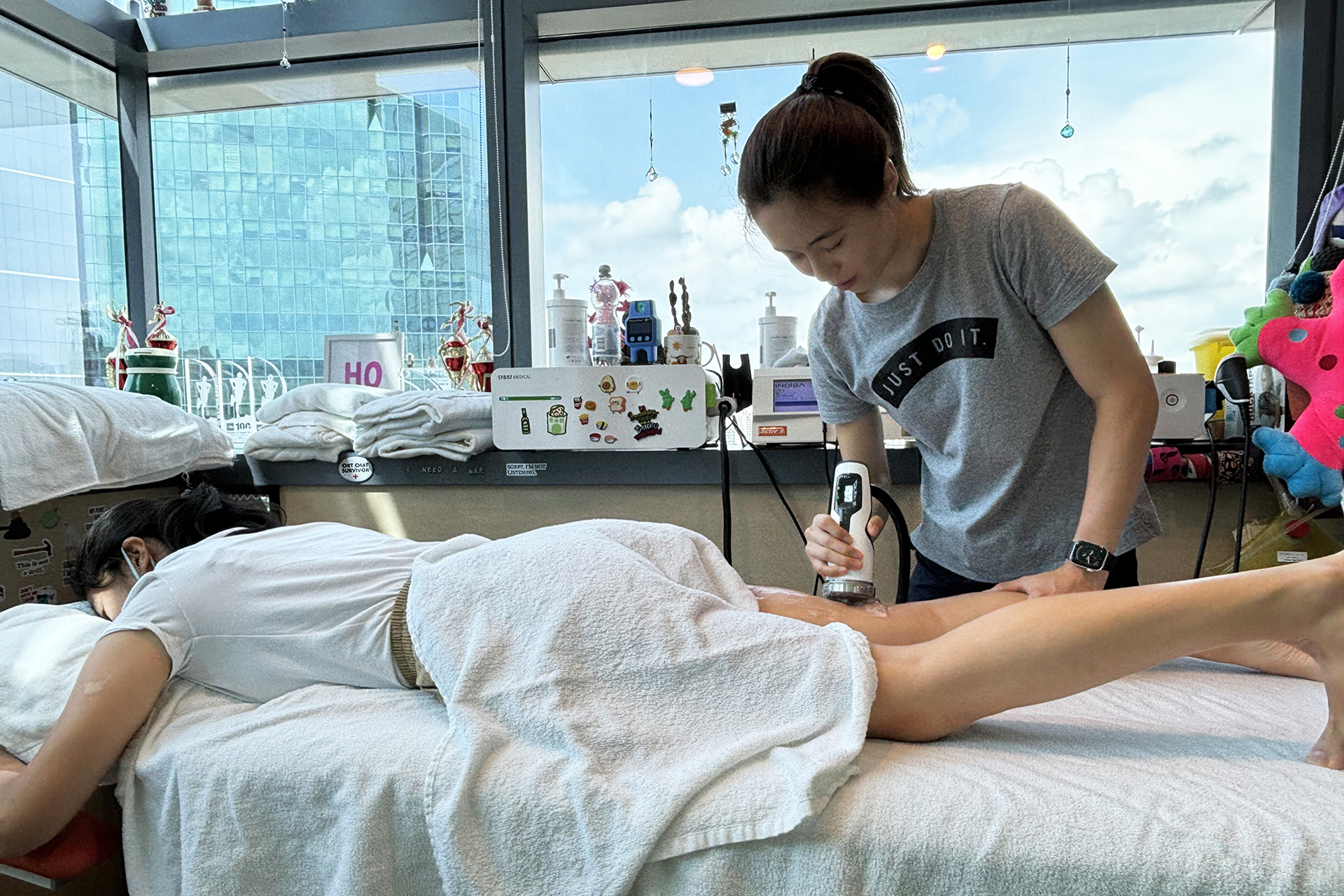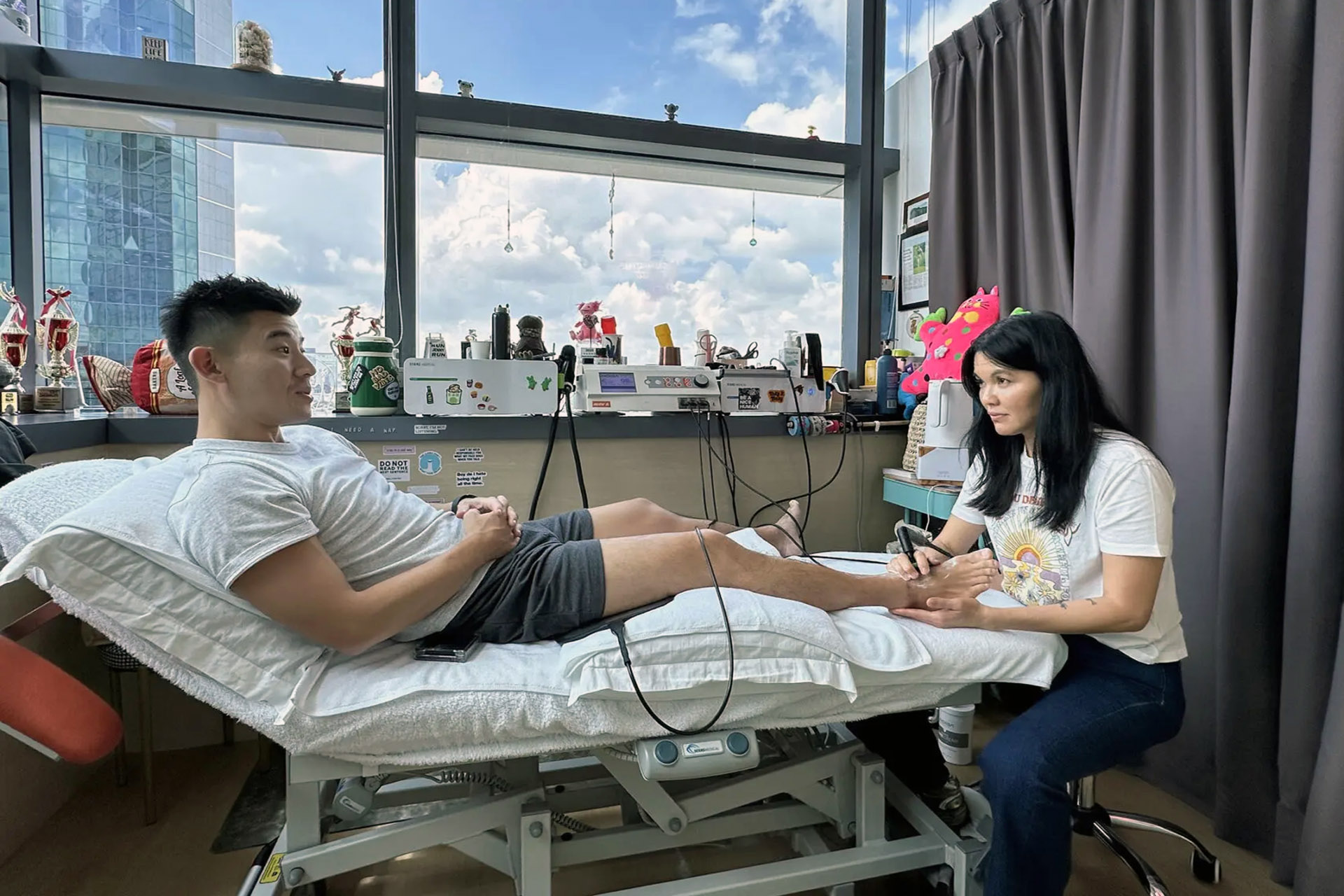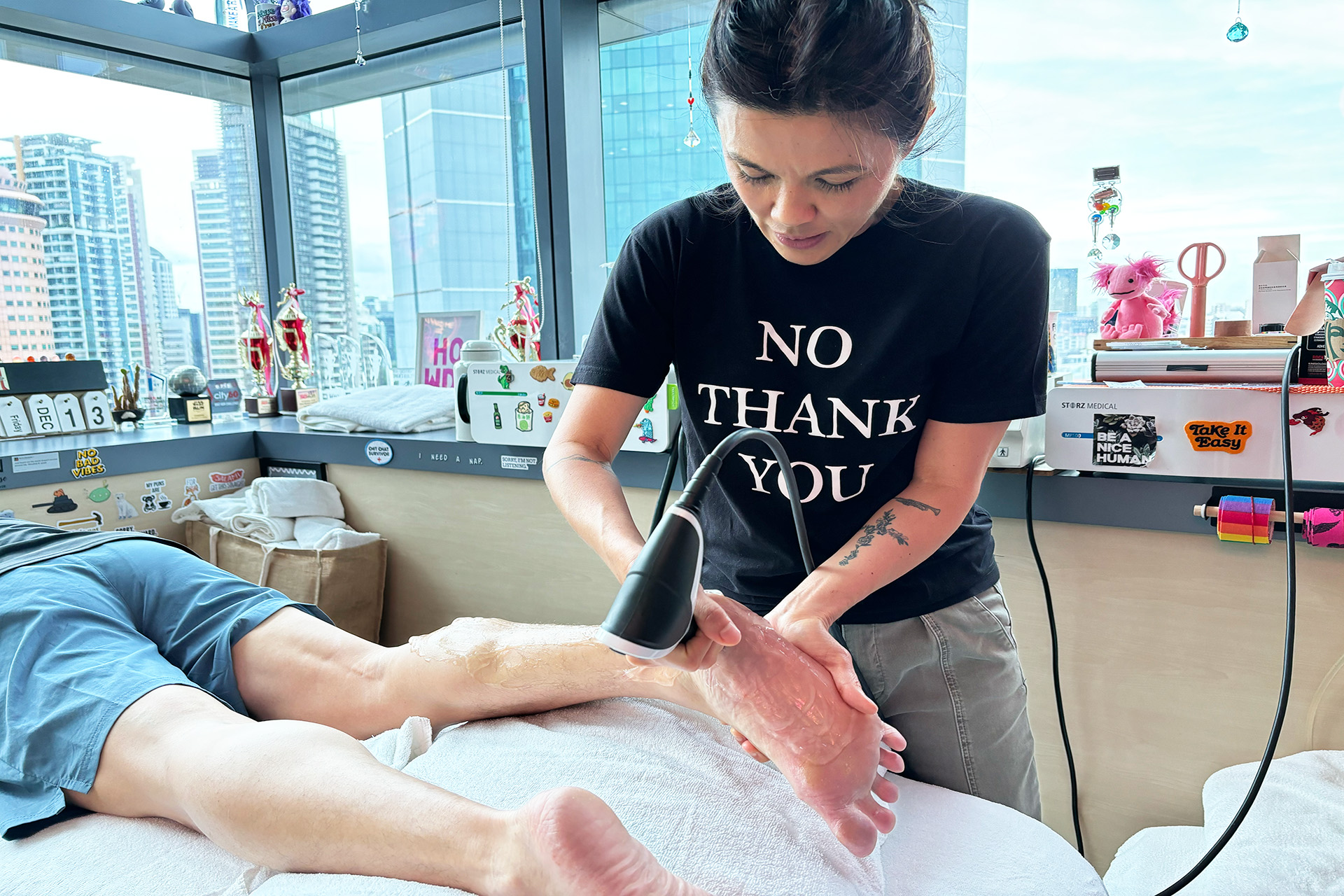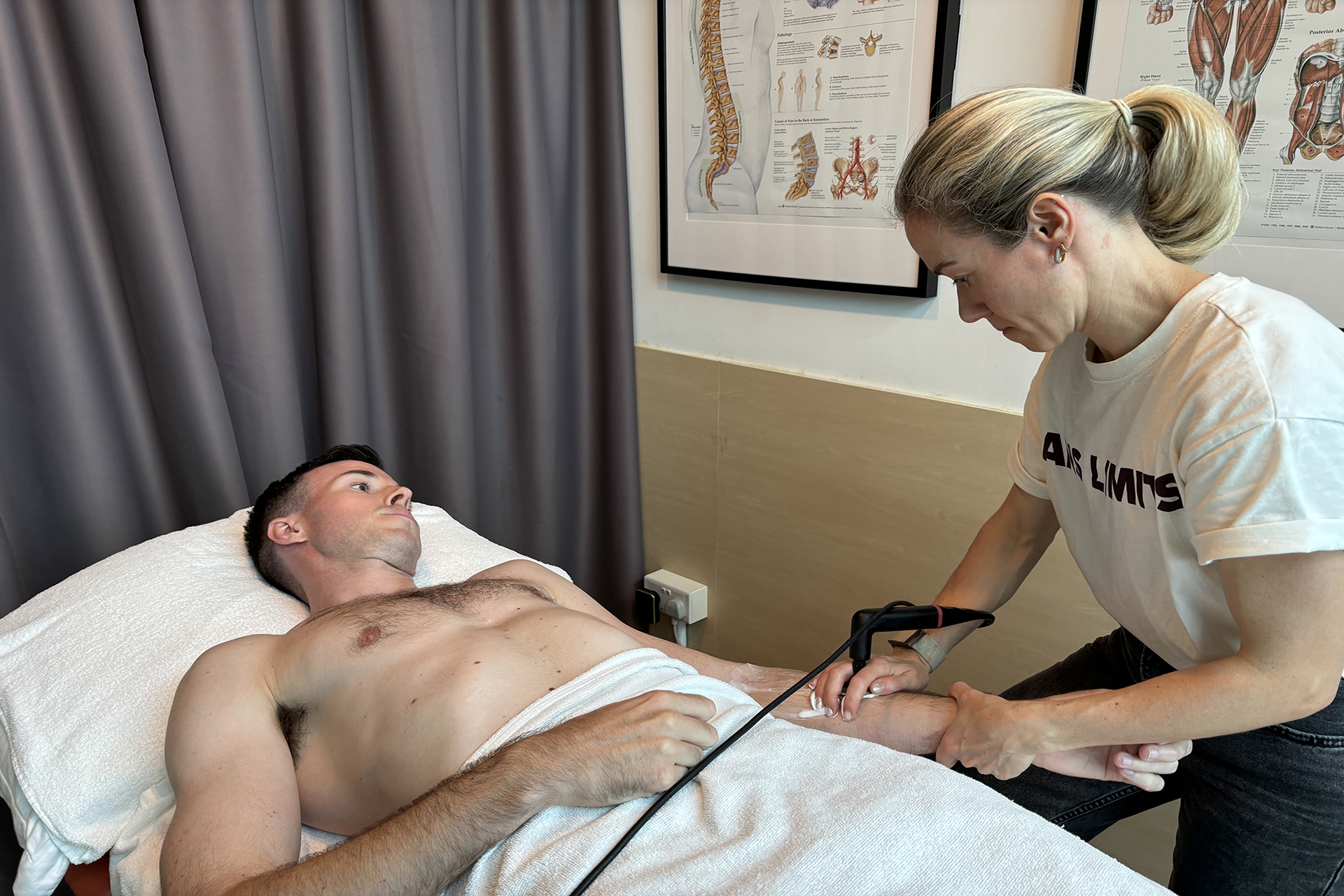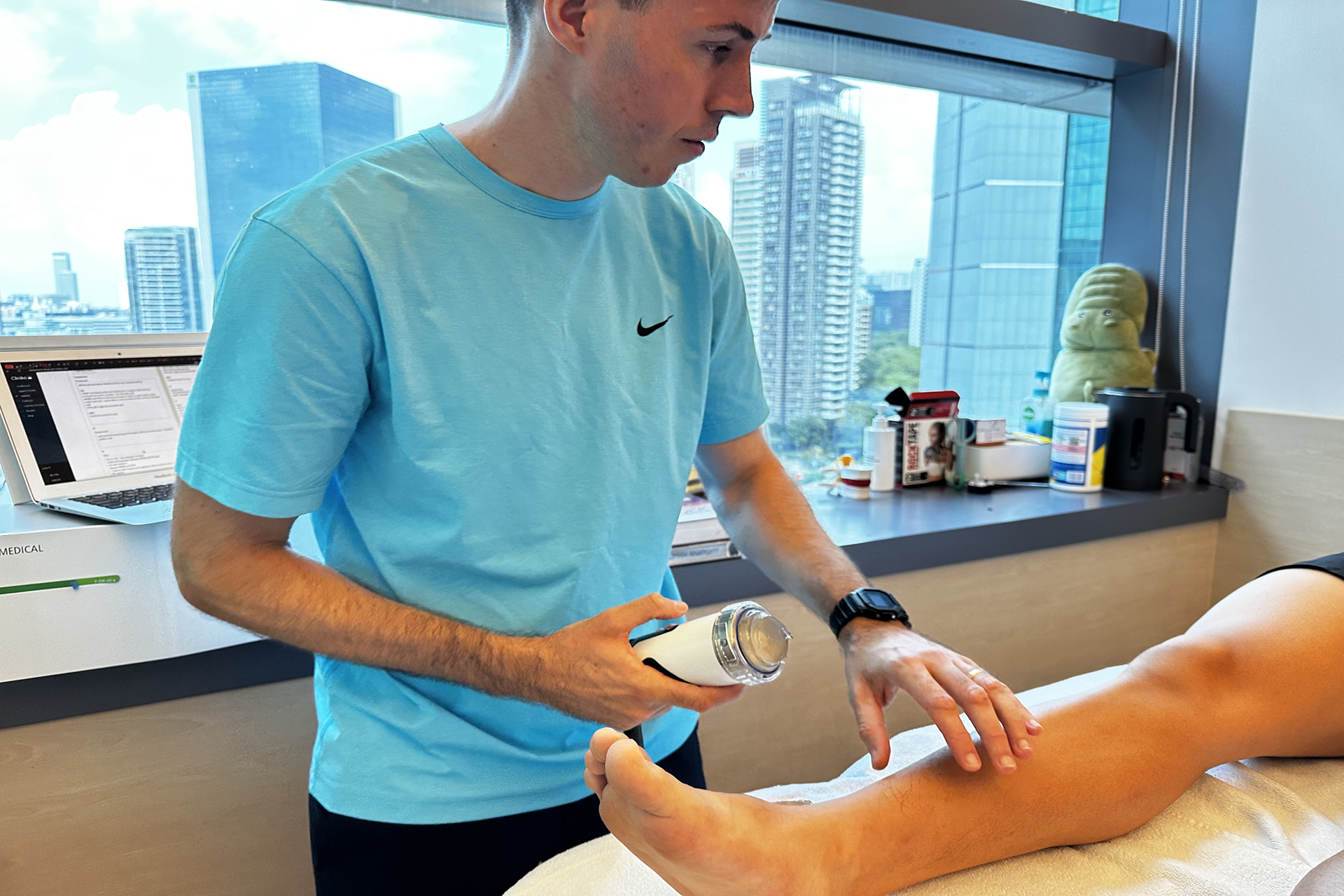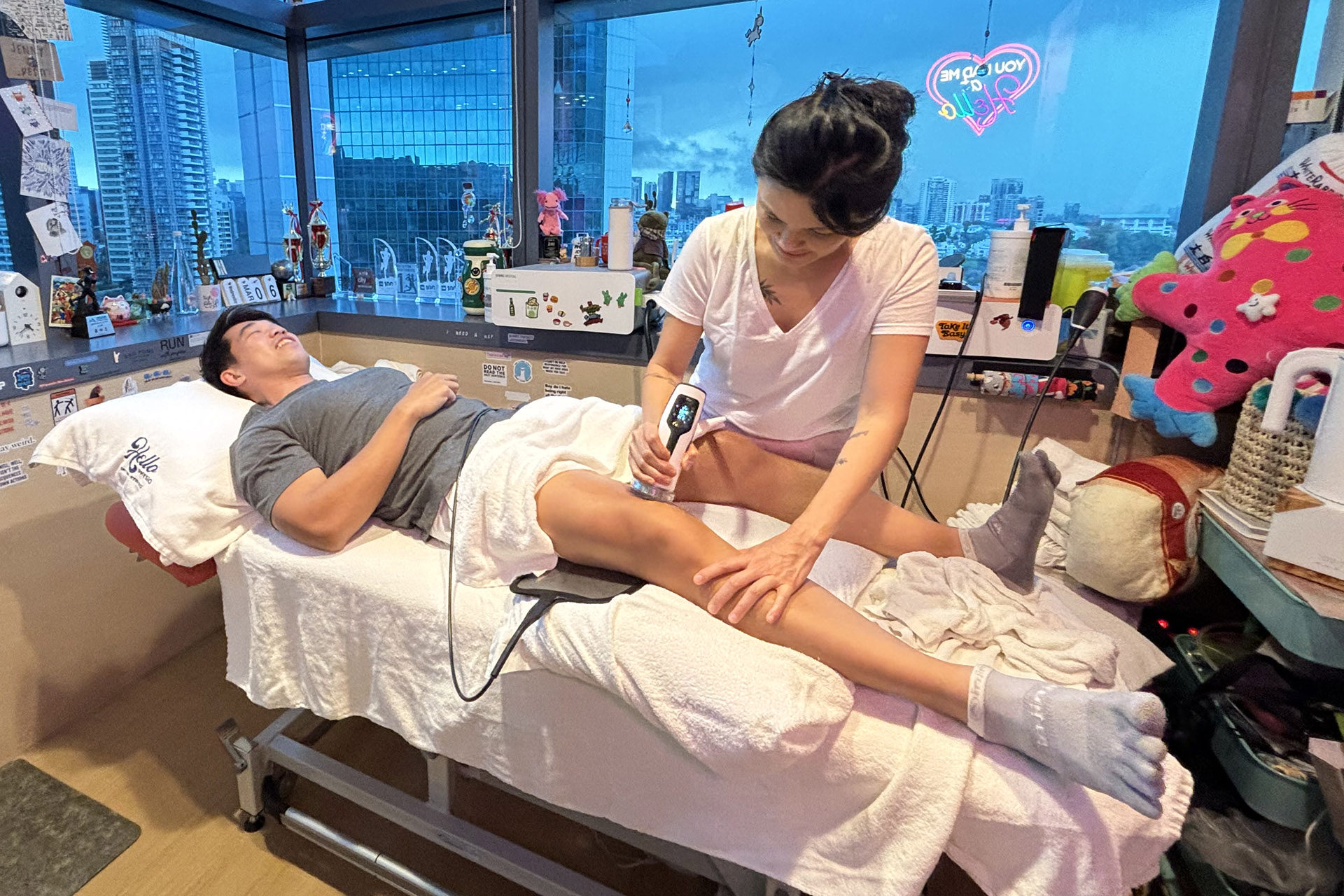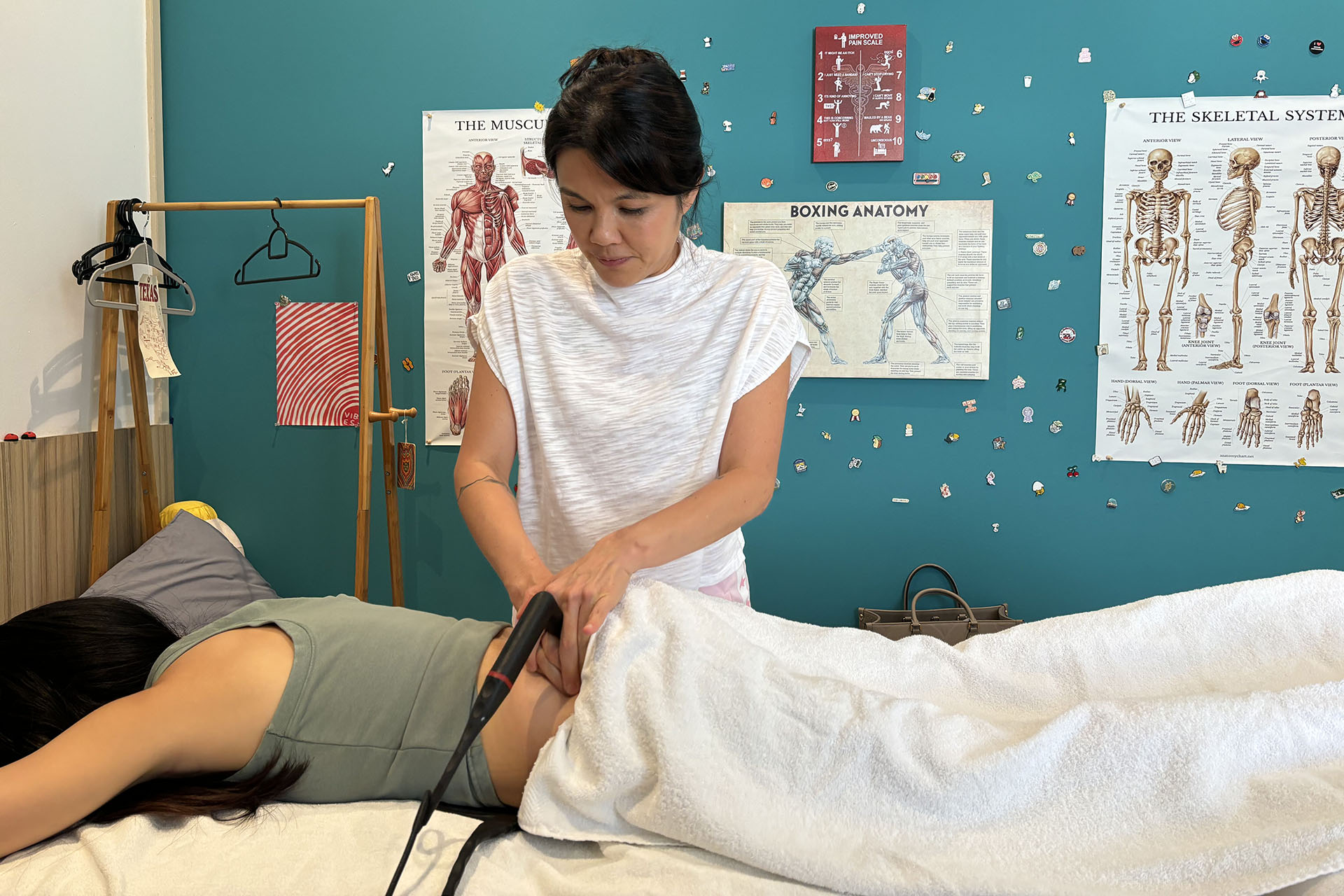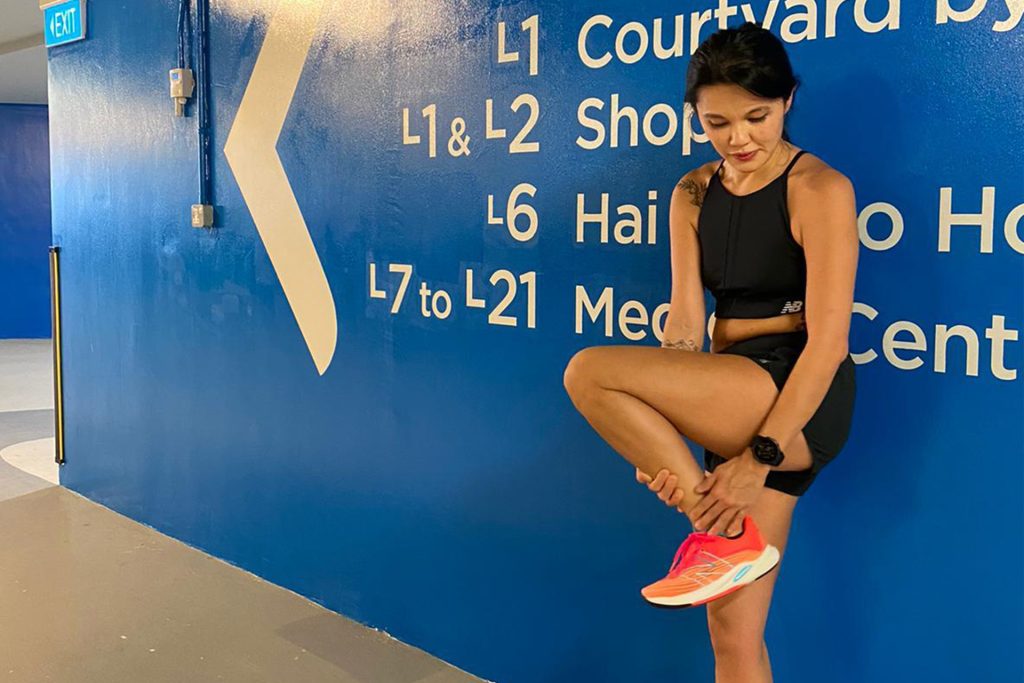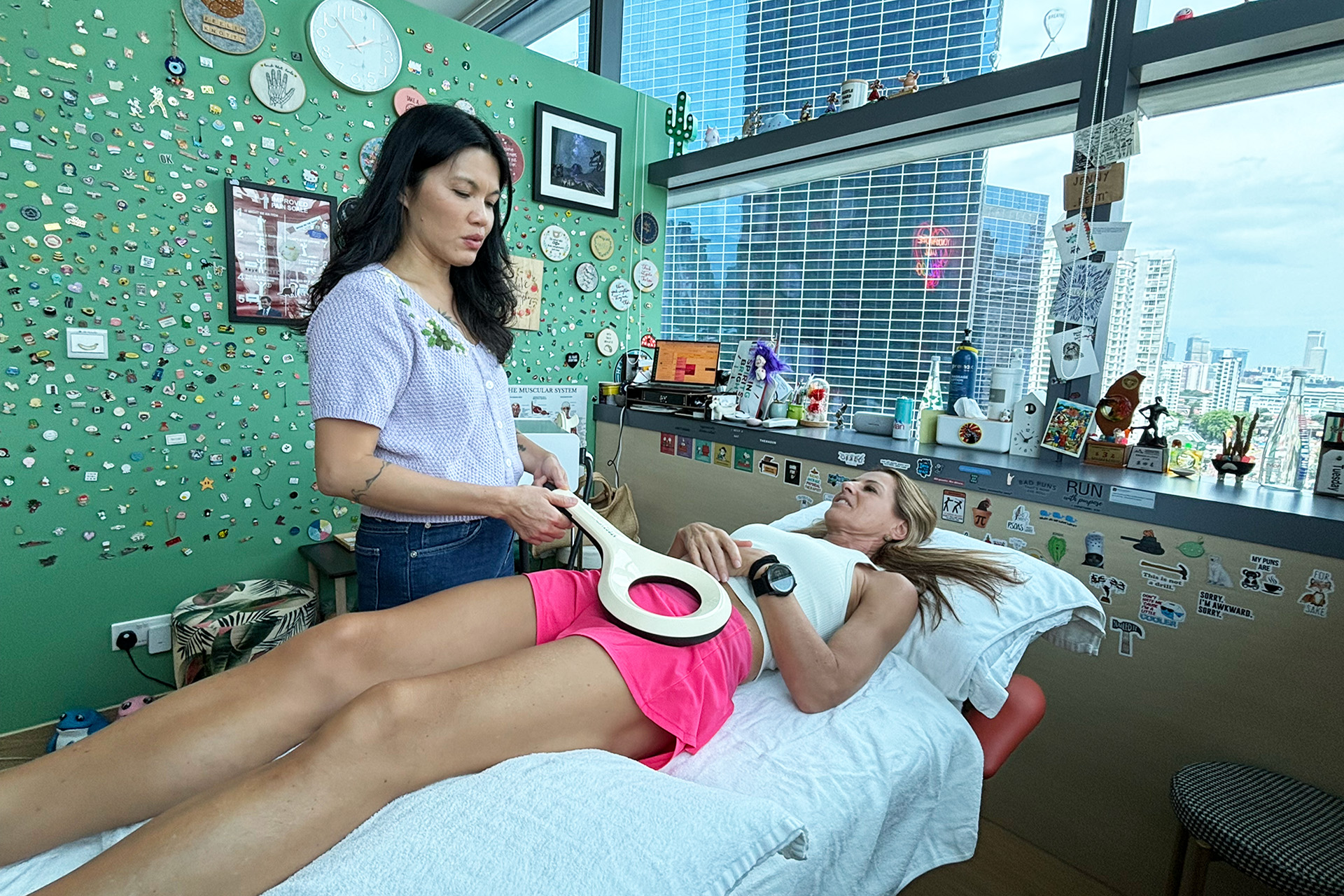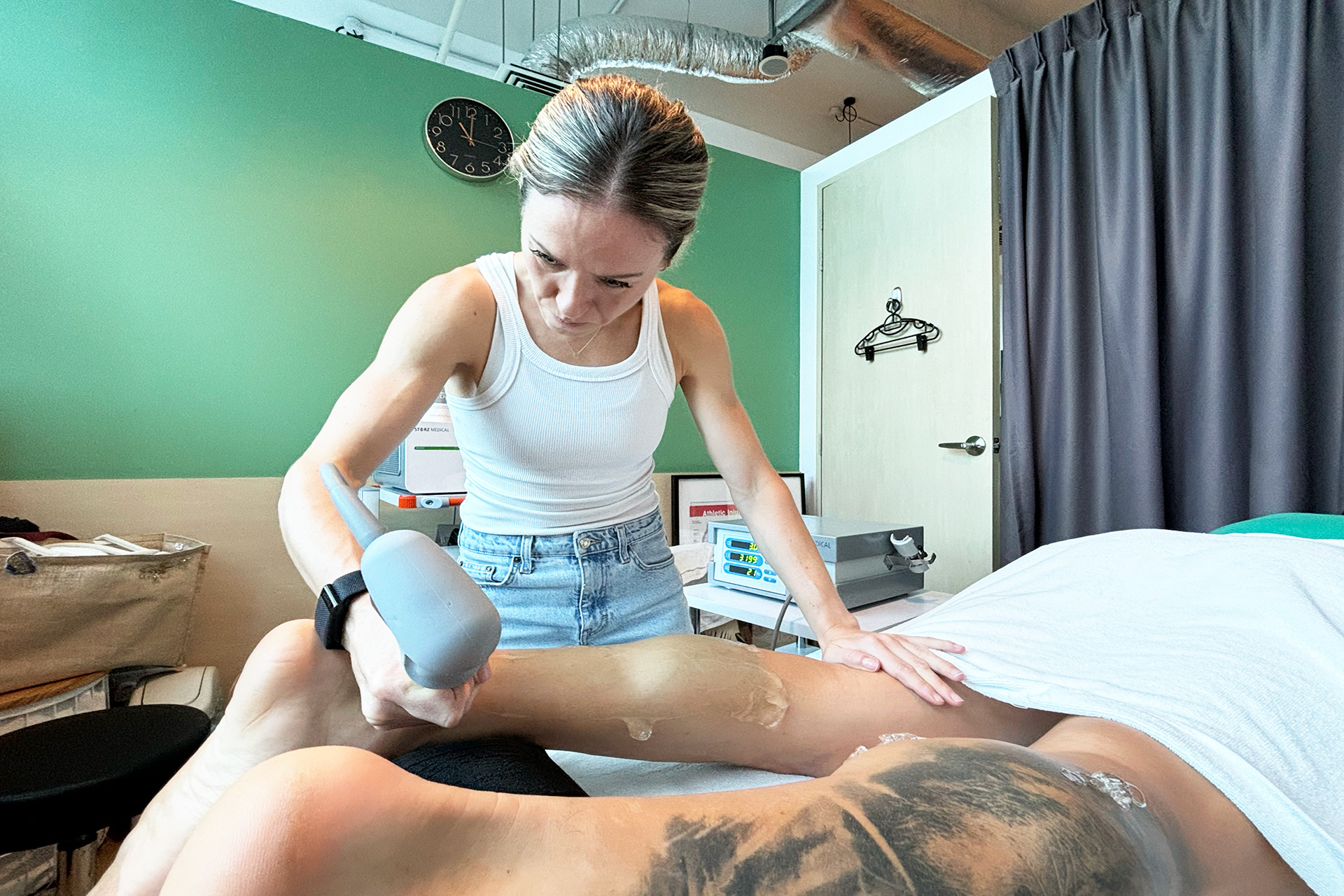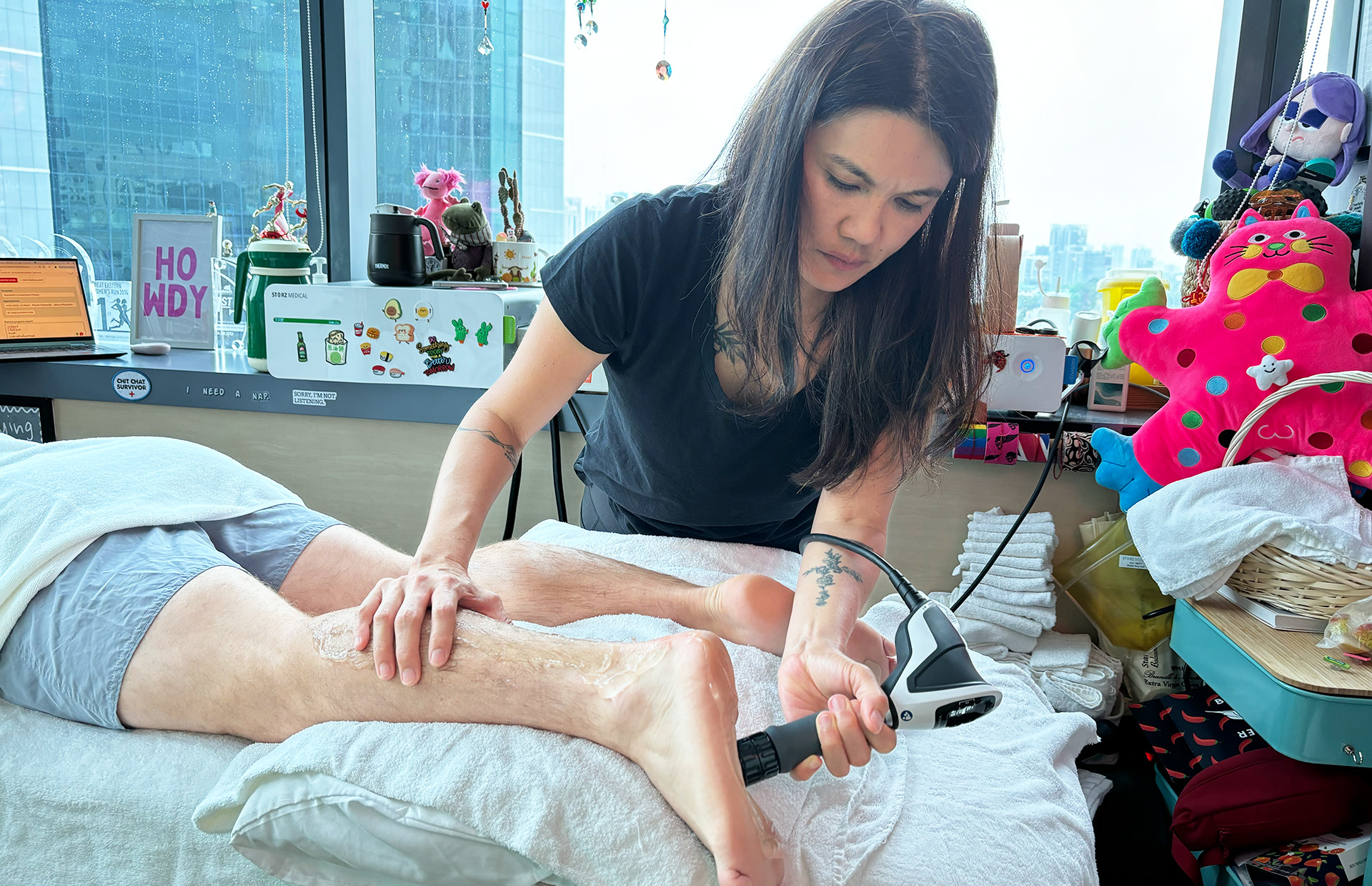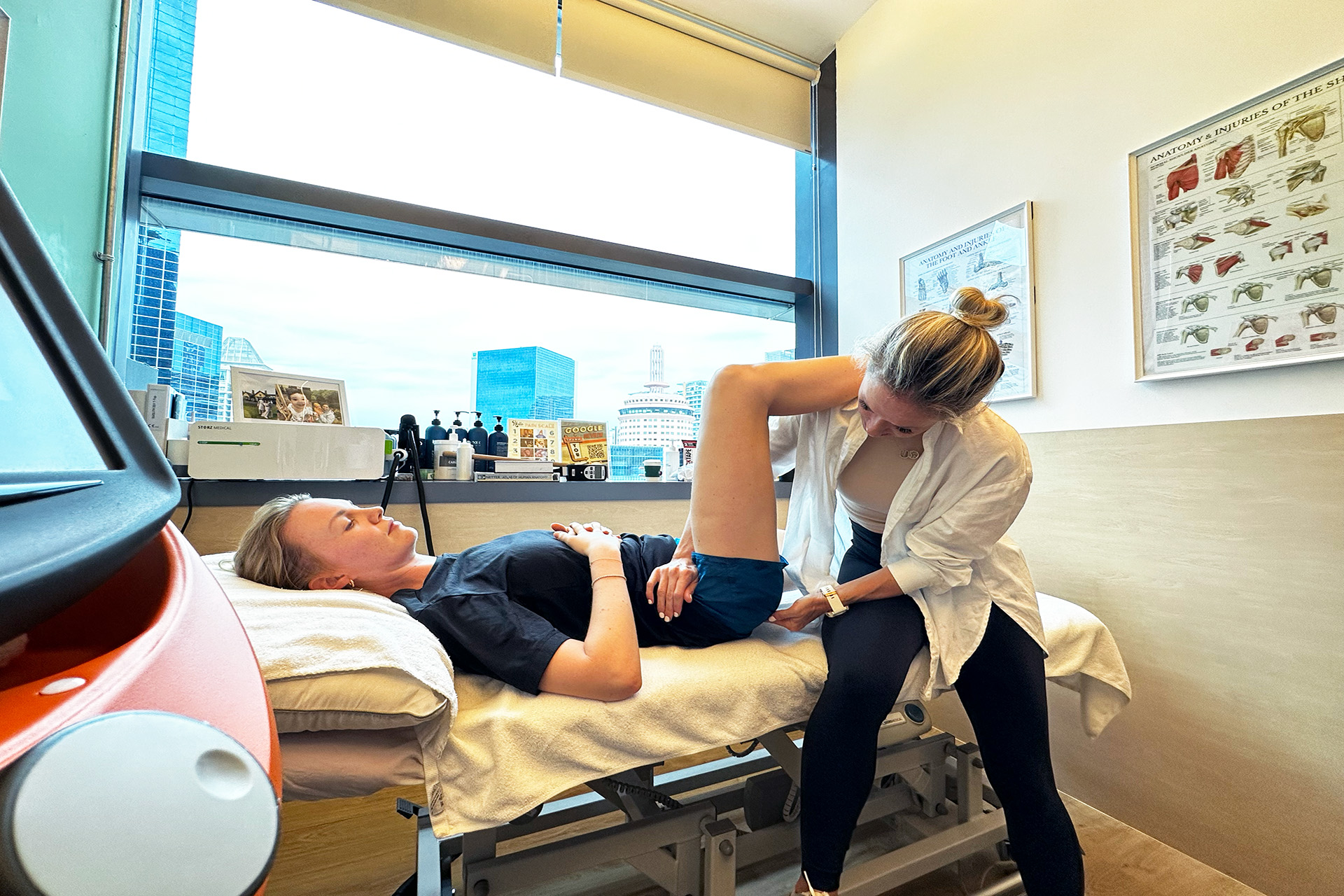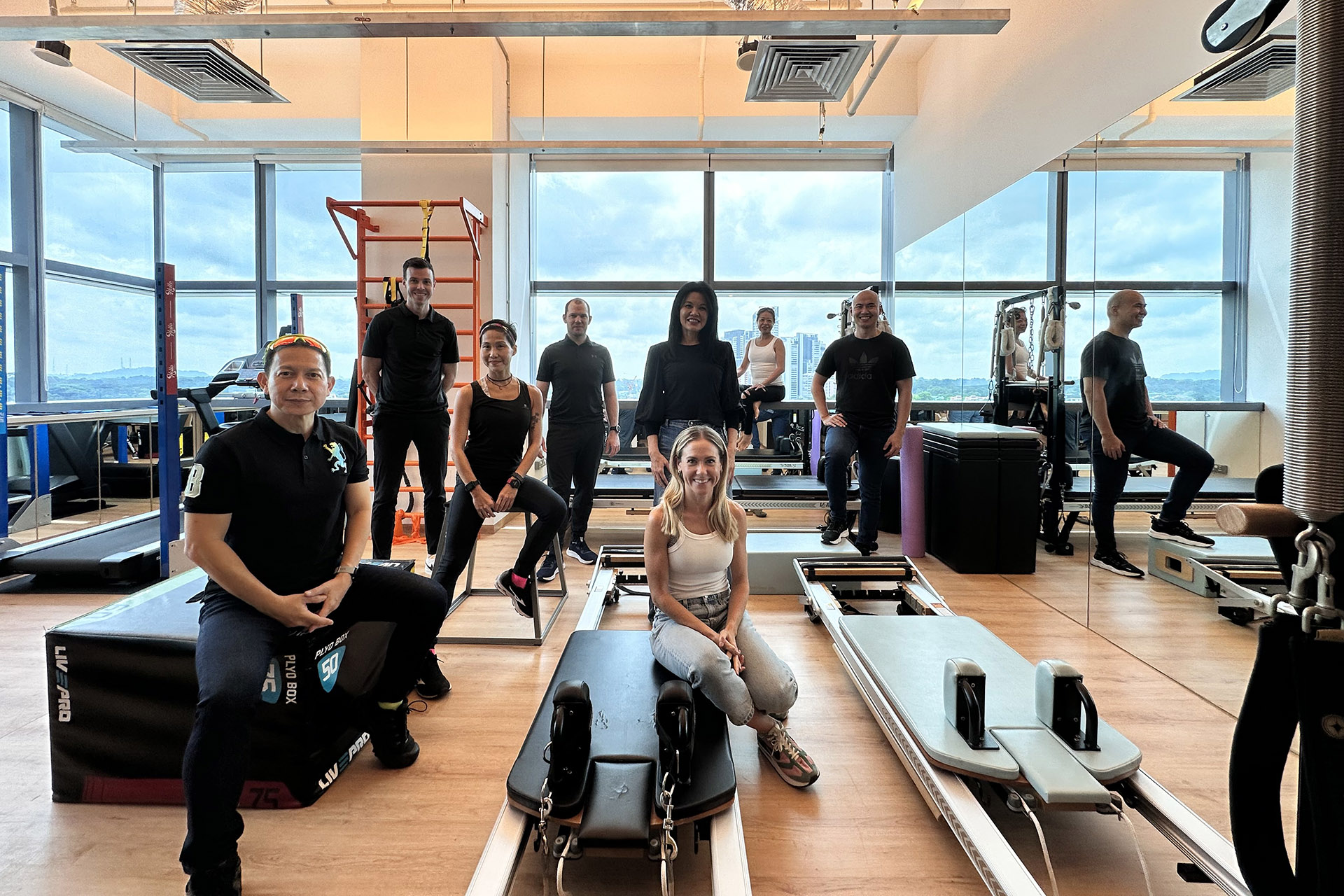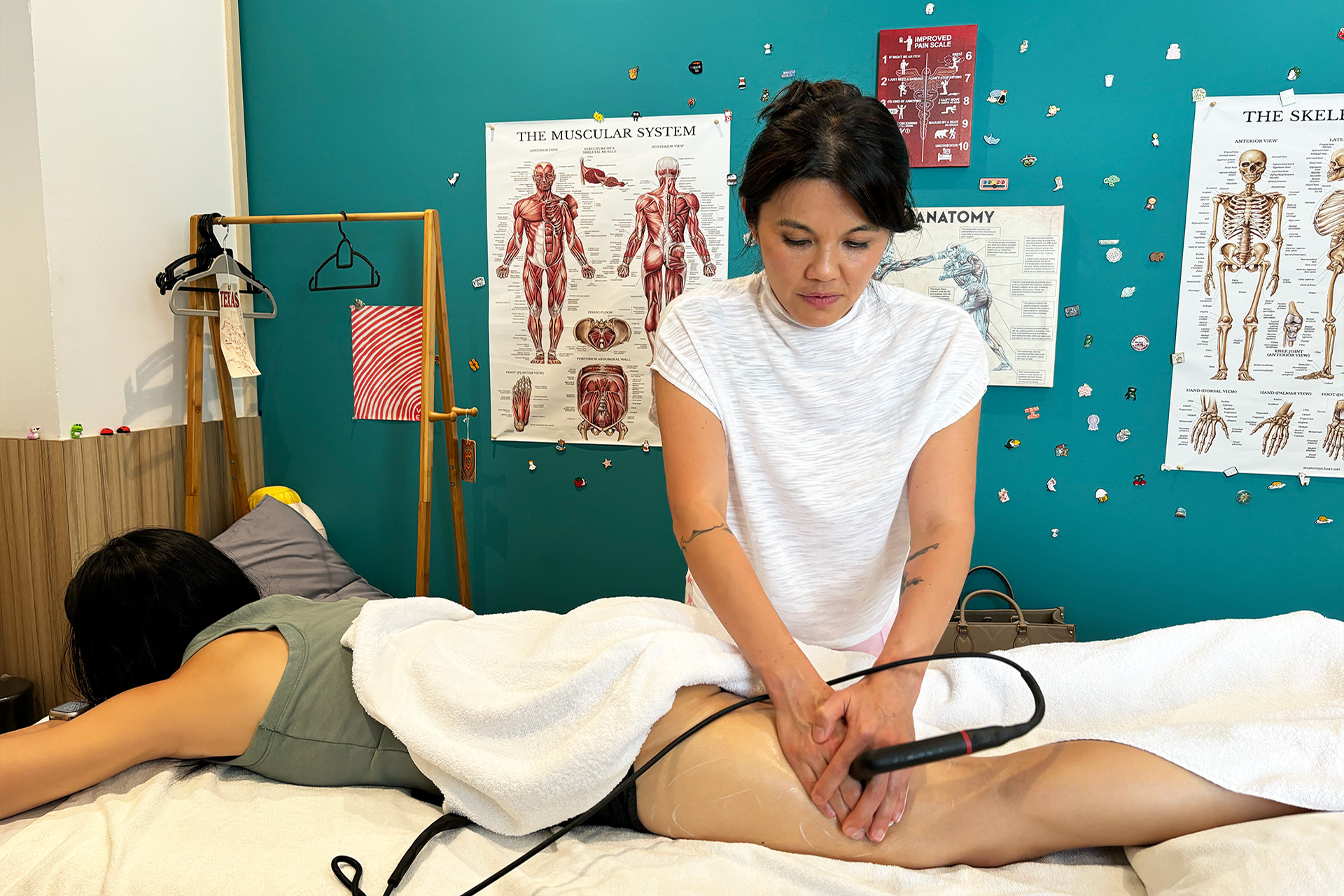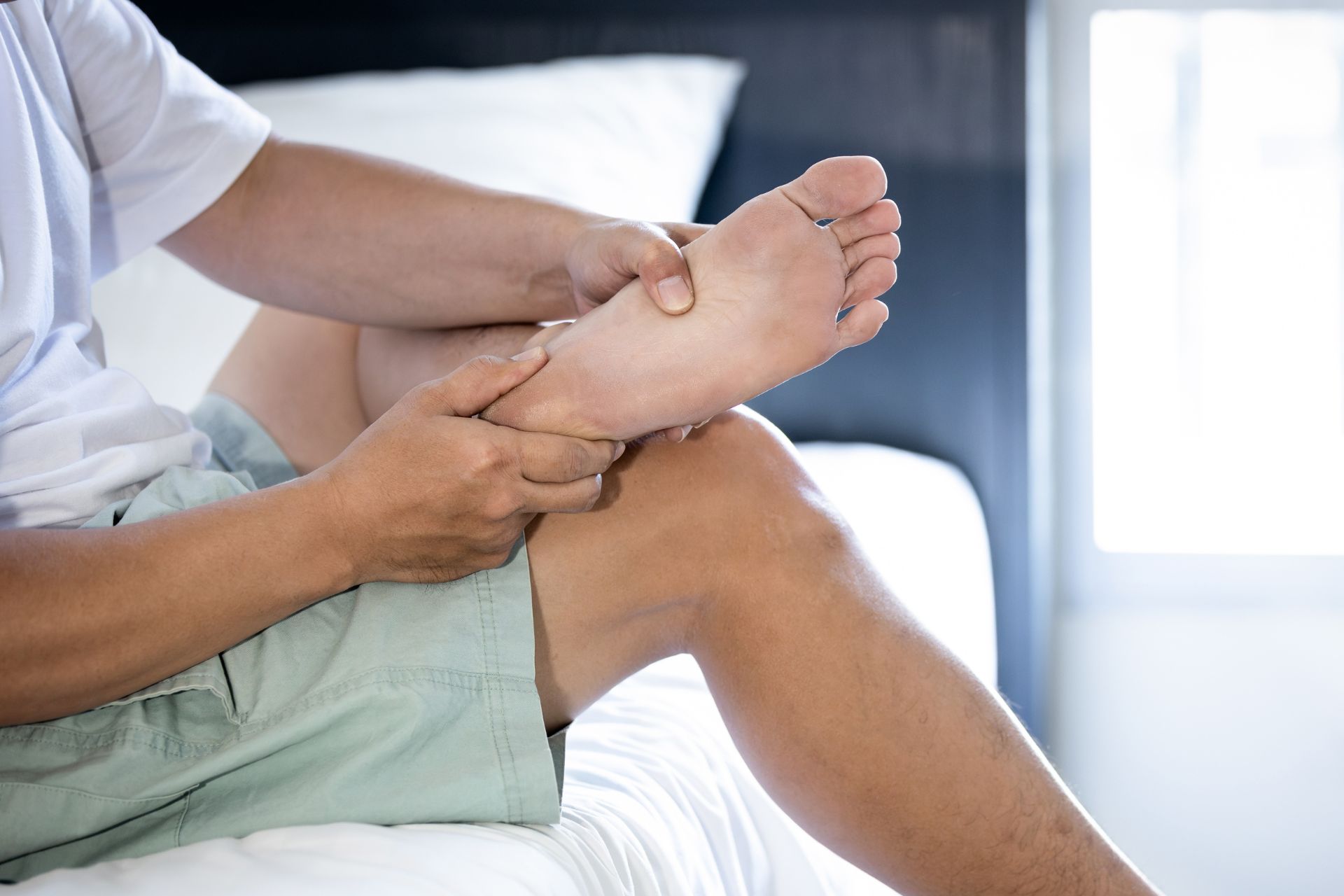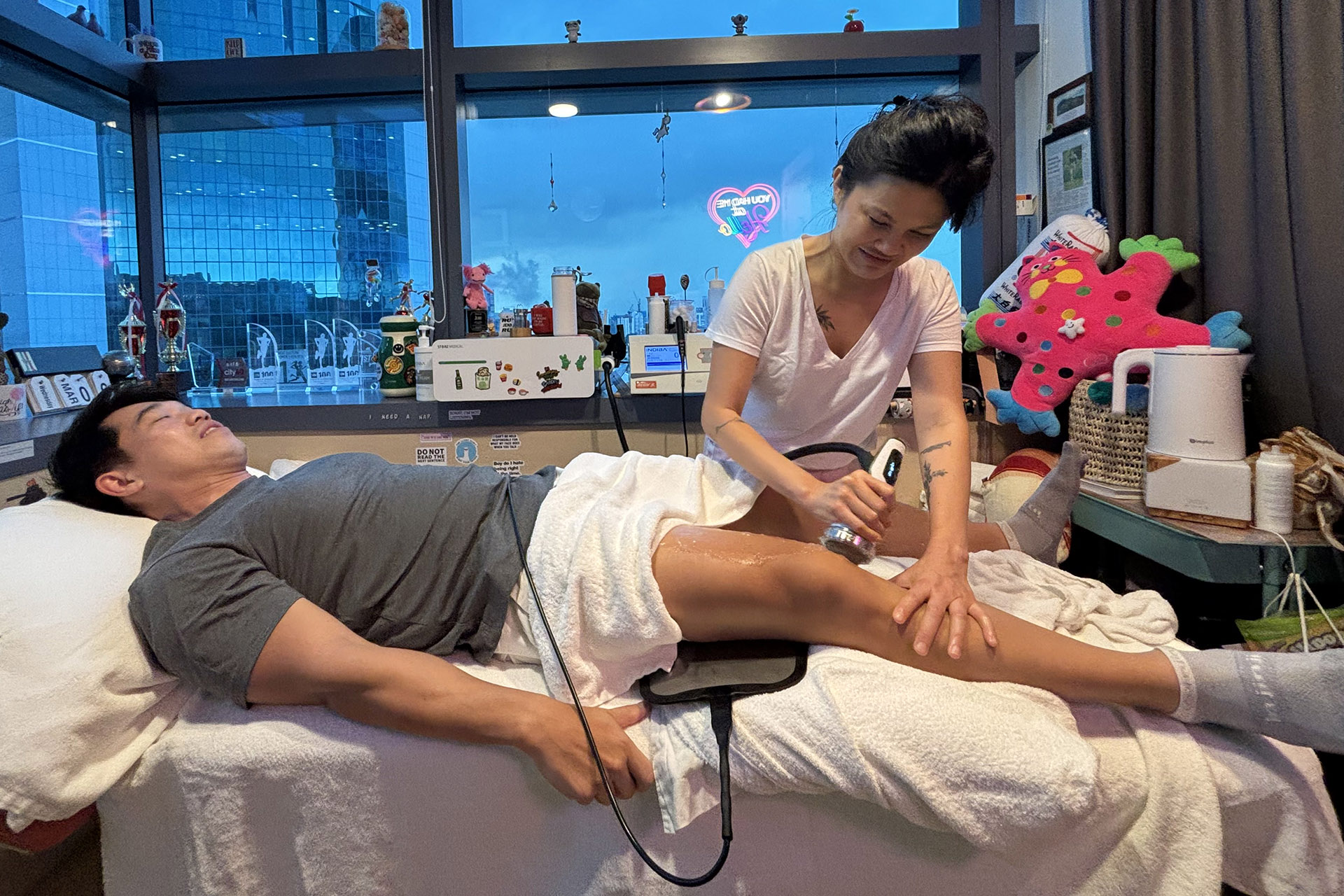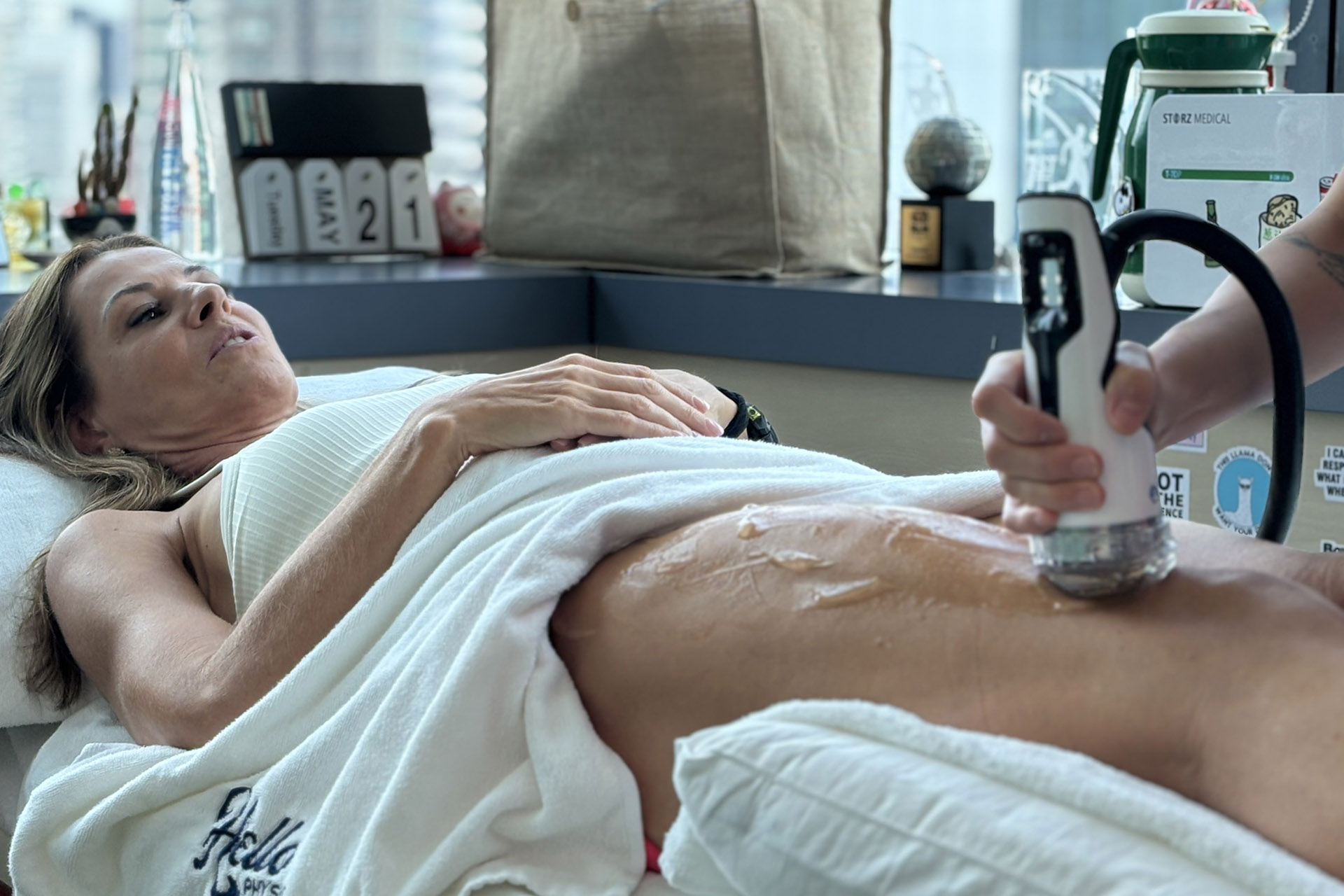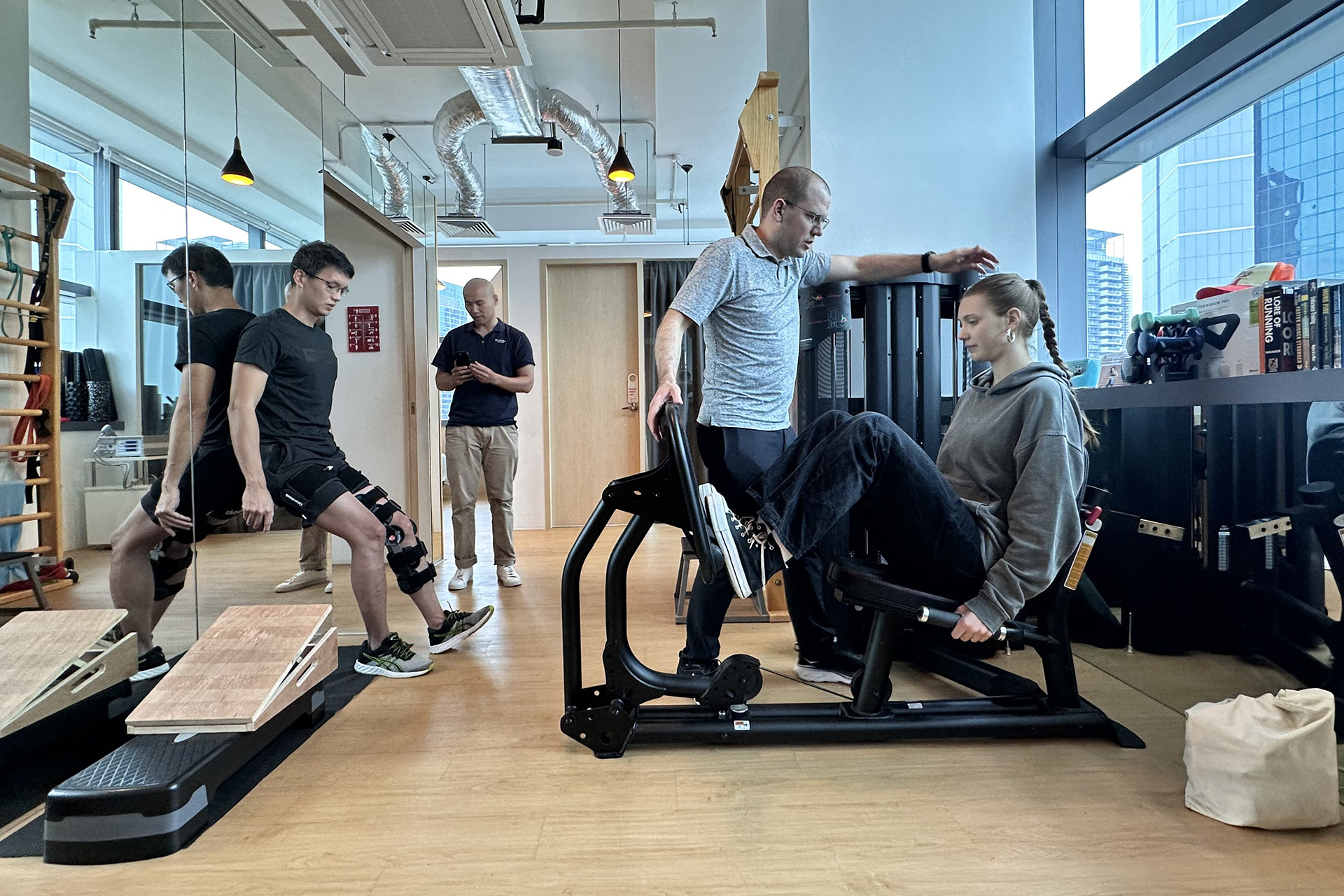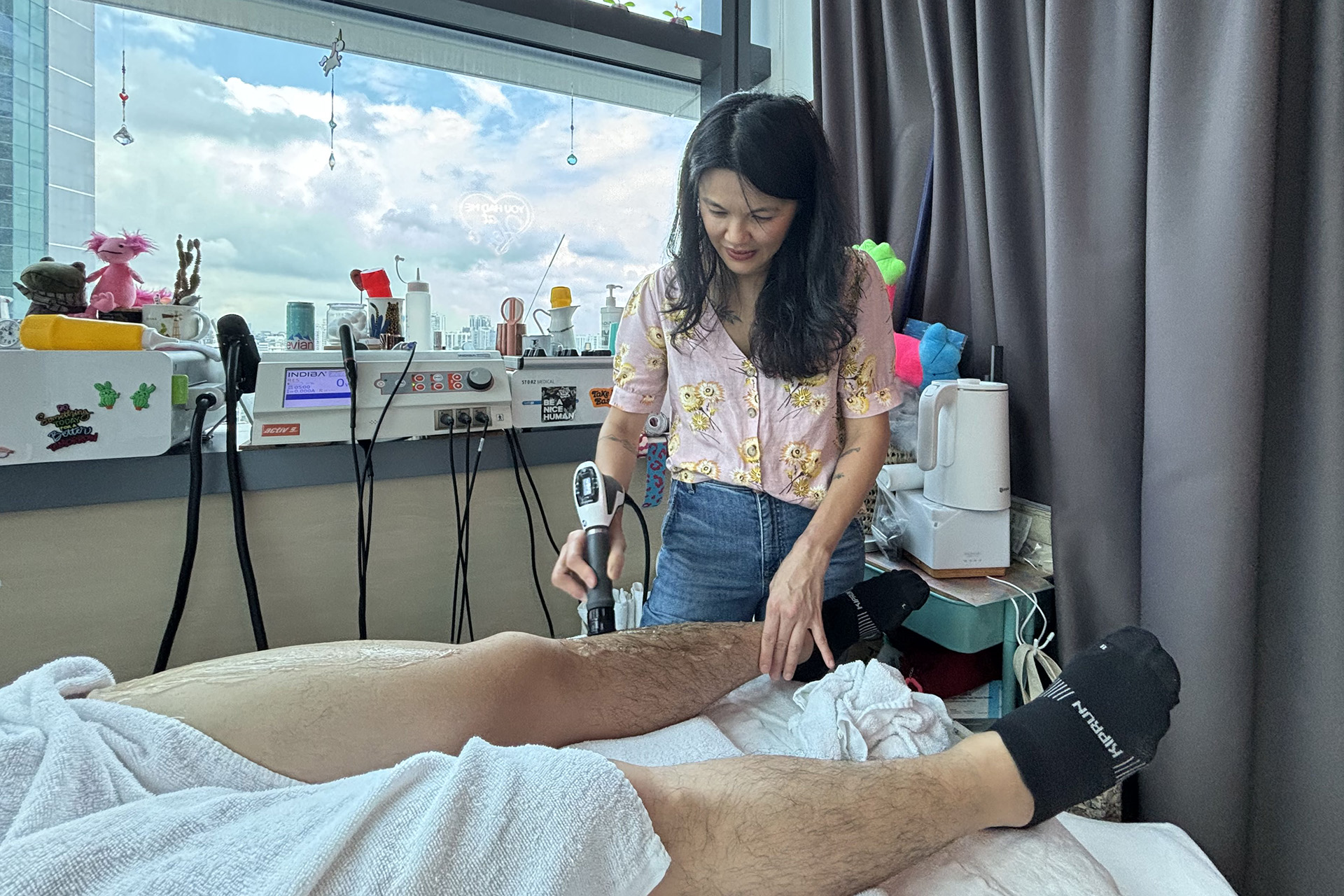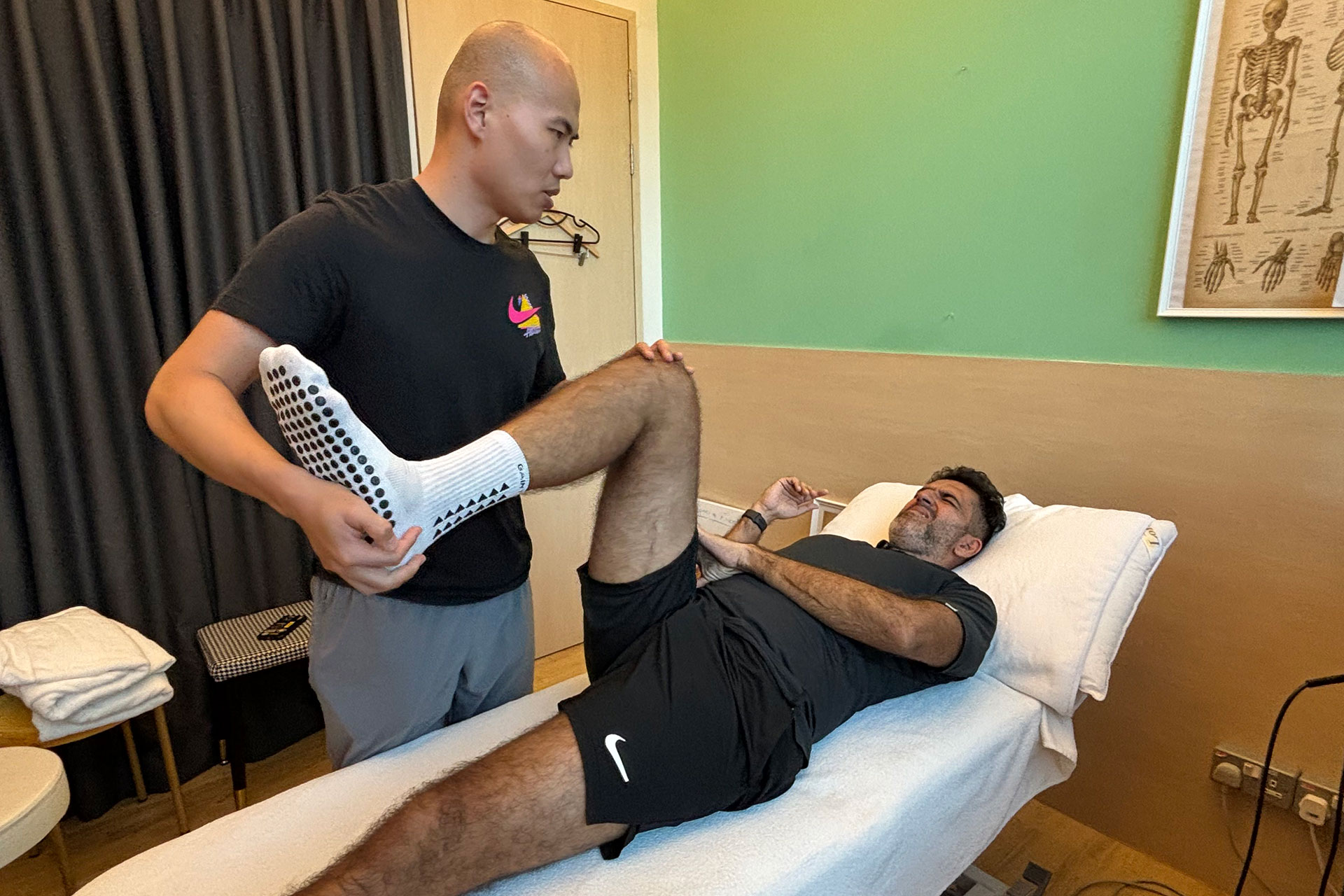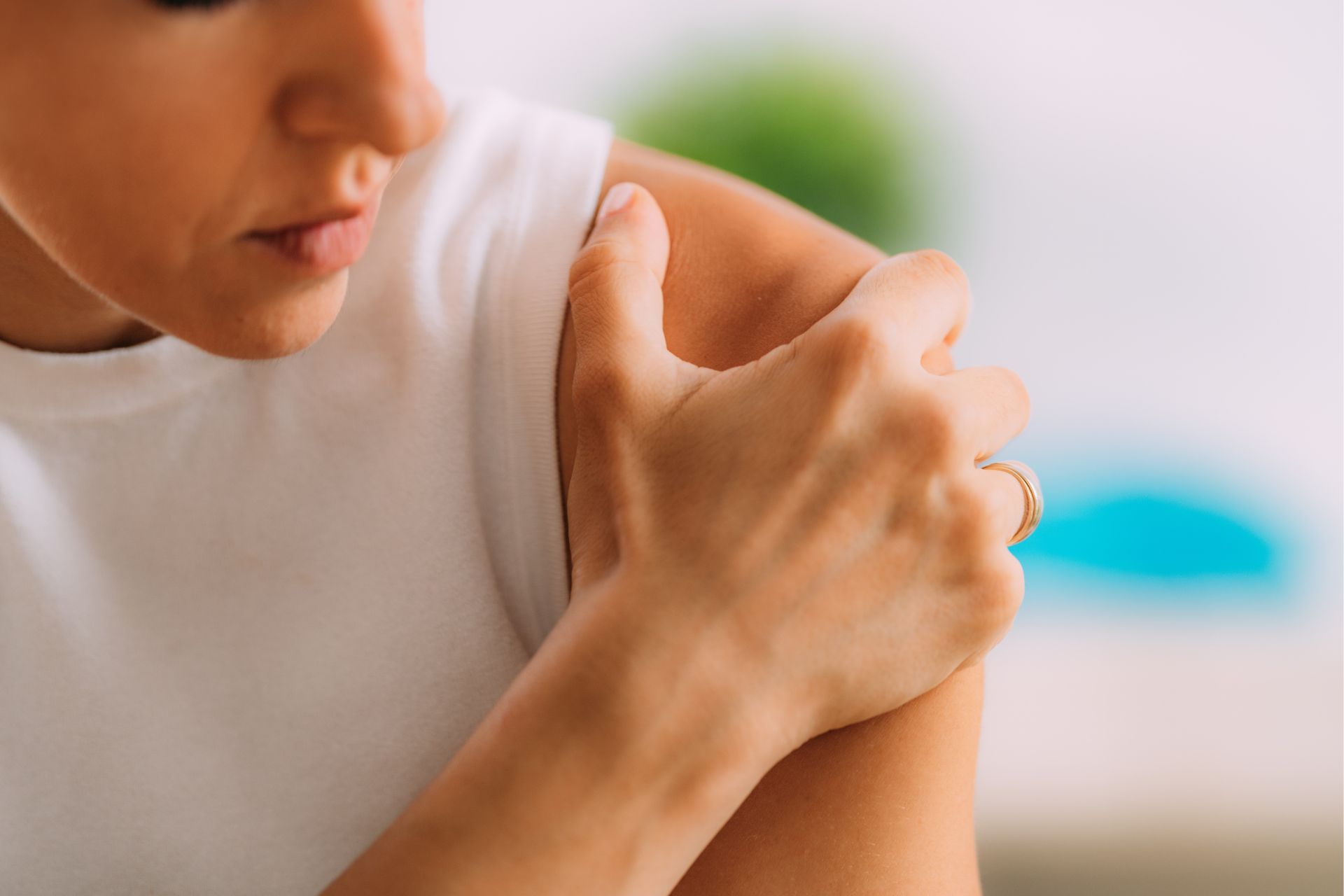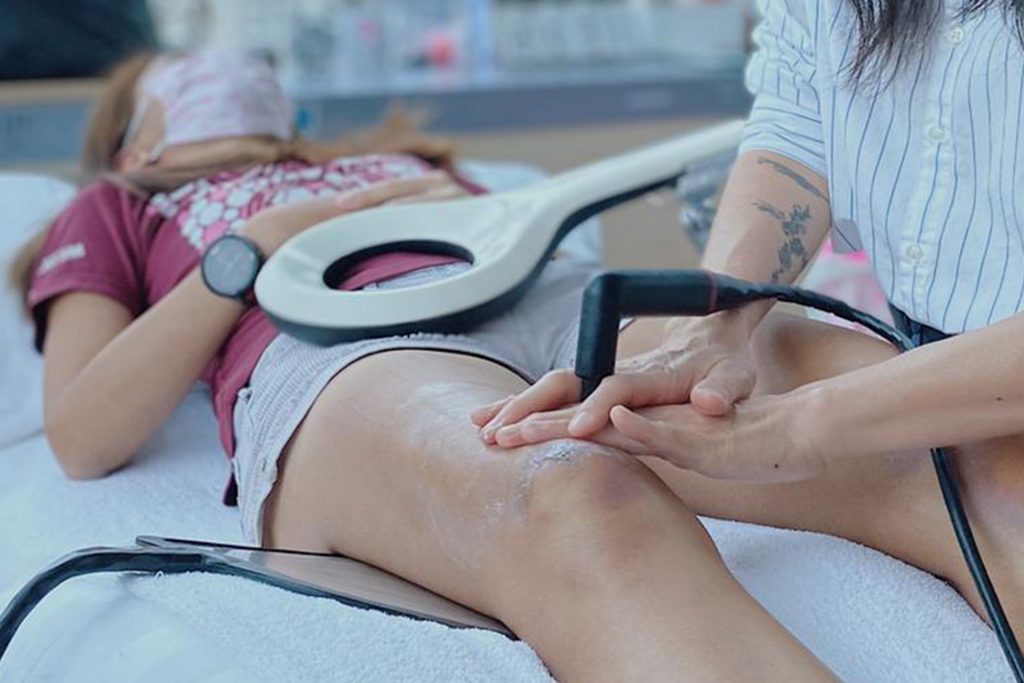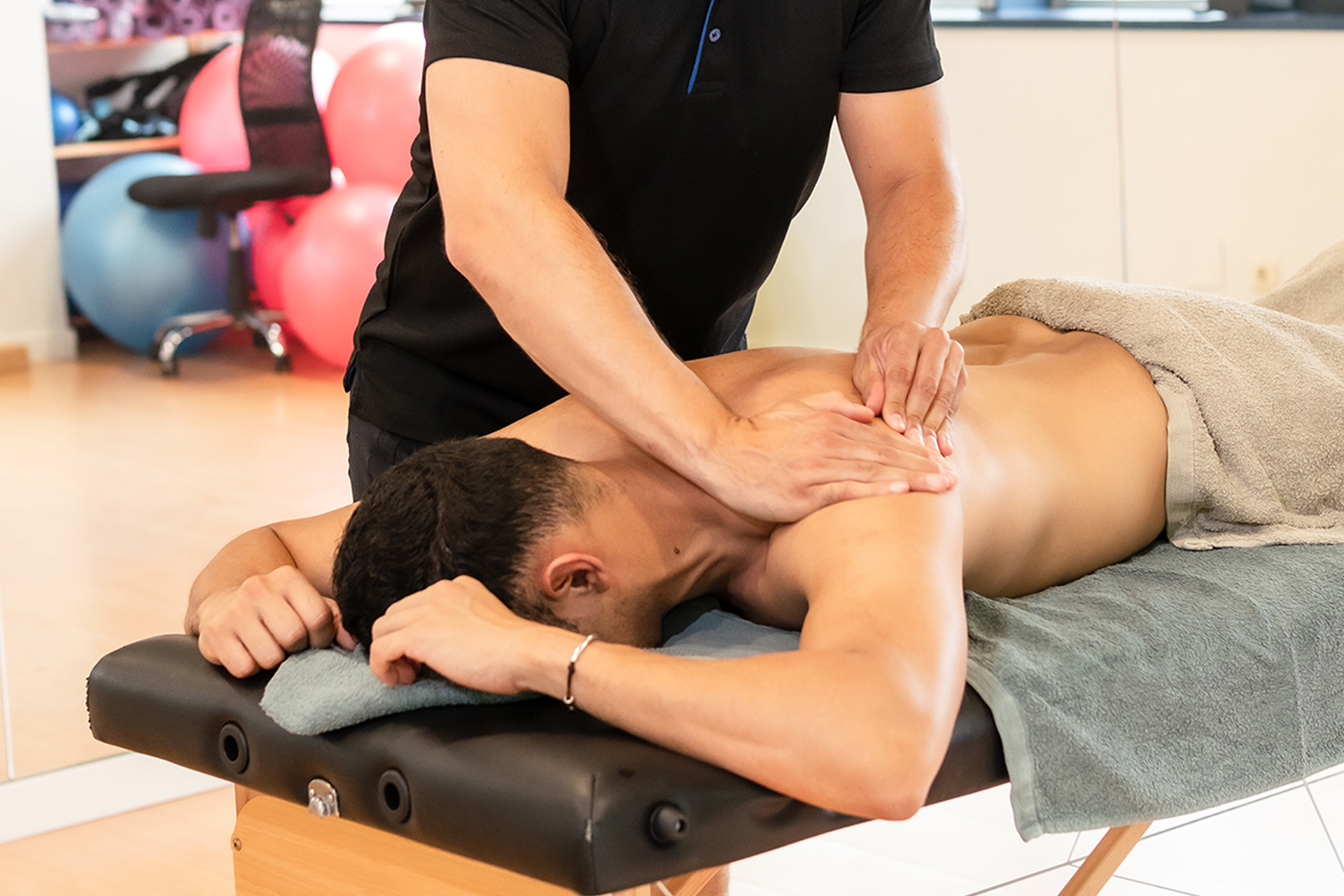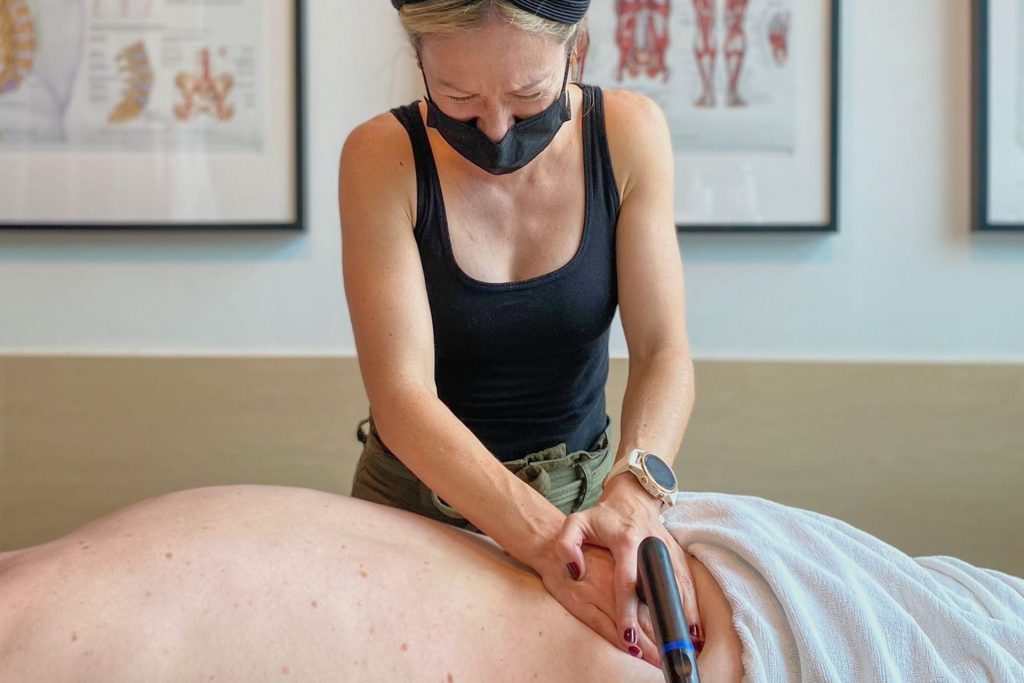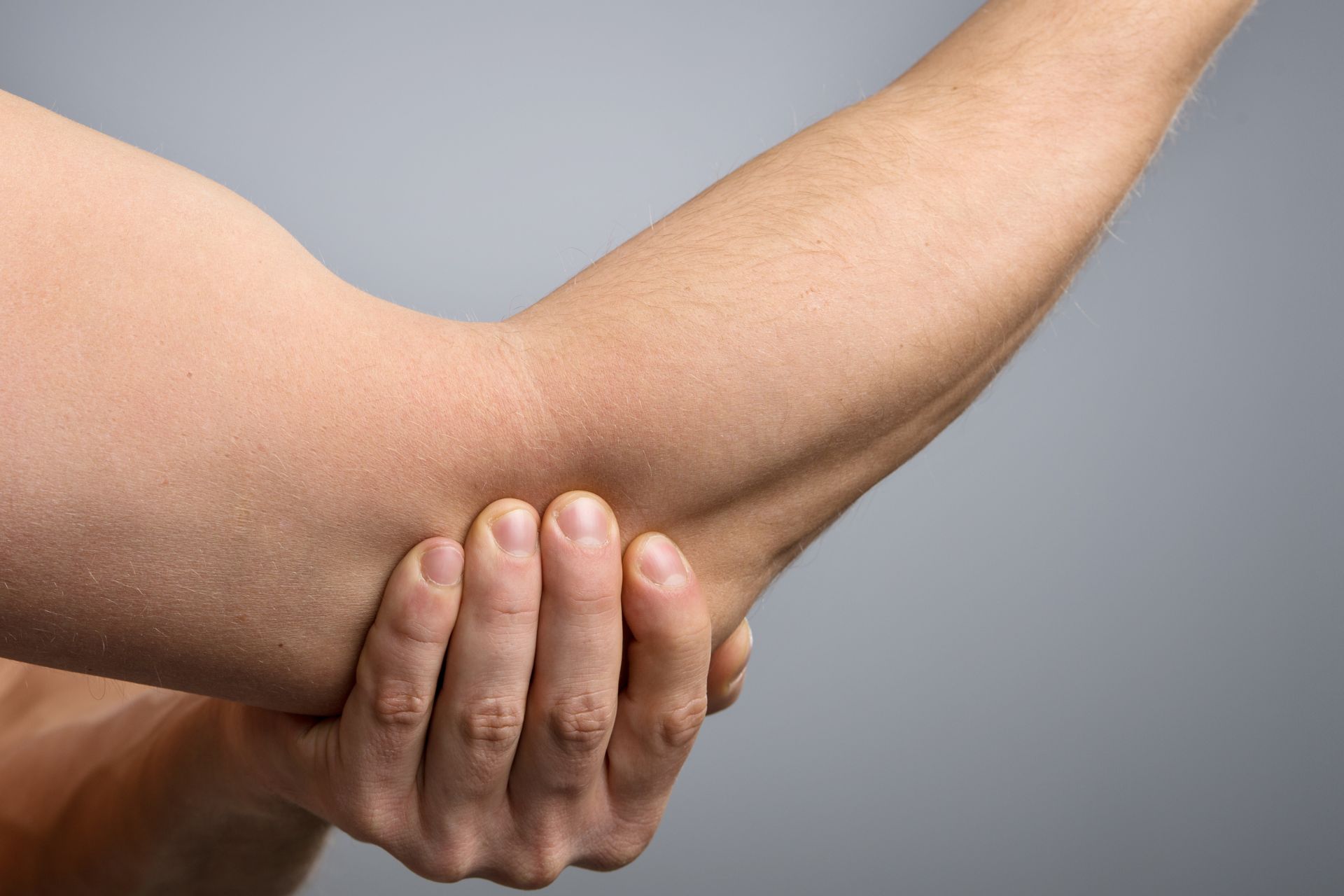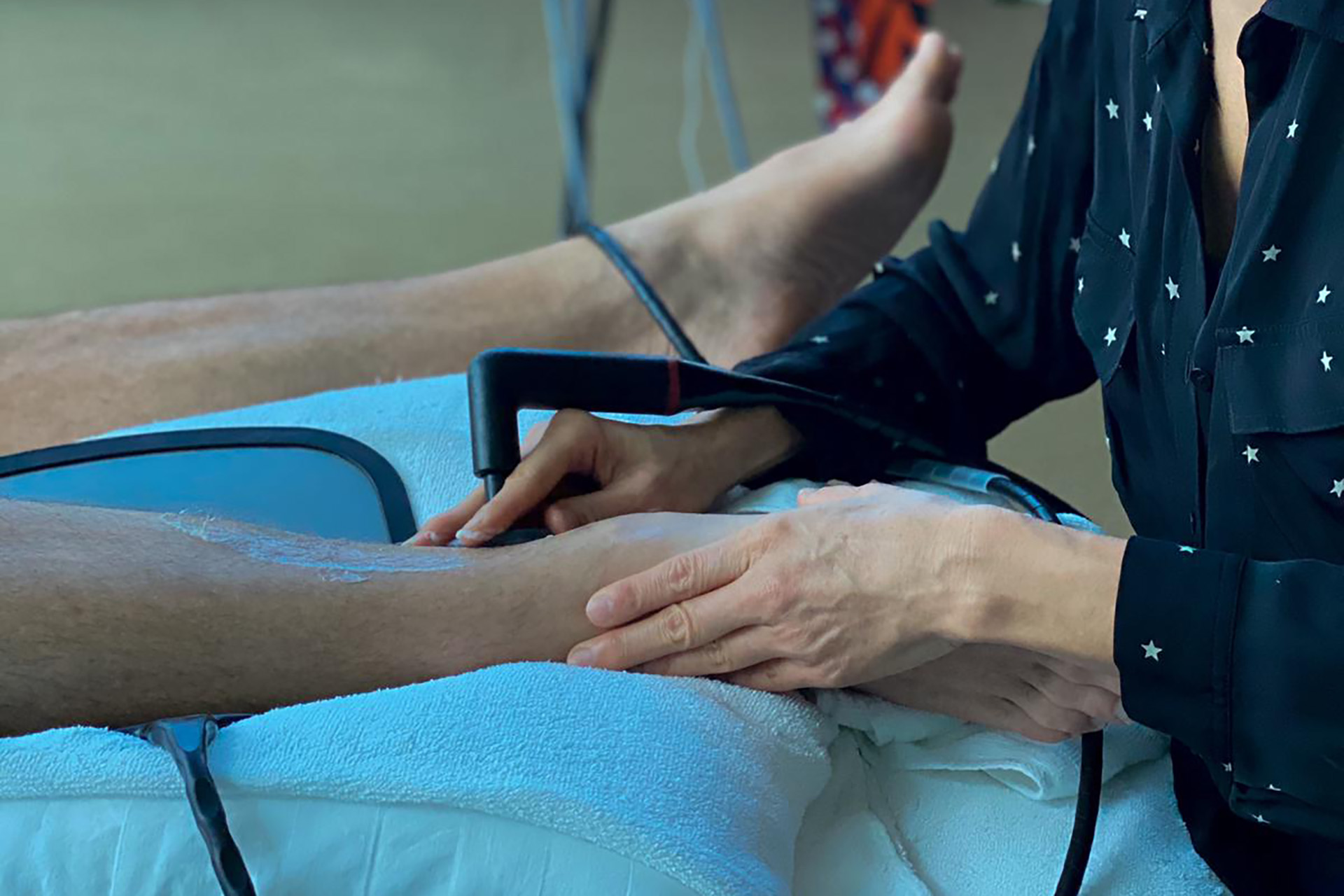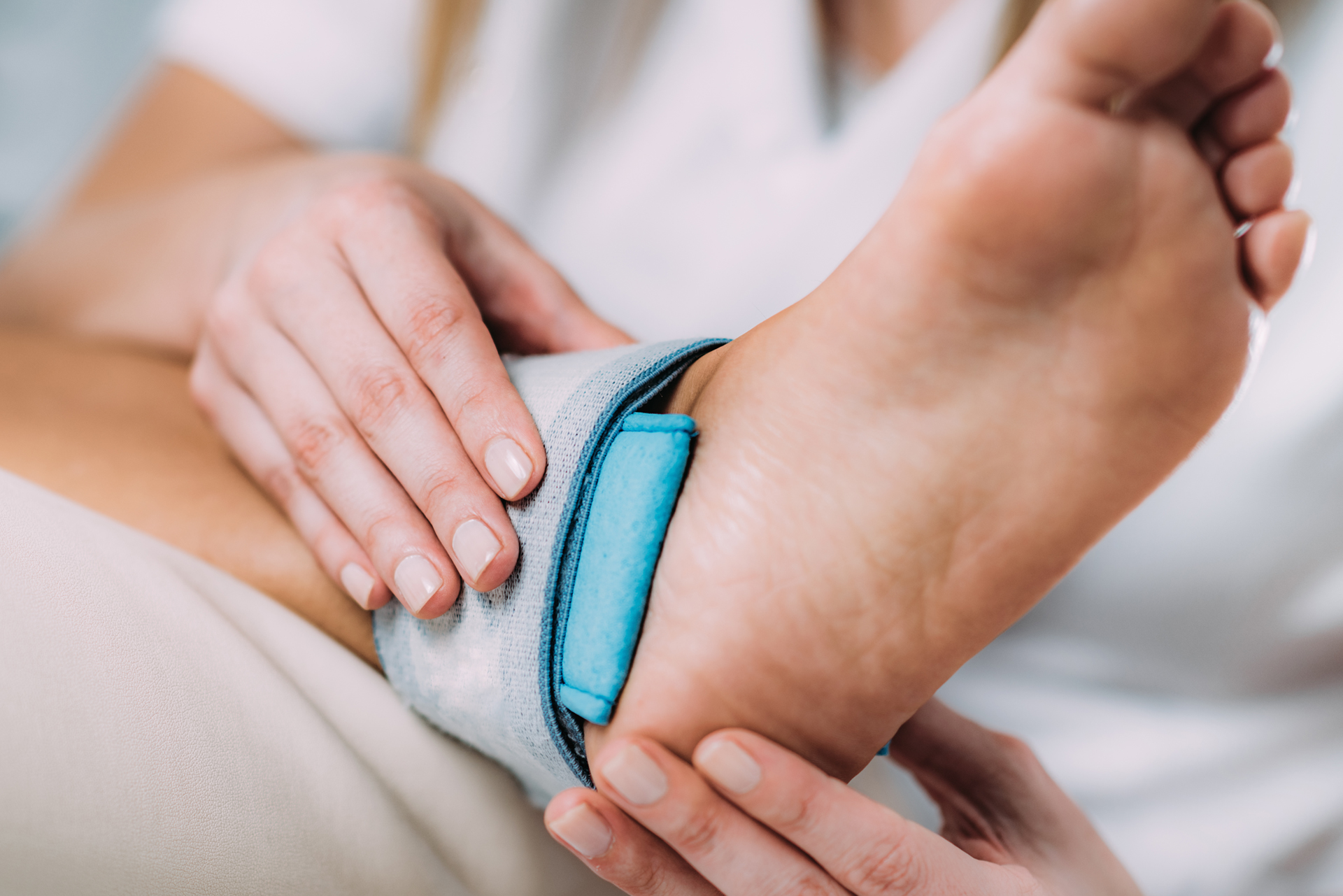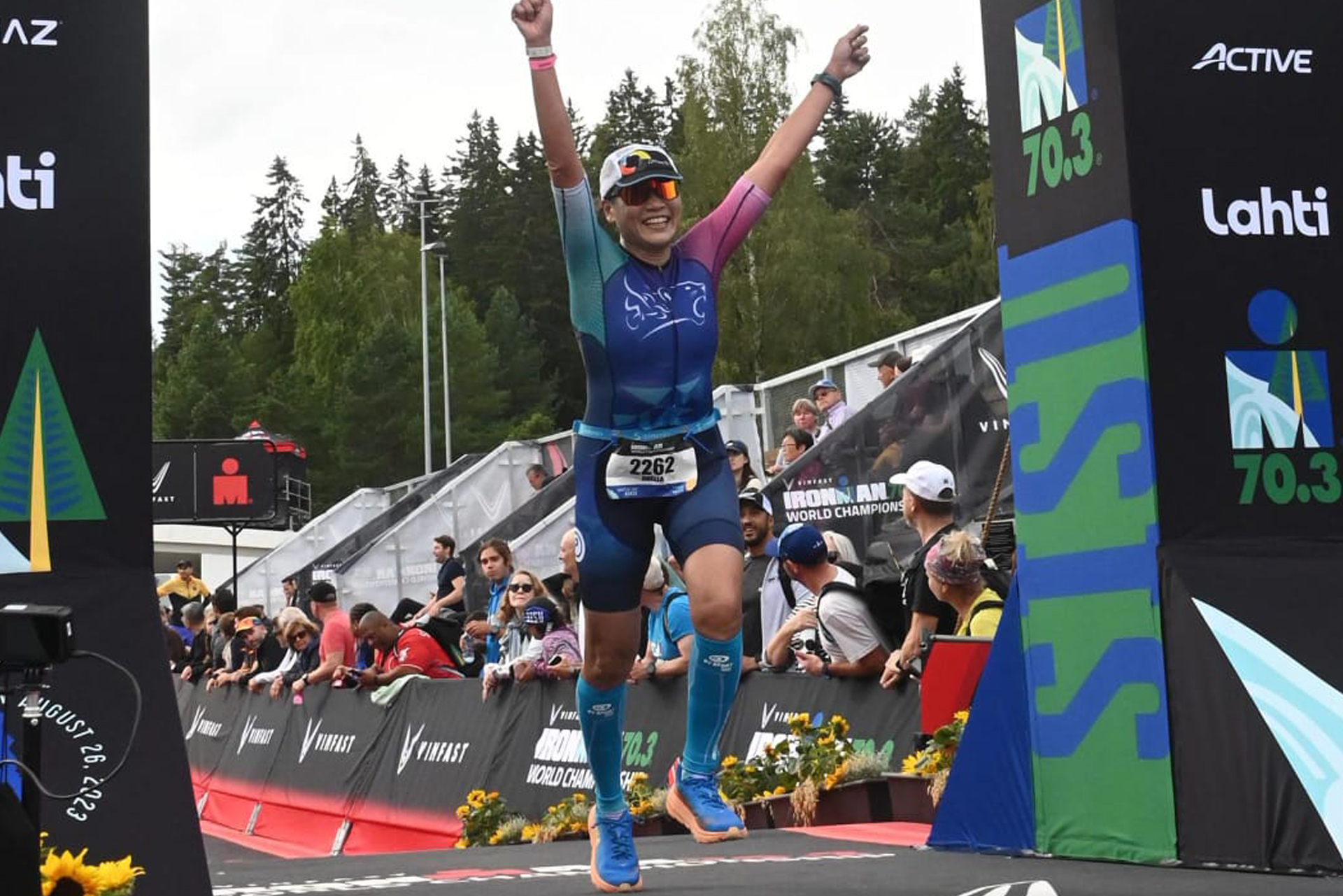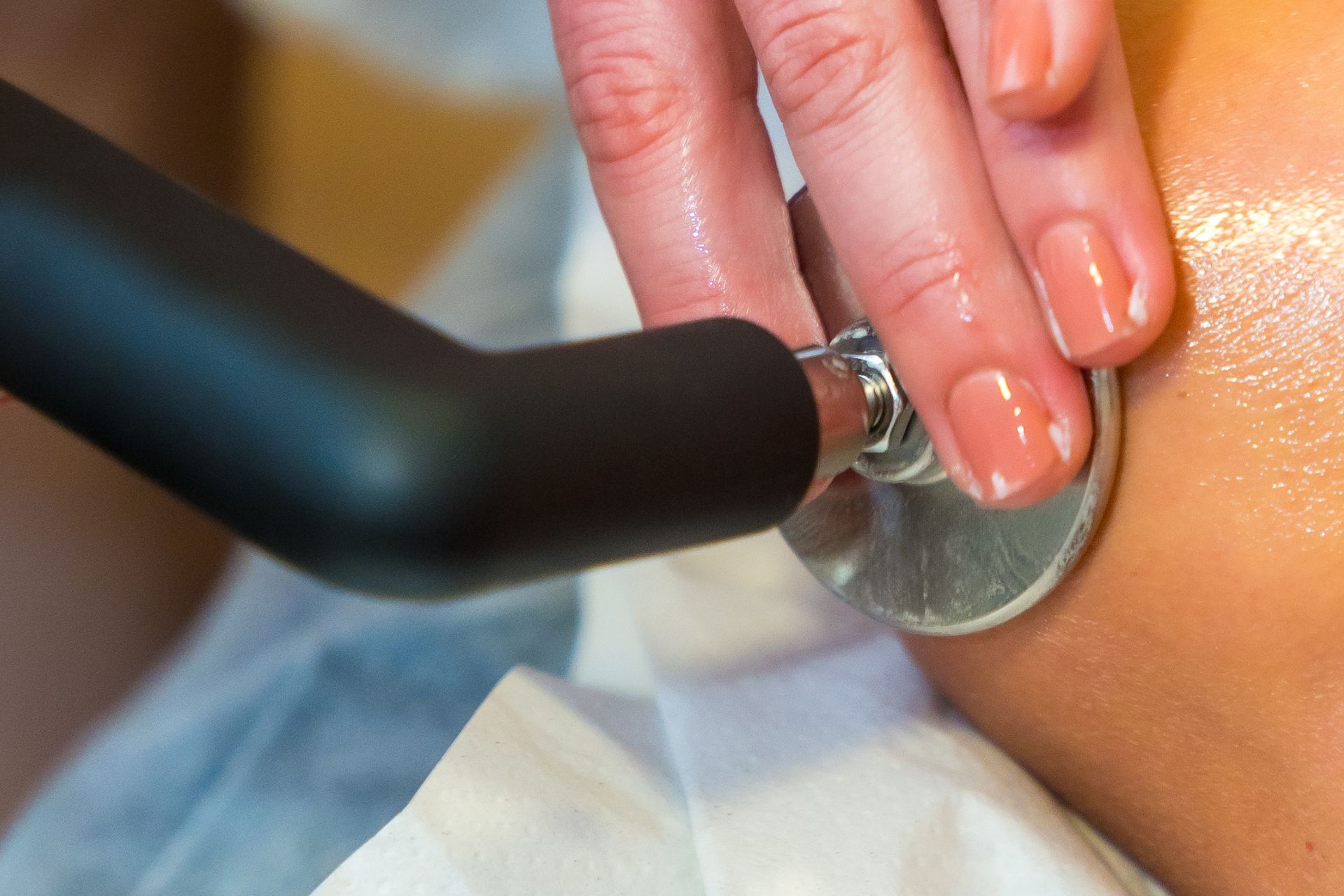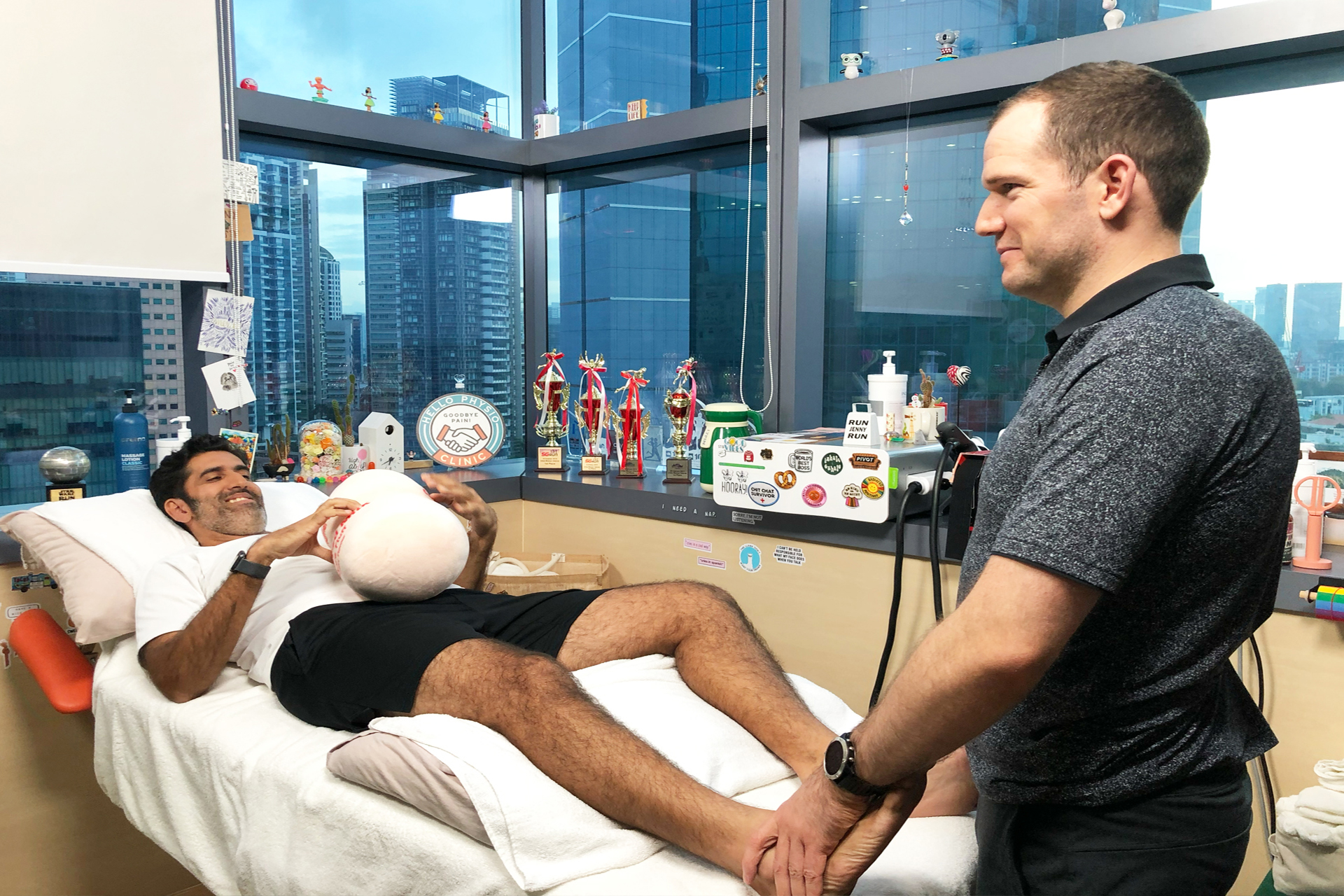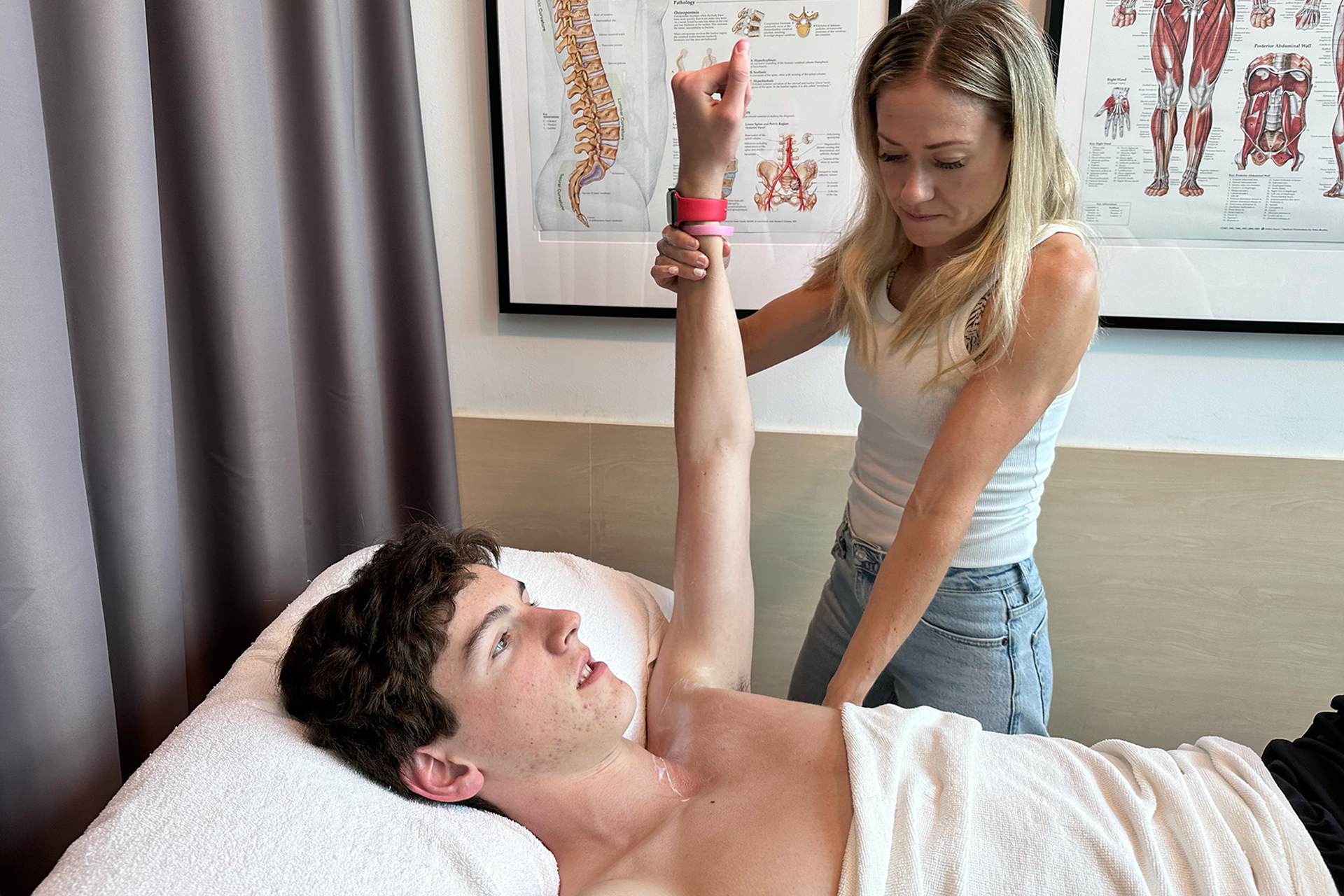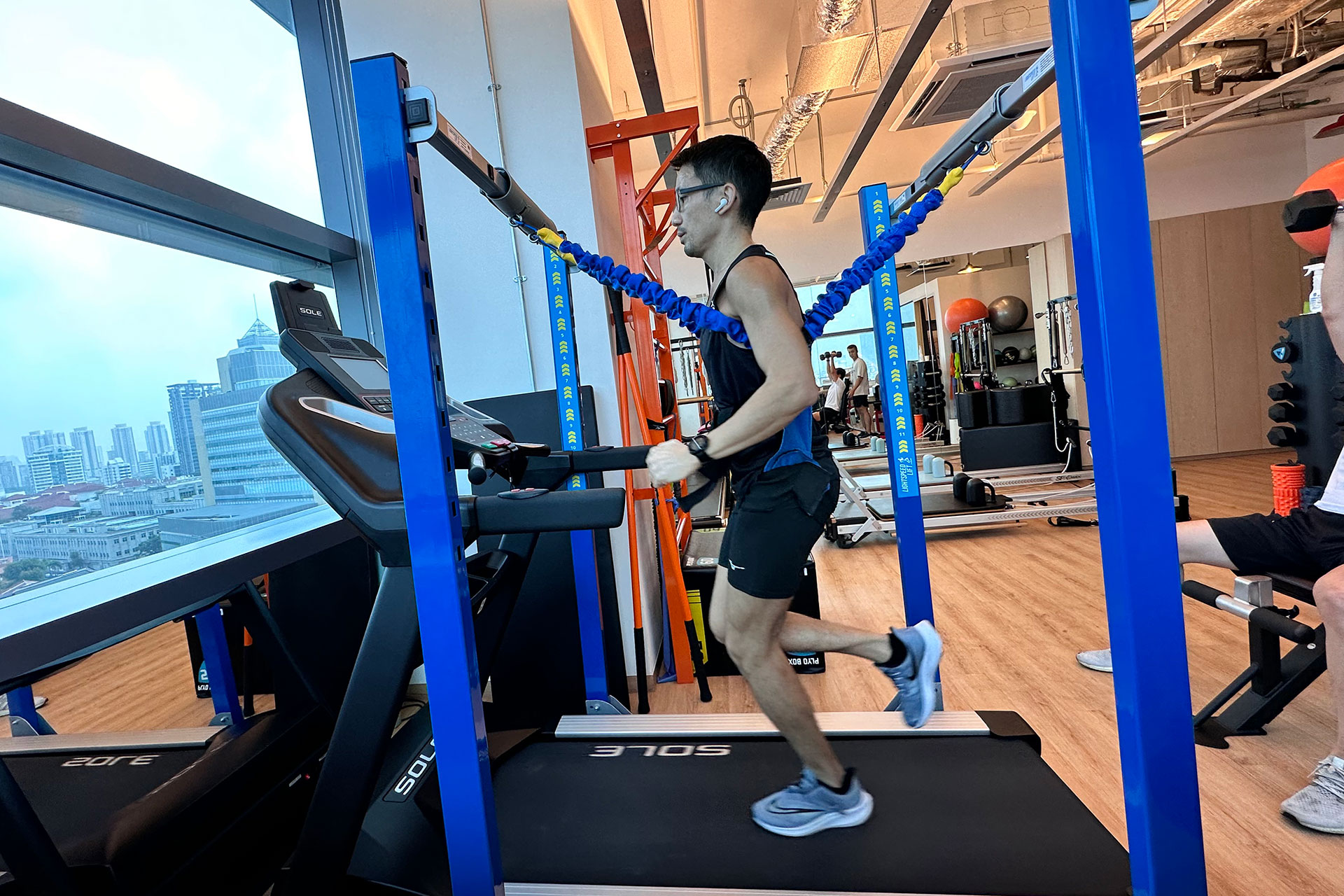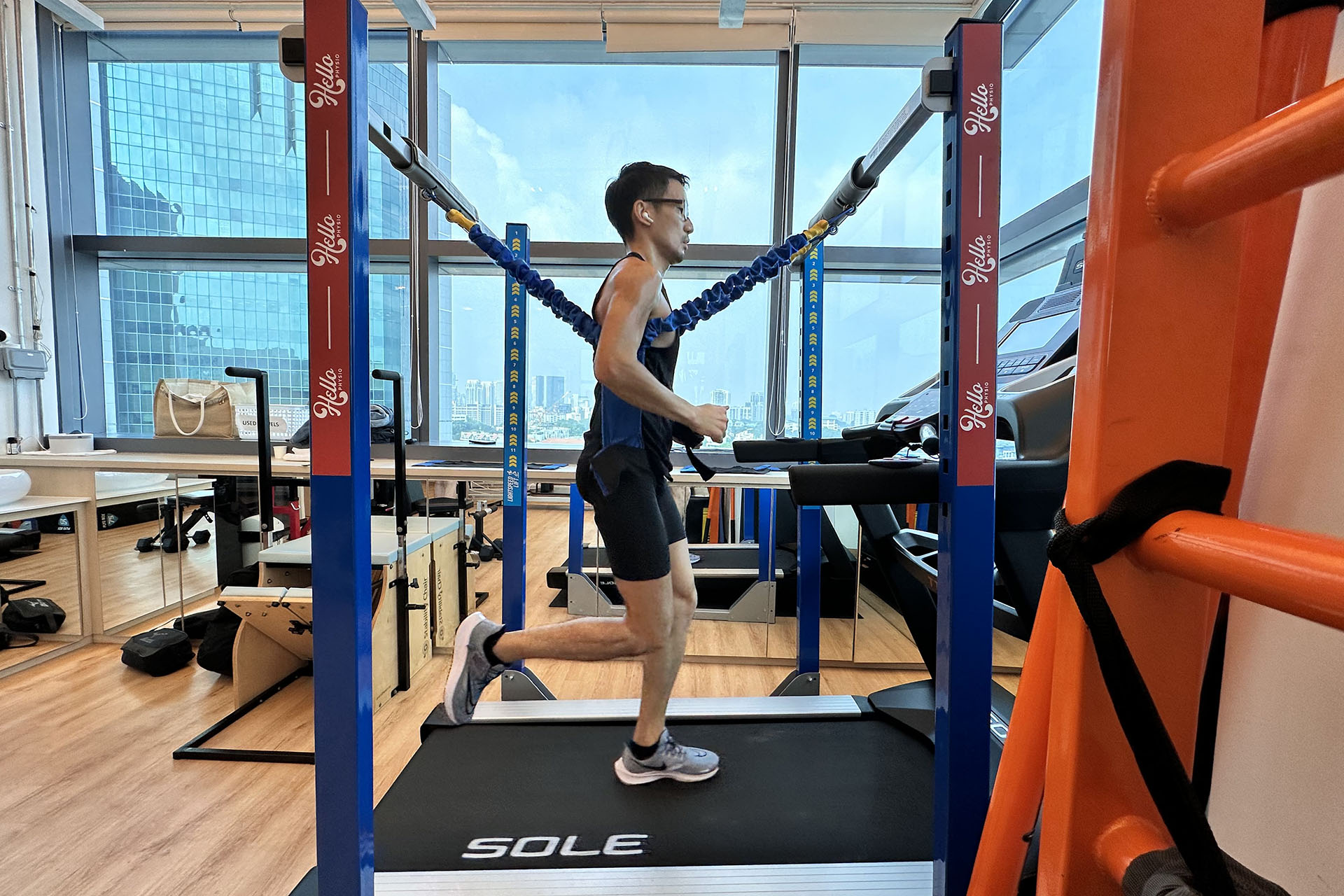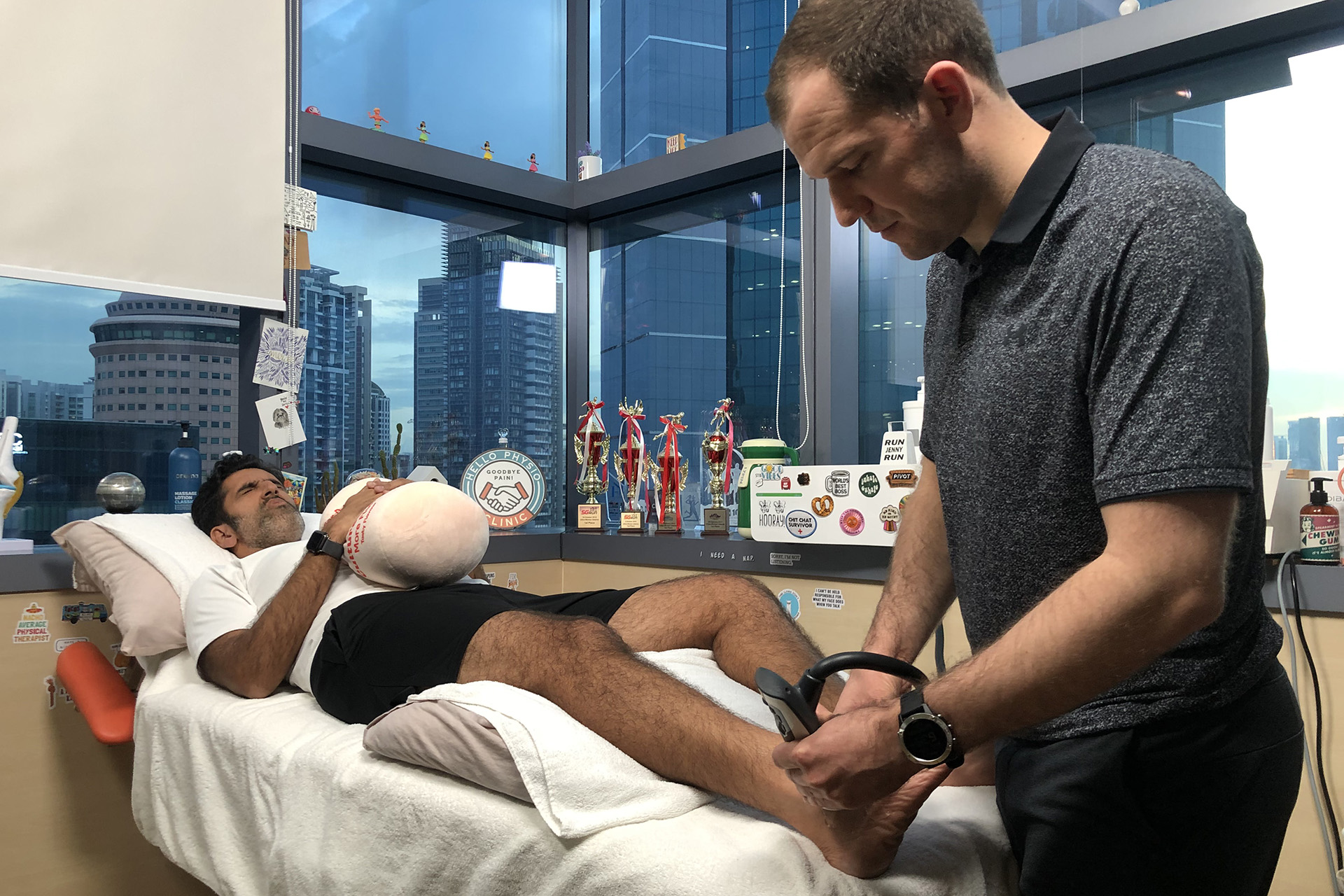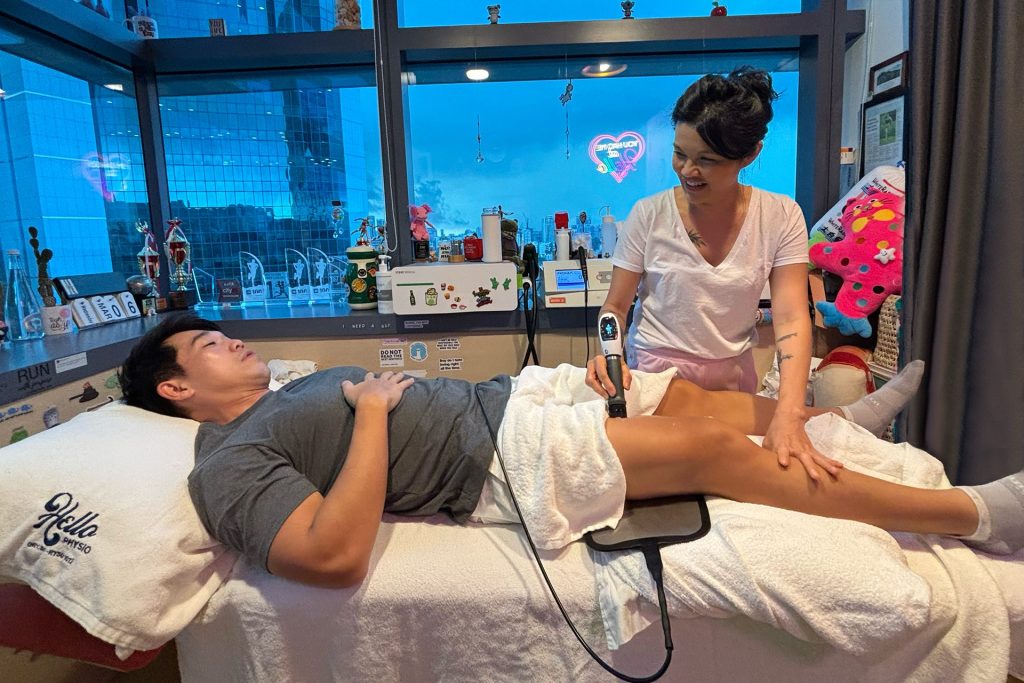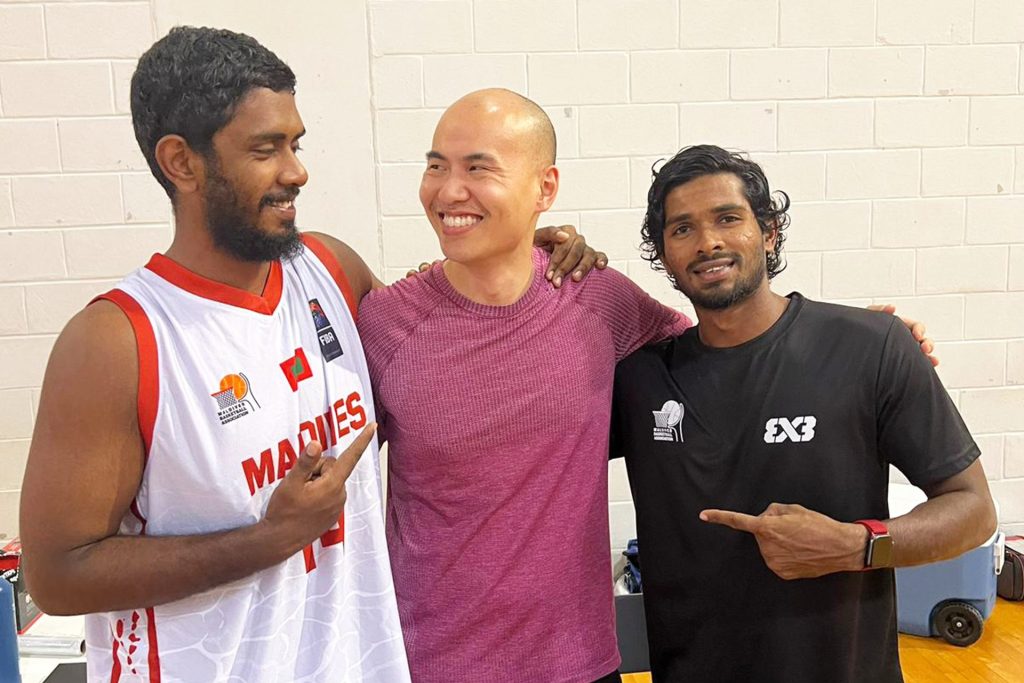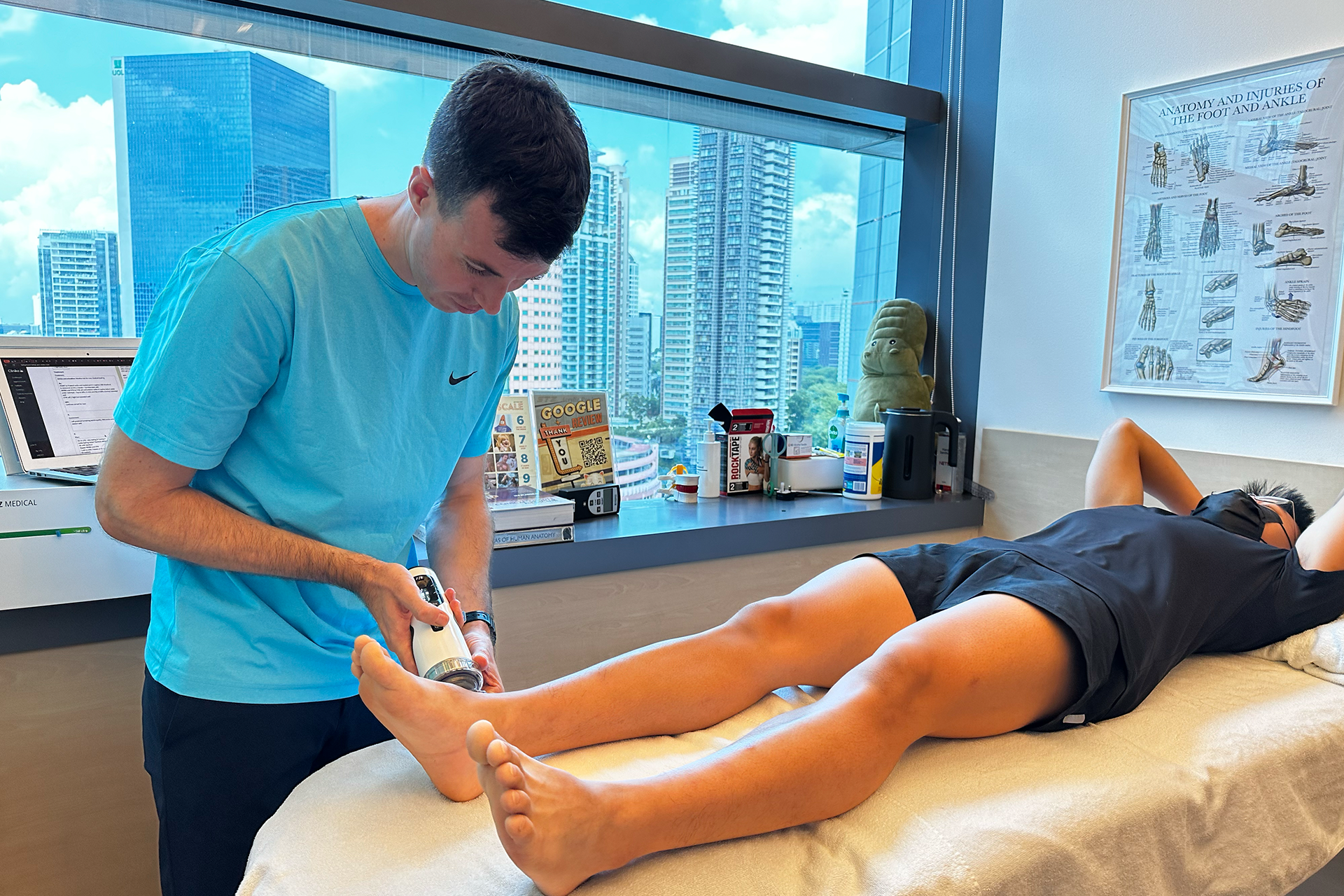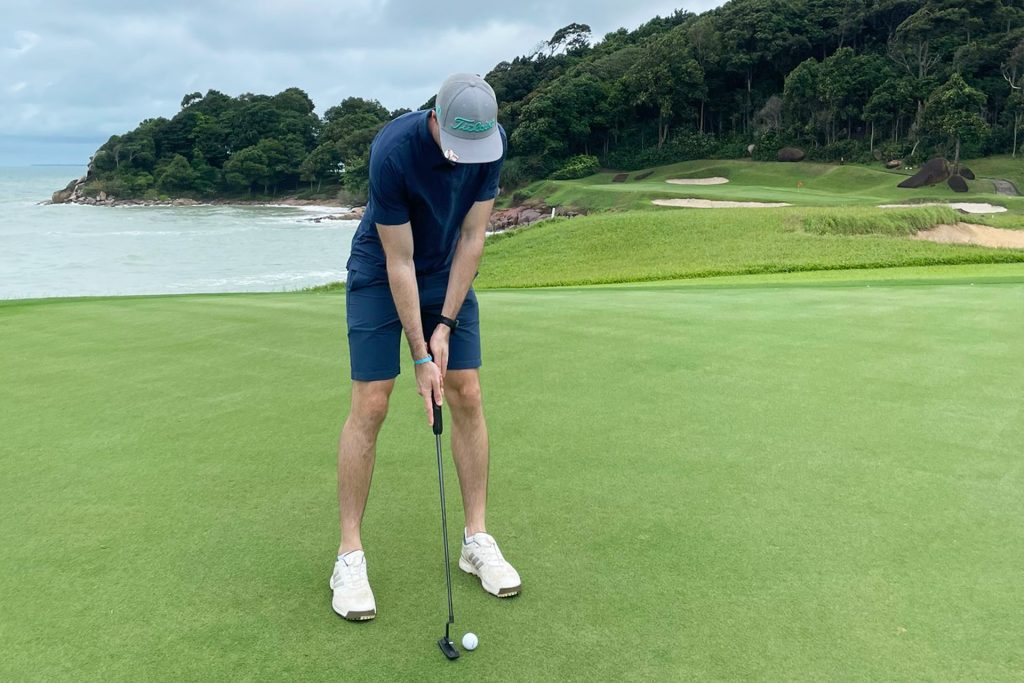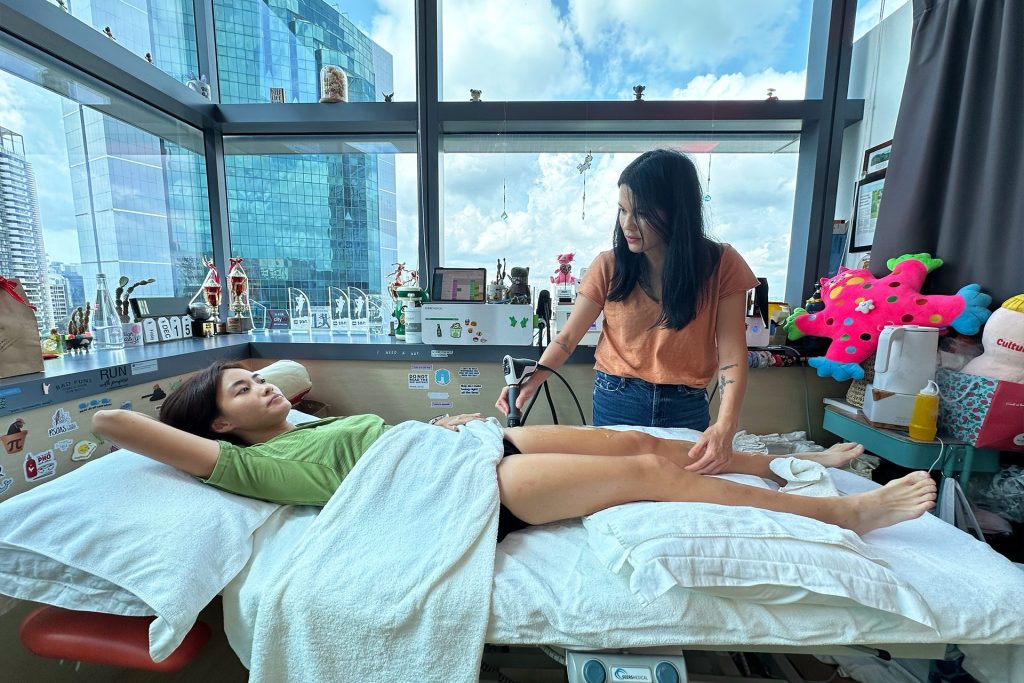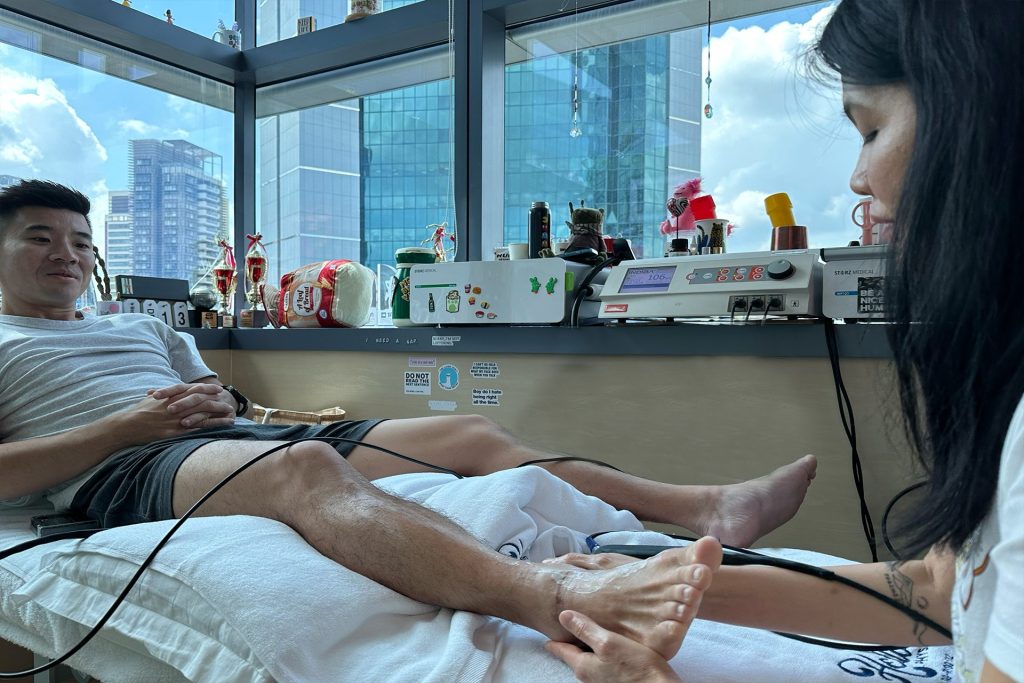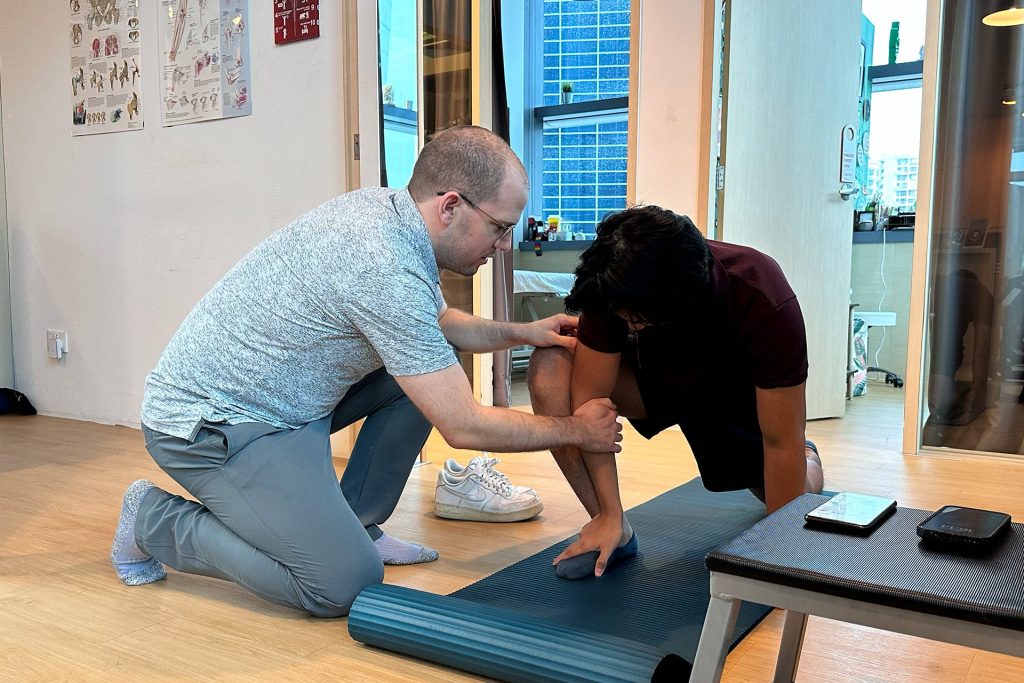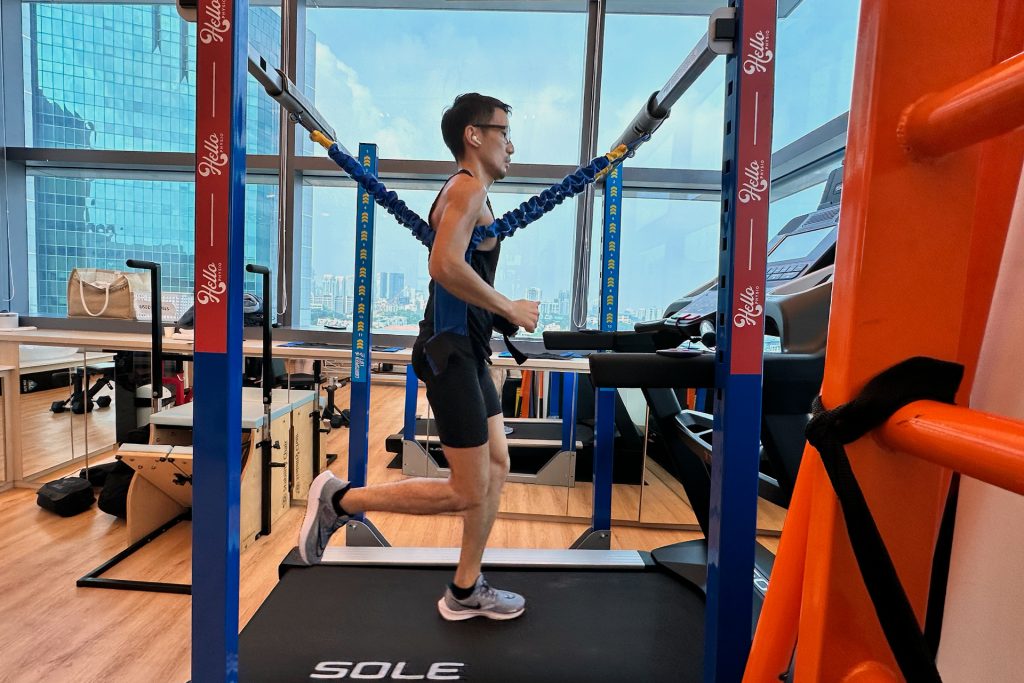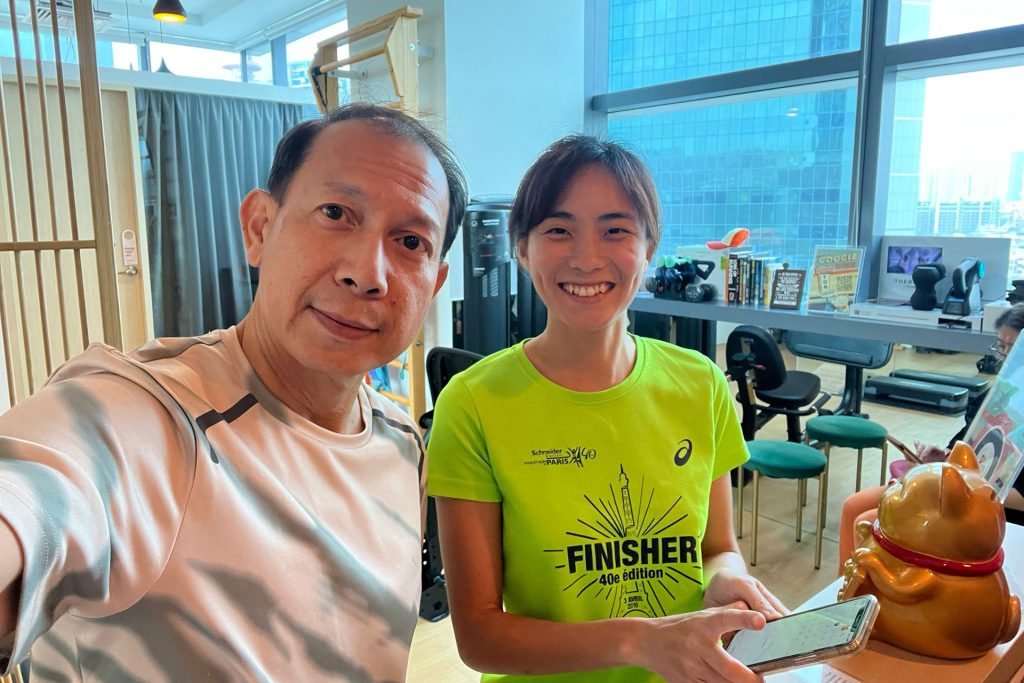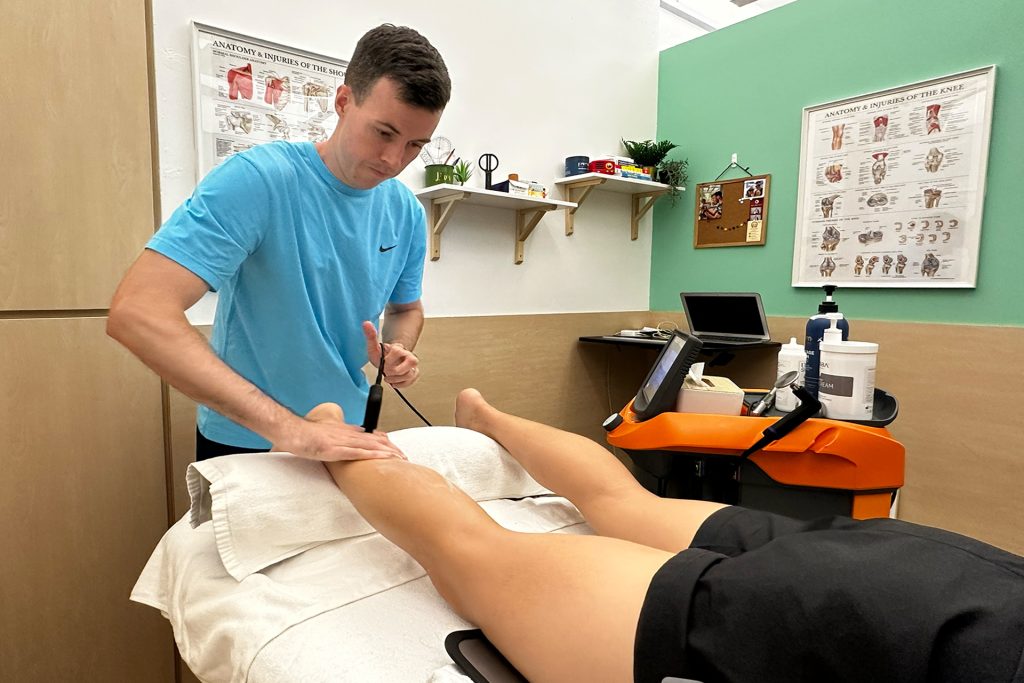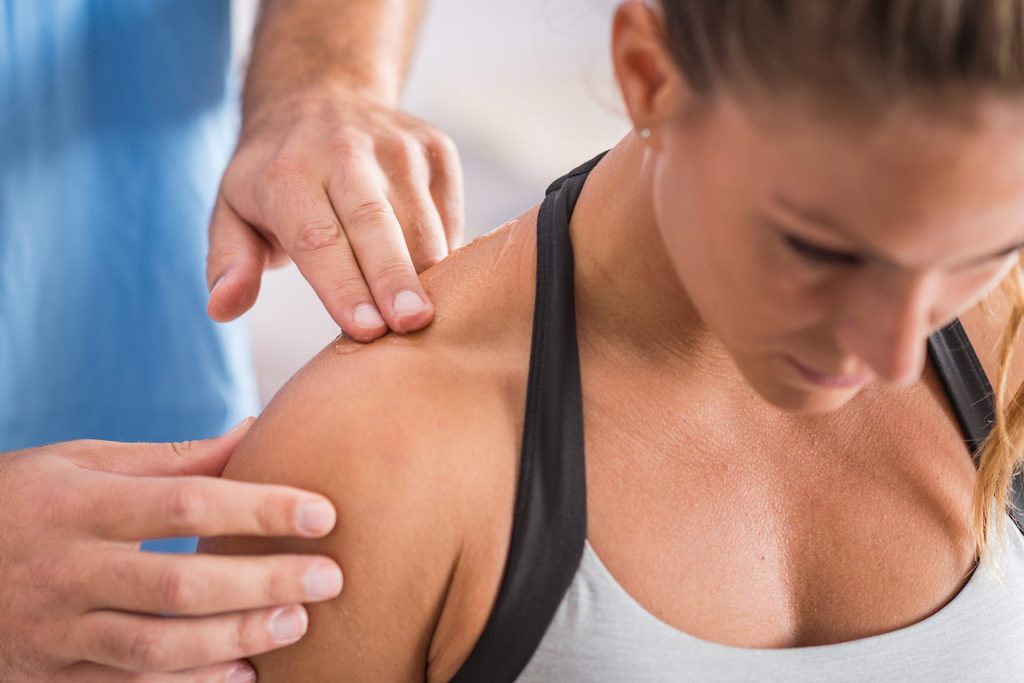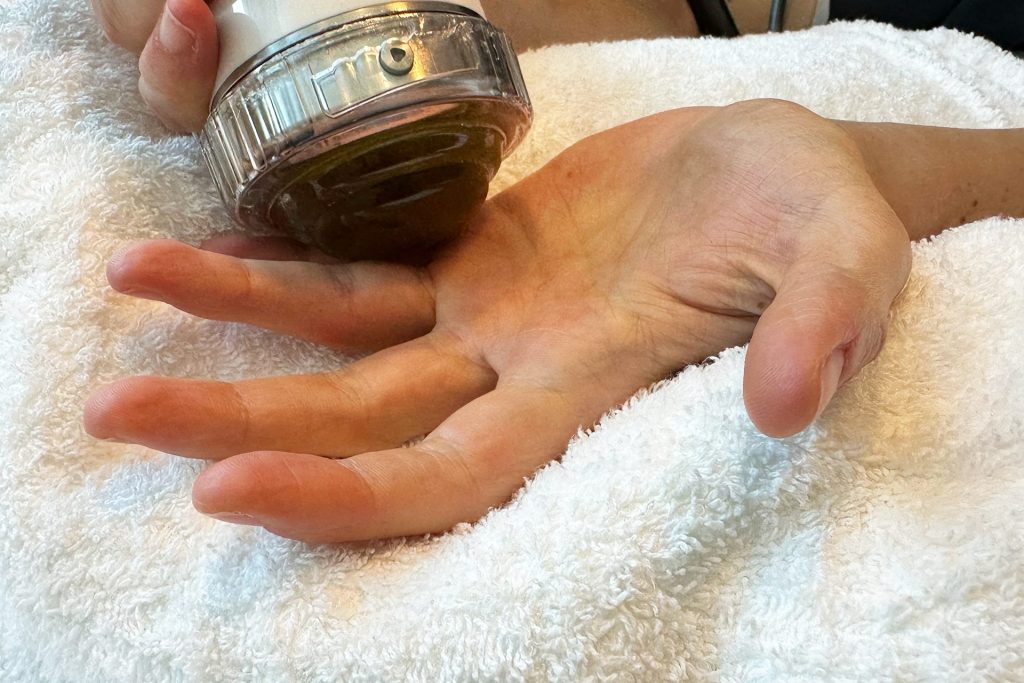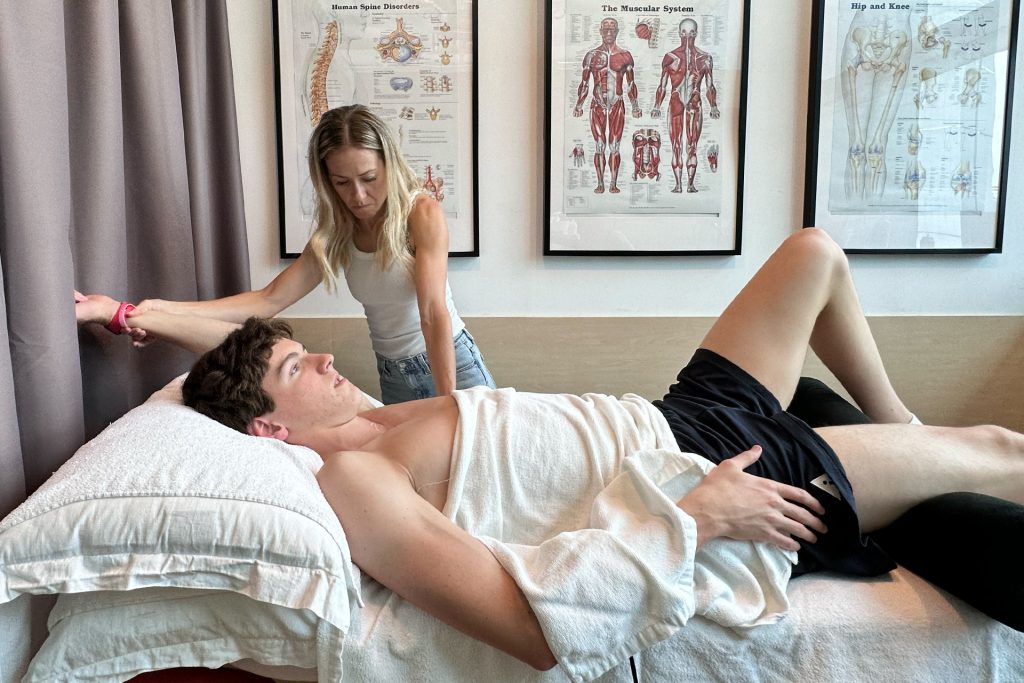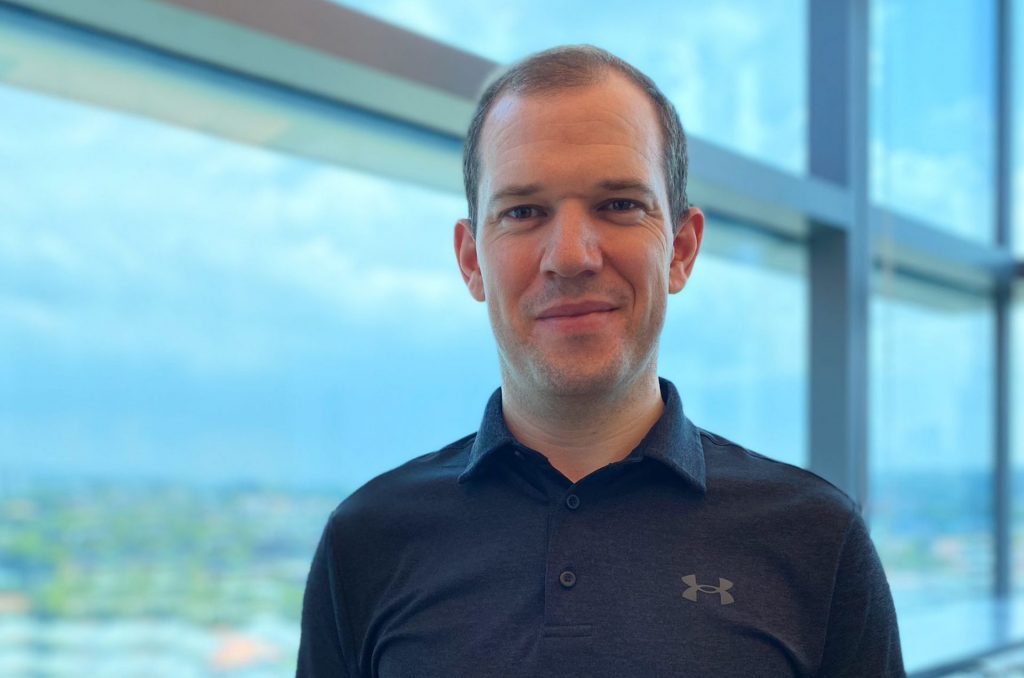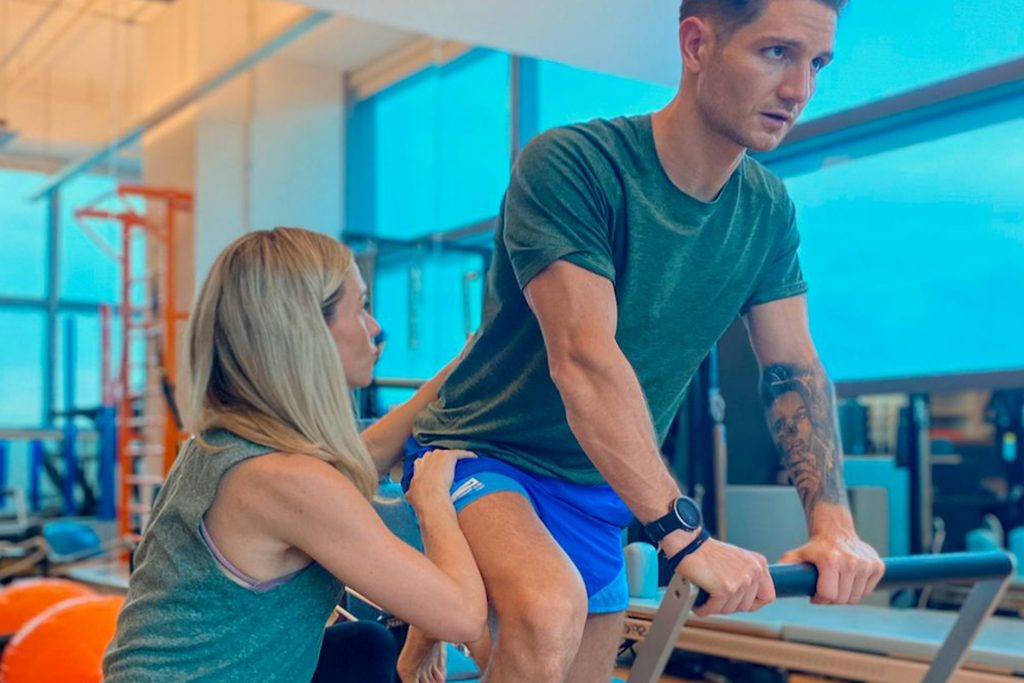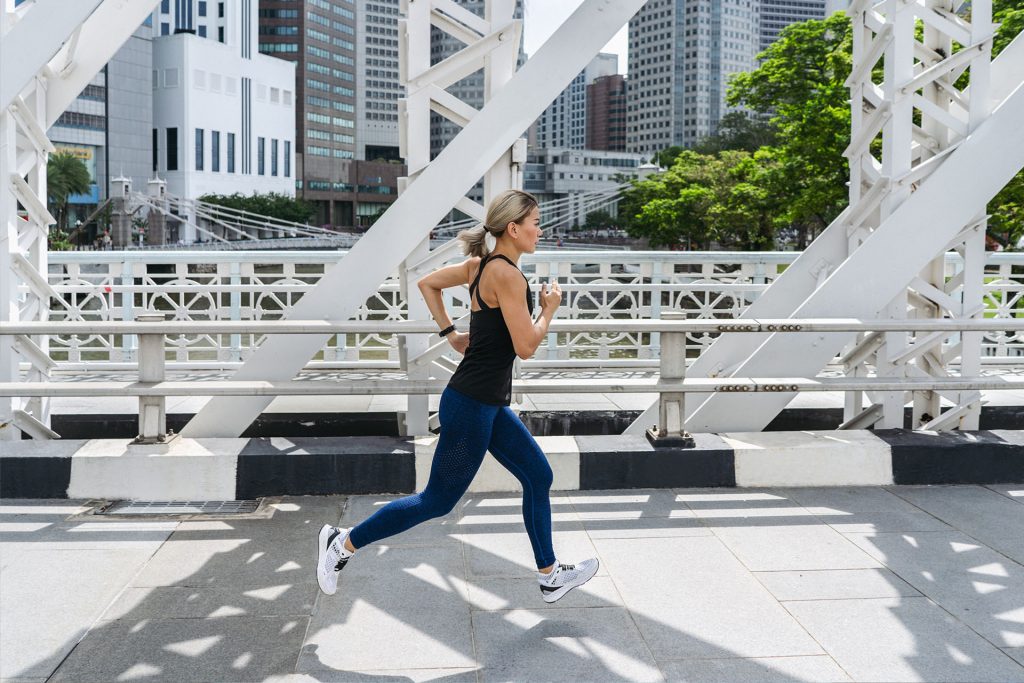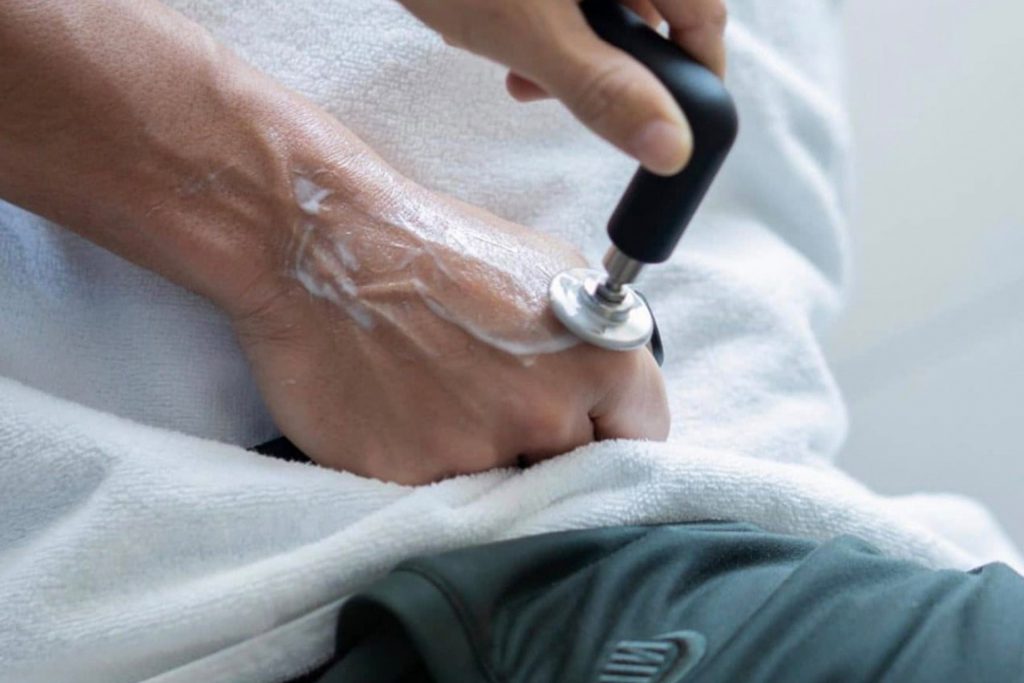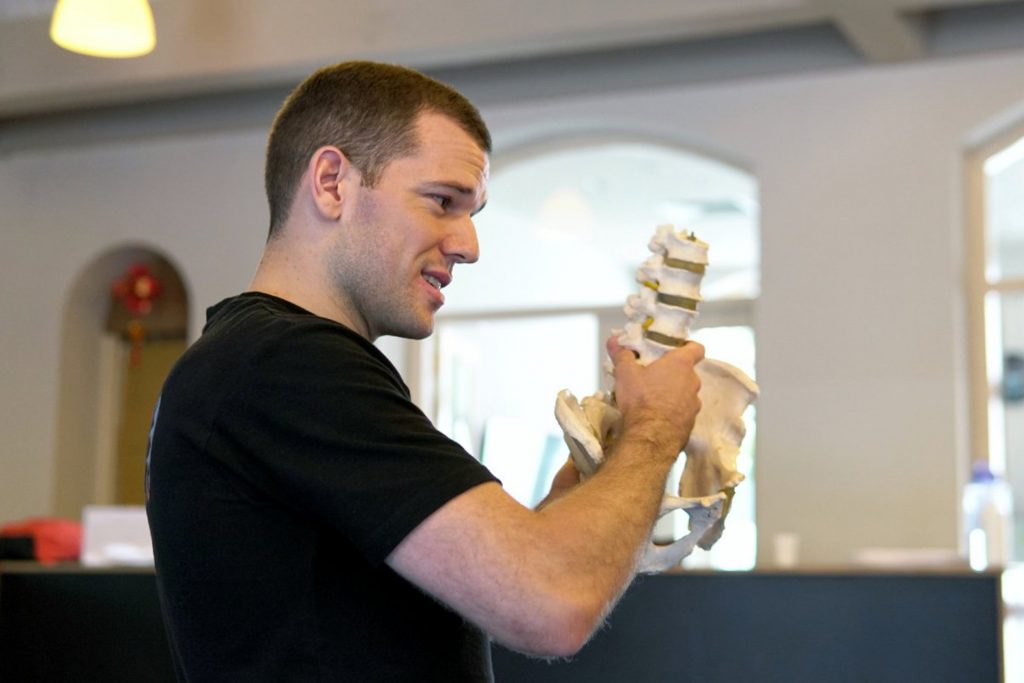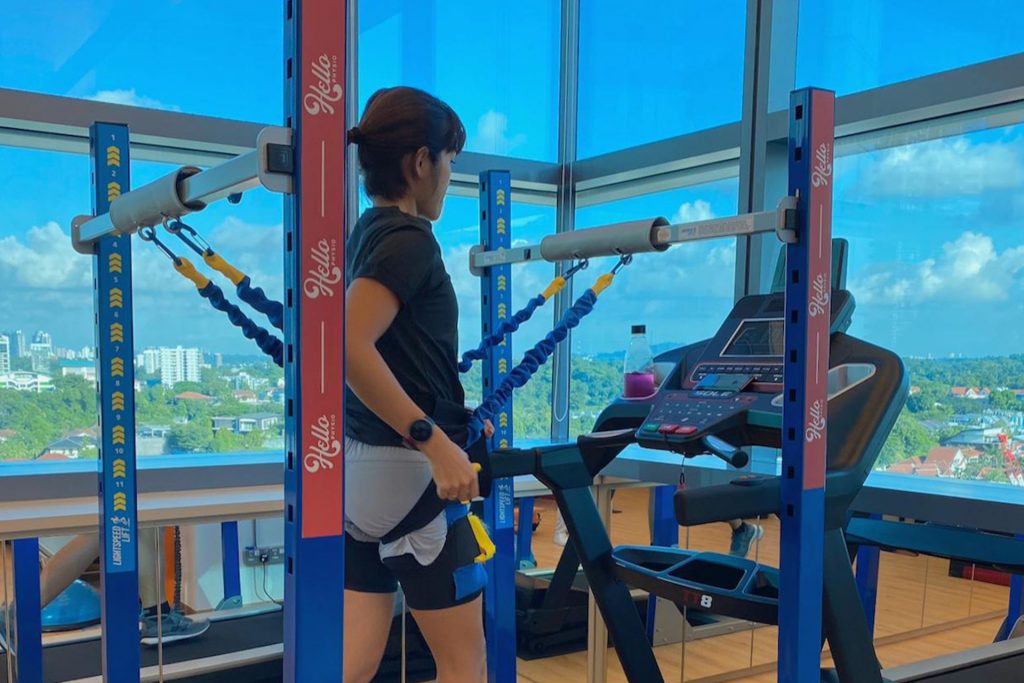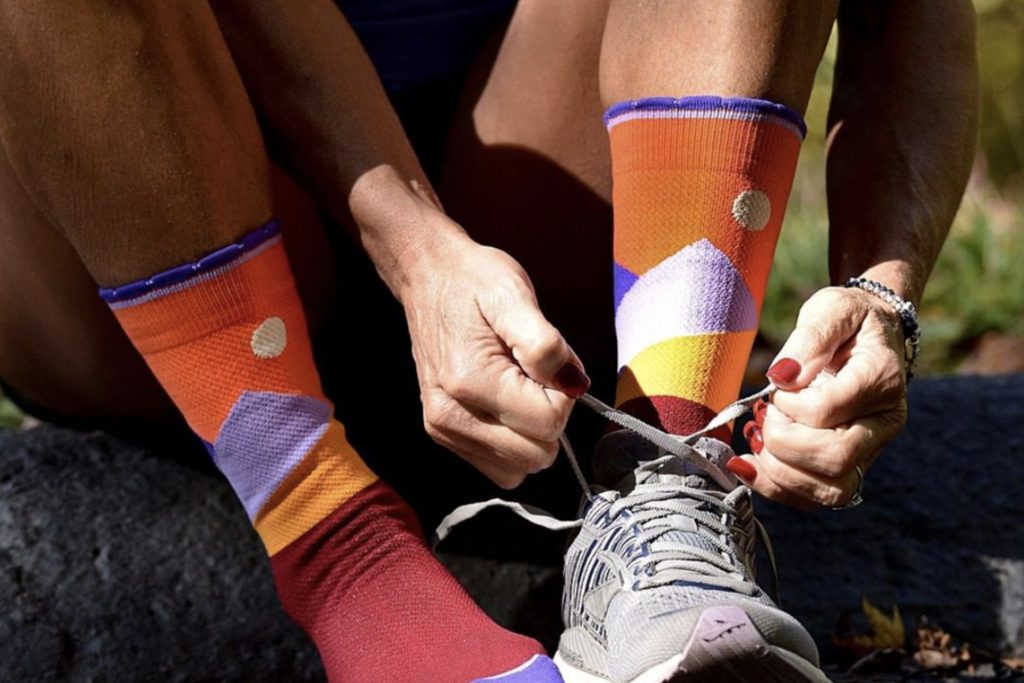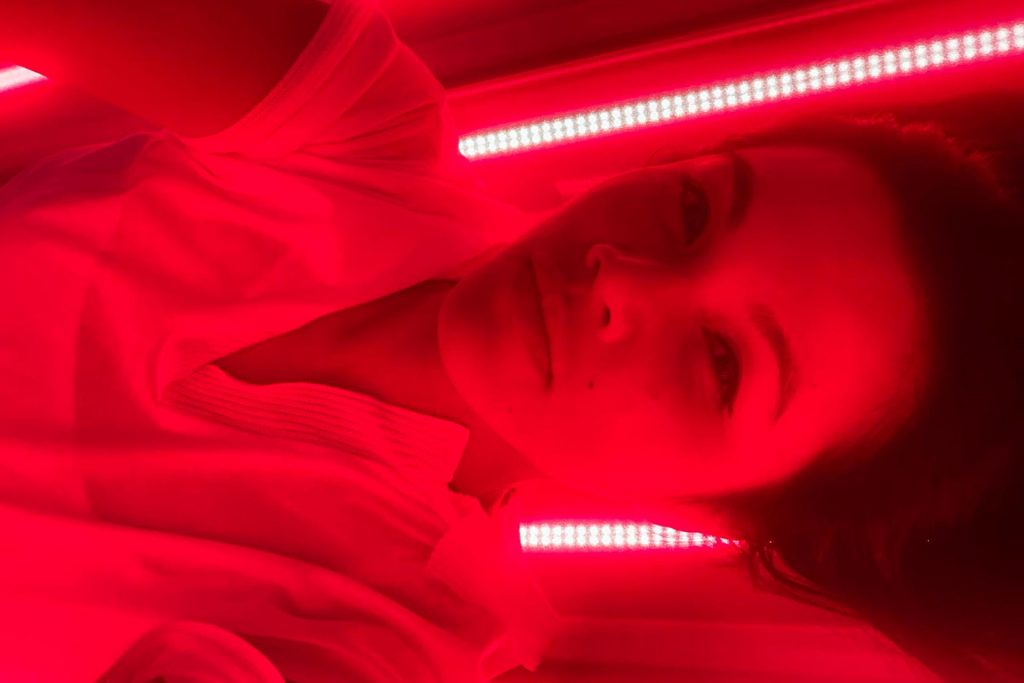Recently, we’ve been seeing more patients with knee joint pain, and we thought we’d shed some new light on the myth that running is harmful to the knees, highlight a few overuse injuries of the knee, and provide knee pain treatment recommendations from HelloPhysio’s knee specialists in Singapore.
We often hear in our clinic that physical activity like running is the culprit behind recurring knee pain. However, HelloPhysio’s founding physiotherapist and avid runner, Jenny Huang, has this to say:
“Several studies throughout the past few years have shown quite the opposite of what I often hear from patients that running is the cause of their knee pain. On the contrary, regular activities like running help to strengthen our joints to protect against osteoarthritic knees as we age. I hope to be able to run beyond my 60s!”
So, if running can strengthen our knees, why are they still one of the most frequently injured body parts for runners and other athletes?
Quick Look Behind the Knee Pain
Though people often experience pain in their knees, it is more likely that the source of the pain is caused by an imbalance somewhere else in the body. Most knee joint pain can be traced to misalignments or conditions, specifically in the lower limbs or feet, causing the knee to overcompensate or strain due to improper balance. Any of the knee’s many joints, ligaments, or muscles can be affected, resulting in knee pain.
These parts include the tibiofemoral and patellofemoral joints, fourteen ligaments, and several important muscle groups bolstered with cartilage, which intercepts shock and provides a smooth gliding surface for flexion and extension. Each of these parts of the knee’s anatomy is prone to injury if the rest of the body is not properly aligned.
Beyond ensuring the whole body functions properly, runners can prevent knee injuries by strengthening specific muscle groups and areas surrounding the knees. Strengthening muscles tied to the hips, glutes, or hamstrings through physiotherapy for knee pain has proven to prevent injuries or assist with recovery.
Knee Injuries from Overuse or Biomechanical Imbalances
Most knee injuries stem from an overuse involving training issues or biomechanical imbalances. The latter causes micro-trauma associated with physical activity, exceeding the connective tissue threshold.
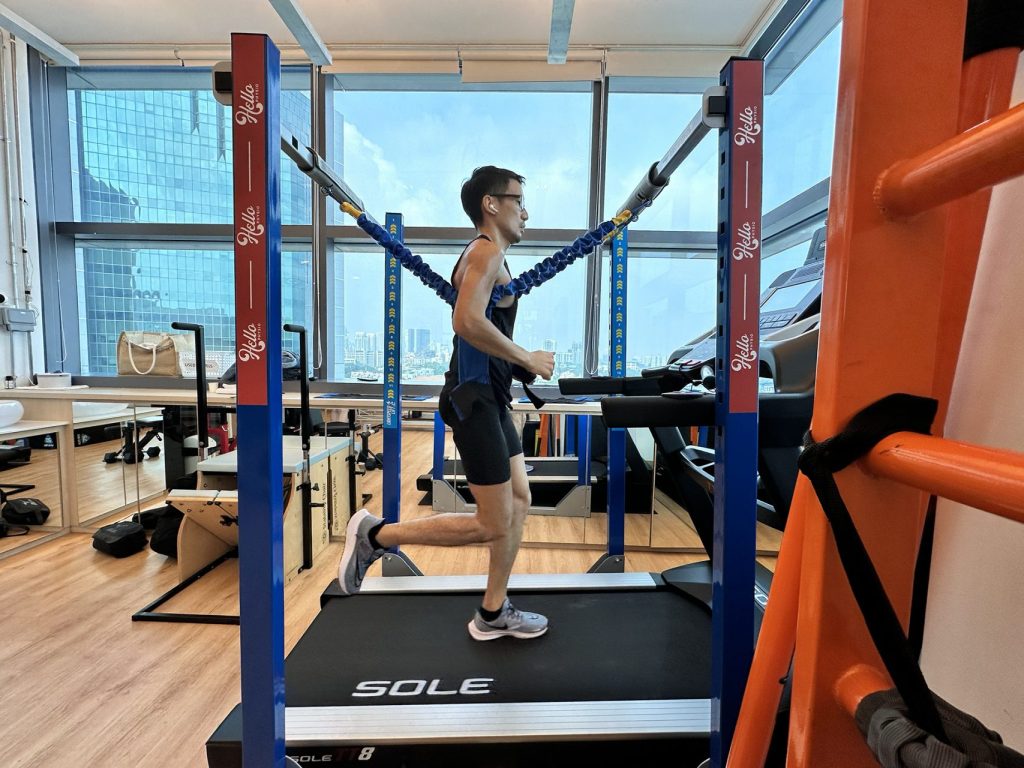
The development of chronic pain, impairment in sports performance or daily activities, or degenerative changes of the knee joint can occur because of any of the following conditions:
- Anterior cruciate ligament (ACL) sprain or tear is one of the most common knee injuries where you might hear a “popping” sound and feel your knees give out. Symptoms include pain, swelling, instability and loss of range of motion to the meniscus that cushions your knee.
- Iliotibial Band Syndrome is caused by repetitive motion that causes pain outside the knee. The inflammation of the fascia, a web of tissue that runs down the outside of the thigh, presents as lateral knee pain.
- Medial collateral ligament (MCL) provides strength and stability to your knee joint. When the force of stress exceeds the MCL’s resistive capacity, typically from an excessive twisting or weight-bearing acute incident, the fibres in the ligaments tear. A snapping sound, acute knee pain, inflammation, reduced movement and range, and the sensation of the knee popping in and out are all signs of an MCL tear. MCL injuries are frequently associated with a debilitating ACL rupture.
- Patellofemoral pain syndrome is often referred to as “runner’s knee” and occurs when the nerves sense pain, typically felt in the front of the knee around the kneecap (patella). As a result of cartilage degeneration underneath the kneecap, the damage leads to inflammation and pain in the underlying bone.
A weakened knee, a sudden injury, or an underlying condition like arthritis can all cause these injuries. The injury and, as a result, the treatment will differ depending on the cause. Understanding the long-term prognosis for knee overuse injuries is essential for pain management.
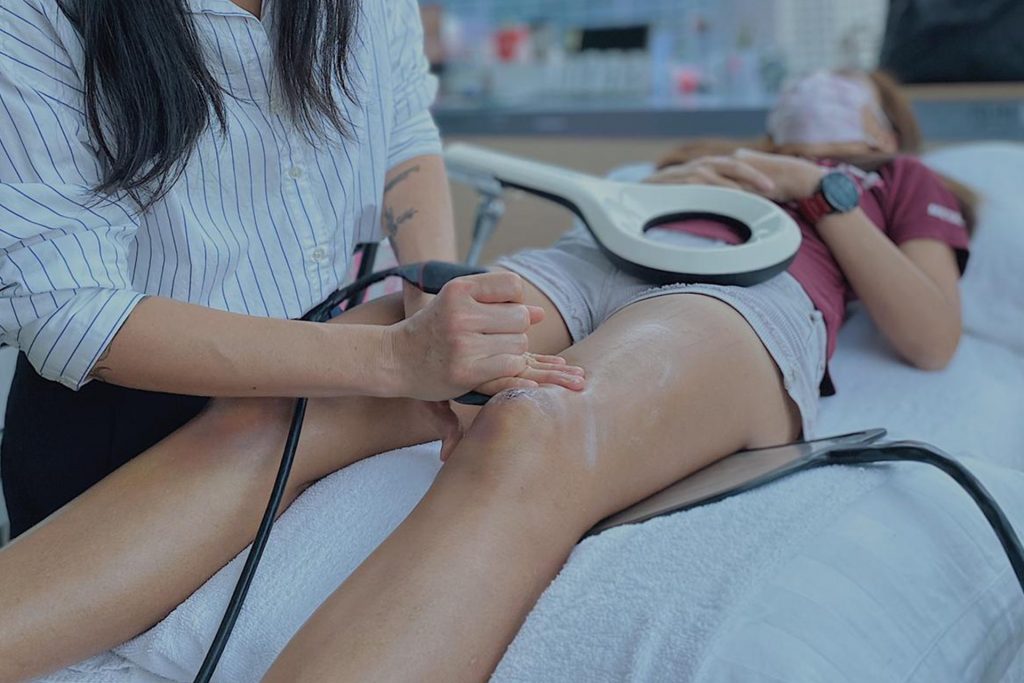
Physiotherapy Knee Treatments for Pain Relief
Physiotherapy can help with pain relief considerably, whether through traditional manual therapy or other noninvasive treatment protocols.
One traditional manual therapy technique often used for knee pain is Clinical Pilates. The physiotherapist or instructor leads the patient through exercises designed to address muscle activation, motor planning and muscular imbalances. It can both help to increase muscle strength and enhance recovery outcomes. Manual therapy fulfils a similar function, with targeted therapy designed to restore mobility and reduce pain in the knee.
Traditional knee pain physio can be used with advanced physiotherapy treatments, such as INDIBA® Activ. Often, knee pain is caused by damage to the cartilage, creating friction when the knee moves. INDIBA radiofrequency treatment generates low-level electromagnetic waves, accelerating the body’s natural recovery. Specifically, it activates a cellular response, increasing collagen and elastin synthesis, the building blocks of connective tissues.
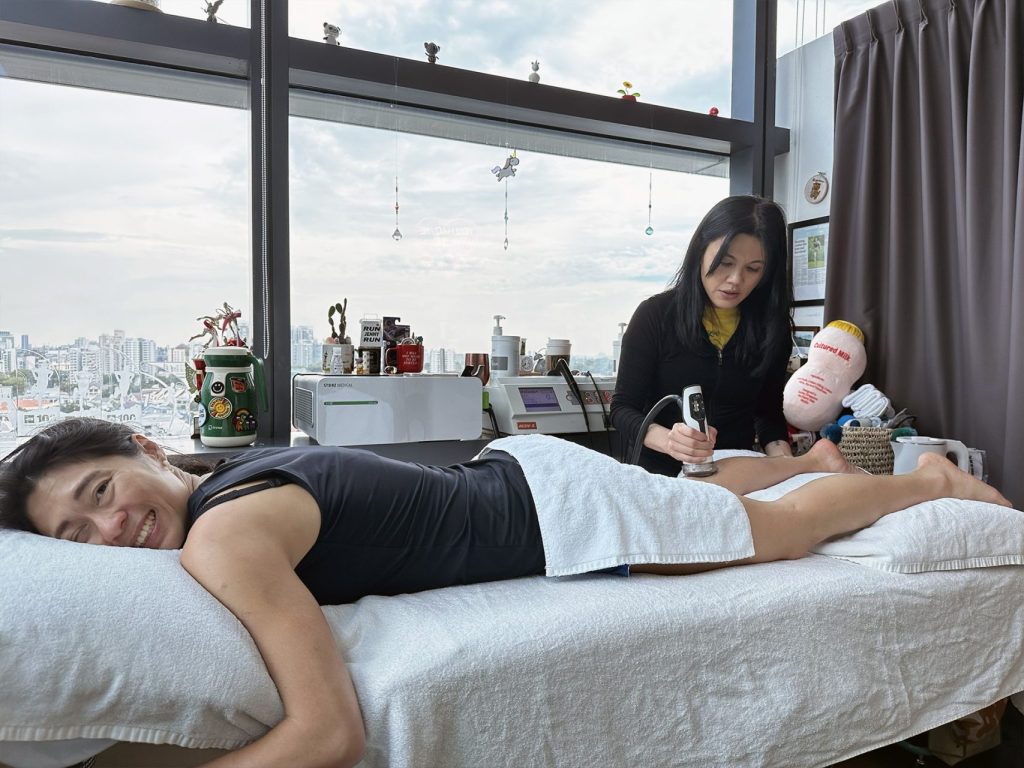
Explore Services & Treatments
Physiotherapy Knee Pain Treatment for Musculoskeletal Dysfunctions and Injuries
Another advanced technology available is Shockwave Therapy, an extracorporeal pulse activation technology. In this method, shockwaves are sent into the afflicted area, breaking up scar tissue and stimulating blood flow, leading to accelerated healing.
These are only some of the physiotherapy techniques available to patients, all well-suited to treat your specific injury. At HelloPhysio, we combine traditional manual therapy and modern physiotherapy techniques to help patients break the pain cycle and restore their knees to optimal health.
Are You Experiencing Knee Pain after Physiotherapy?
It’s normal for some soreness or discomfort after physiotherapy, as that’s a sign your muscles are being trained. Physiotherapy is designed to help the body recover, and sometimes, that entails stressing the muscles and may cause some resultant discomfort as the body adjusts.
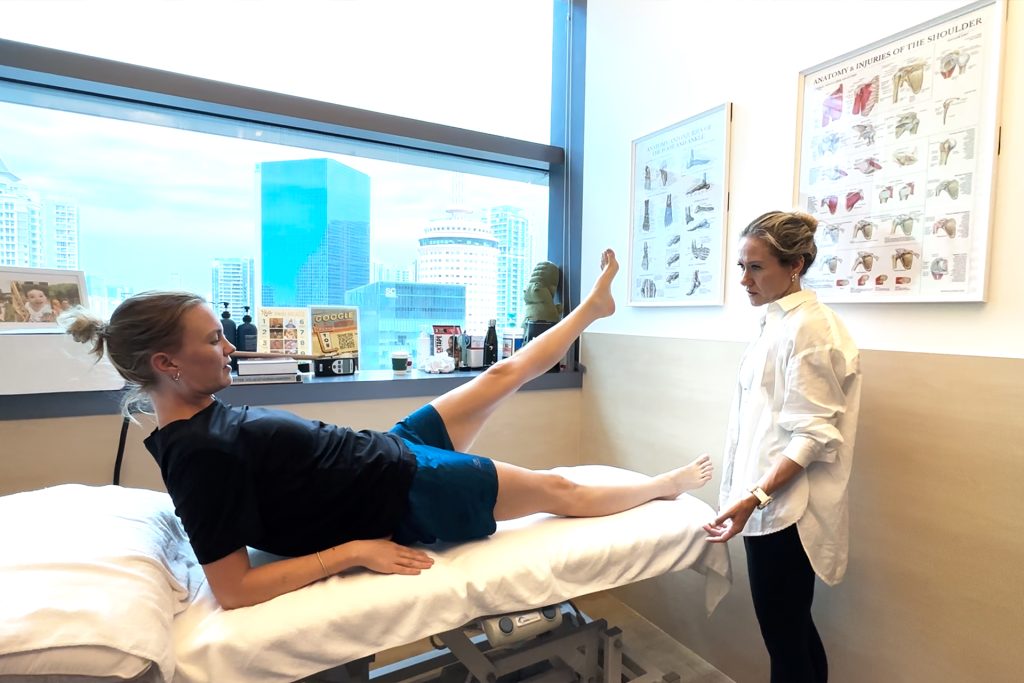
For people doing rehabilitation exercises at home, the knee pain following physiotherapy can stem from overexertion. It’s important to talk with your physiotherapist to make sure your recovery plan is progressive and gives your body time to acclimate. The only person who can feel your pain is you, so you should listen to your body. If your knee is in intense pain after physiotherapy, speak with your physiotherapist. They will know how best to adjust your plan and ensure your sustainable recovery.
At HelloPhysio, patient education is our utmost concern. Our experienced sports physiotherapists will conduct a thorough assessment to determine the source of your knee pain. This is the first step to developing a successful treatment plan that may include Clinical Pilates, manual therapy, Shockwave Therapy, or INDIBA radiofrequency treatment, among many other options.
If you have recurring muscle or knee joint pain or need help rehabilitating from an injury, make an appointment for an initial consultation at our Singapore knee pain clinic.

